The United Nations 68 years on
https://youtu.be/_fE7VtbWsbA Toward a Unity of Nations and a Unity of People
Read complete text of Chiara Lubich‘s address
https://youtu.be/_fE7VtbWsbA Toward a Unity of Nations and a Unity of People
Read complete text of Chiara Lubich‘s address
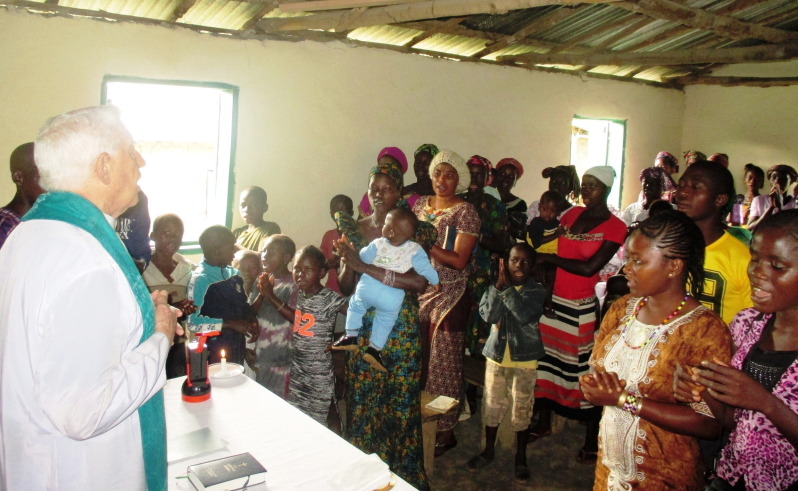
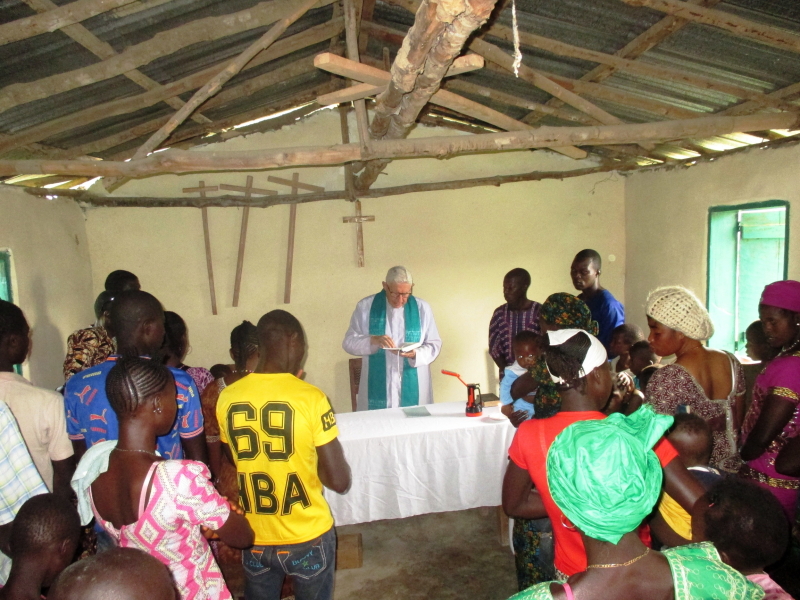 The first initiative of the Evangelii Gaudium Centre, created in Loppiano (Florence) to become the “Church that goes out,” is a qualification course in collaboration with the Sophia University Institute entitled, “Wake up the world.” This compelling slogan describes precisely Consecrated Life that will “Wake up the world,” in which consecrated persons with their radical choice of life, concur to restore true fraternity and communion in the world. It is the story of Fr. Antonio Guiotto in Sierra Leone: a Xaverian missionary. He had adhered to the spirituality of the Focolare ever since he was a student, and is now celebrating his 50th anniversary of priesthood, most of which was spent in the African country, and out of which around ten years (1991 to 2001) were in the frontline of a terrible civil war which terrorized and devastated Sierra Leone. And though like other foreigners he could have returned home, Fr. Antonio decided to remain in Kabala to share with its people all the events, helping them to continue believing in God’s immense love, despite everything. Very soon, he and Fr. Carlo, a congregation brother who also lived the Focolare spirit, created a small group that tried to live the Gospel and share their life experiences: a flicker of hope that lit up amid so much hatred and violence. But also Kabala was invaded by the rebels, and so the two religious – foreigners, and easy prey to kidnappers – took refuge in the woods. Despite the dangers, his people helped them with food and water, and in turn were supported by the light and hope which the two religious instilled in all. When there was no longer any imminent danger, they opened their homes since the missionary house had been completely destroyed. The family that hosted them shared the little they had, and the two religious gave a hand in the house and with the children. After a month, the couple asked to become Christians and for the children to be baptized. In the meantime, however, the situation started to worsen again. Squads of rebels roamed all over Sierra Leone and the two Fathers had to move to Freetown. It was a forced transfer which became an occasion to sow the Gospel also in the capital.
The first initiative of the Evangelii Gaudium Centre, created in Loppiano (Florence) to become the “Church that goes out,” is a qualification course in collaboration with the Sophia University Institute entitled, “Wake up the world.” This compelling slogan describes precisely Consecrated Life that will “Wake up the world,” in which consecrated persons with their radical choice of life, concur to restore true fraternity and communion in the world. It is the story of Fr. Antonio Guiotto in Sierra Leone: a Xaverian missionary. He had adhered to the spirituality of the Focolare ever since he was a student, and is now celebrating his 50th anniversary of priesthood, most of which was spent in the African country, and out of which around ten years (1991 to 2001) were in the frontline of a terrible civil war which terrorized and devastated Sierra Leone. And though like other foreigners he could have returned home, Fr. Antonio decided to remain in Kabala to share with its people all the events, helping them to continue believing in God’s immense love, despite everything. Very soon, he and Fr. Carlo, a congregation brother who also lived the Focolare spirit, created a small group that tried to live the Gospel and share their life experiences: a flicker of hope that lit up amid so much hatred and violence. But also Kabala was invaded by the rebels, and so the two religious – foreigners, and easy prey to kidnappers – took refuge in the woods. Despite the dangers, his people helped them with food and water, and in turn were supported by the light and hope which the two religious instilled in all. When there was no longer any imminent danger, they opened their homes since the missionary house had been completely destroyed. The family that hosted them shared the little they had, and the two religious gave a hand in the house and with the children. After a month, the couple asked to become Christians and for the children to be baptized. In the meantime, however, the situation started to worsen again. Squads of rebels roamed all over Sierra Leone and the two Fathers had to move to Freetown. It was a forced transfer which became an occasion to sow the Gospel also in the capital.  In 2000, an attempted coup d’etat further put their lives at risk, so much so that the Italian Ambassador decided to transfer them immediately to Guinea on a small plane. Despite these adversities, the spirituality of the Focolare transmitted with their lives, progressed in great leaps. The minute they could, a three-day Mariapolis was organized with 170 people, among which was also the Bishop of Makeni. «I can truthfully affirm – wrote Fr. Antonio – that the promise of Jesus that “Whoever has left their home, brothers and sisters, father or mother, children or field in my name, will receive the hundred fold,” had fully come true. In my mission I found that fathers, mothers, brothers and the hundredfold in this life was a deposit for that which would come. New Christians were born, many couples were married in church, and new Focolare communities arose in Freetown, Makeni, Kamabai, Kabala, and also in the remote villages. New churches and Catholic schools were built. After a period passed in Italy, the Lord has now granted me the grace to return to my beloved Sierra Leone to continue to give my life for my people.» From October 2016 to March h 2017, the course of the Evangelii Gaudium Centre addressing educators, tutors and students of missionary pastoral theology, will provide monthly, a two-day session during which the lesson will alternate with practice exercises, in order to become – as the brochure says – “experts of communion” who like Fr. Antonio, “wake up the world.” The October session concluded with around 20 enrollees, and the second will take place from 13 to 15 November. The course directors are two personages of great academic experience in Rome: Sr. Tiziana Longhitano sfp*, Rector of the Pontifical Urbania University and Fr. Theo Jansen ofmcap*, Professor of the Pontifical Antonianum University. *For info and course enrollment in Loppiano “Wake up the world”: Sr. Tiziana cell. +39.329.1663136, Fr. Theo cell. +39.338.6845737.
In 2000, an attempted coup d’etat further put their lives at risk, so much so that the Italian Ambassador decided to transfer them immediately to Guinea on a small plane. Despite these adversities, the spirituality of the Focolare transmitted with their lives, progressed in great leaps. The minute they could, a three-day Mariapolis was organized with 170 people, among which was also the Bishop of Makeni. «I can truthfully affirm – wrote Fr. Antonio – that the promise of Jesus that “Whoever has left their home, brothers and sisters, father or mother, children or field in my name, will receive the hundred fold,” had fully come true. In my mission I found that fathers, mothers, brothers and the hundredfold in this life was a deposit for that which would come. New Christians were born, many couples were married in church, and new Focolare communities arose in Freetown, Makeni, Kamabai, Kabala, and also in the remote villages. New churches and Catholic schools were built. After a period passed in Italy, the Lord has now granted me the grace to return to my beloved Sierra Leone to continue to give my life for my people.» From October 2016 to March h 2017, the course of the Evangelii Gaudium Centre addressing educators, tutors and students of missionary pastoral theology, will provide monthly, a two-day session during which the lesson will alternate with practice exercises, in order to become – as the brochure says – “experts of communion” who like Fr. Antonio, “wake up the world.” The October session concluded with around 20 enrollees, and the second will take place from 13 to 15 November. The course directors are two personages of great academic experience in Rome: Sr. Tiziana Longhitano sfp*, Rector of the Pontifical Urbania University and Fr. Theo Jansen ofmcap*, Professor of the Pontifical Antonianum University. *For info and course enrollment in Loppiano “Wake up the world”: Sr. Tiziana cell. +39.329.1663136, Fr. Theo cell. +39.338.6845737.
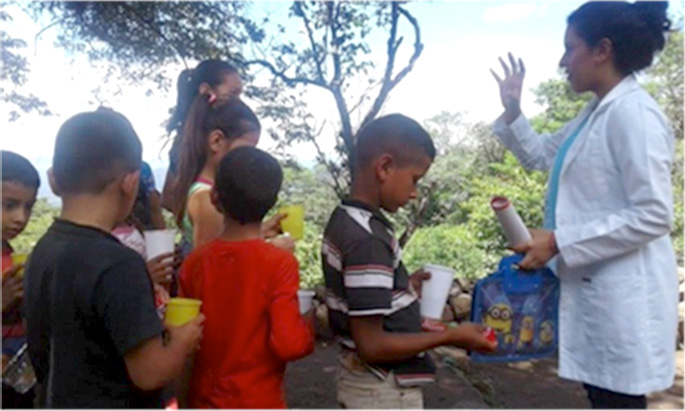
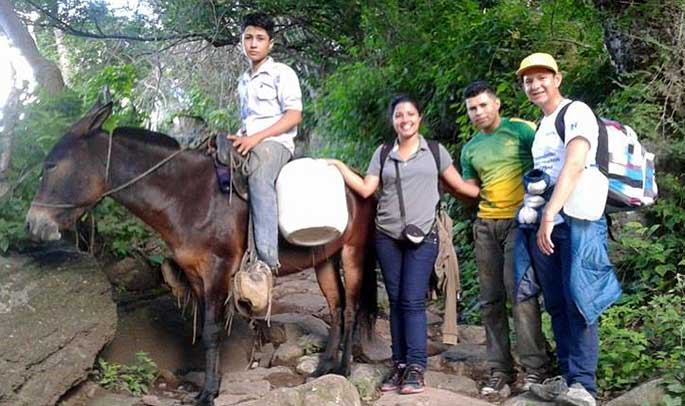 Selfless giving and receiving was the experience of the Youth for a United World from Managua, Nicaragua, during their visit to the small Focolare community of La Cal, a village that rises 1200 metres above sea level near the coffee capital of Jinotega. Armed with some bags of clothing, food, medicinals and toys that were all gathered by the community in Managua, they reached Jinotega after a 3-hour bus ride. Then they drove for 8 km in a pick-up until the road became too rough to travel on. It was still another kilometre and a half through a forest fraught with stones, crevasses and deep slopes that made the trek impossible even for the horses, and the young people had to continue on foot. “You could never imagine the wonderful welcome we received,” the young people report. The village of La Cal was in unstable condition. Its wooden houses teeming with children were without electricity, running water or medical supplies. There was a small shop in the village with some basic relief-items, a small school with one classroom, one teacher and a tiny chapel for when a pricst arrived for Mass. If not for the solar panels that were recently installed, the whole village would be in complete darkness.
Selfless giving and receiving was the experience of the Youth for a United World from Managua, Nicaragua, during their visit to the small Focolare community of La Cal, a village that rises 1200 metres above sea level near the coffee capital of Jinotega. Armed with some bags of clothing, food, medicinals and toys that were all gathered by the community in Managua, they reached Jinotega after a 3-hour bus ride. Then they drove for 8 km in a pick-up until the road became too rough to travel on. It was still another kilometre and a half through a forest fraught with stones, crevasses and deep slopes that made the trek impossible even for the horses, and the young people had to continue on foot. “You could never imagine the wonderful welcome we received,” the young people report. The village of La Cal was in unstable condition. Its wooden houses teeming with children were without electricity, running water or medical supplies. There was a small shop in the village with some basic relief-items, a small school with one classroom, one teacher and a tiny chapel for when a pricst arrived for Mass. If not for the solar panels that were recently installed, the whole village would be in complete darkness.  There were also two medical doctors with the Youth for a United World. One of them, a dentist who began the day with a presentation on oral hygiene to thirty children who so happy to use a tooth brush and toothpaste for the first time in their lives. At lunchtime one family wanted to offer some very warm and delicious tortillas, as the young people gathered the small children for games. In the afternoon presentations were offered for adults on parasite prevention. The very intense day concluded with a reading of the Word of Life, a deep spiritual moment that enveloped everyone. We were all very moved when an elderly man wished to give his blessing to the young people. This was followed by the distribution of goods that the young people had brought for them. They were offered an ex-chicken coop to sleep in that night. “It was so moving for us,” they write, “to spend the night in an ex-chicken coop just like the men in the first focolare whose house was an ex-chicken coop. In the morning, after a good breakfast that had been prepared by the women of the village, we were invited to return again soon and left for Jinotega. We went to the cathedral to thank God for the experience that had changed us so much, that had allowed us know such generous people who live their daily struggle with such dignity and joy of knowing God’s immense love for them – and for having had constructed in the midst of those mountains another small piece of universal brotherhood.”
There were also two medical doctors with the Youth for a United World. One of them, a dentist who began the day with a presentation on oral hygiene to thirty children who so happy to use a tooth brush and toothpaste for the first time in their lives. At lunchtime one family wanted to offer some very warm and delicious tortillas, as the young people gathered the small children for games. In the afternoon presentations were offered for adults on parasite prevention. The very intense day concluded with a reading of the Word of Life, a deep spiritual moment that enveloped everyone. We were all very moved when an elderly man wished to give his blessing to the young people. This was followed by the distribution of goods that the young people had brought for them. They were offered an ex-chicken coop to sleep in that night. “It was so moving for us,” they write, “to spend the night in an ex-chicken coop just like the men in the first focolare whose house was an ex-chicken coop. In the morning, after a good breakfast that had been prepared by the women of the village, we were invited to return again soon and left for Jinotega. We went to the cathedral to thank God for the experience that had changed us so much, that had allowed us know such generous people who live their daily struggle with such dignity and joy of knowing God’s immense love for them – and for having had constructed in the midst of those mountains another small piece of universal brotherhood.”
The objective of the convention to be held in the Mariapolis Centre at Castel Gandolfo (Rome), is to review the professions or activities of magistrates, lawyers, chancellors, prison staff and law enforcers, and discover the path to be pursued together to achieve justice, involving all the “actors” of the multifaceted relationships involved. On Saturday afternoon, there will be separate sessions according to professions or work fields, developed to help these pathways: magistrates coordinated by Dr. Gianni Caso, President Emeritus of the Court of Cassation Section; lawyers coordinated by Atty. Orazio Moscatello of the Court of Bari and Dr. Fiorella Verona of the Court of S. Maria Capua Vetere; court personnel coordinated by Concetta Rubino, Chancellor in the Court of Naples; prison staff coordinated by Dr. Sebastiano Zinna, former director of the UEPE in Rome and Dr. Salvatore Nasca, Director of UEPE in Florence; and law enforcers coordinated by Dr. Pasquale De Rosa, former official of the Ministry of Defence. The convention is undergoing accreditation procedures by the Council of the Lawyers’ Roll of Velletri (Rome) for the recognition as a professional development course. Program Enrolment and bookings open up to 15 November 2016: prenotazioni@comunionediritto.org Enrolment form
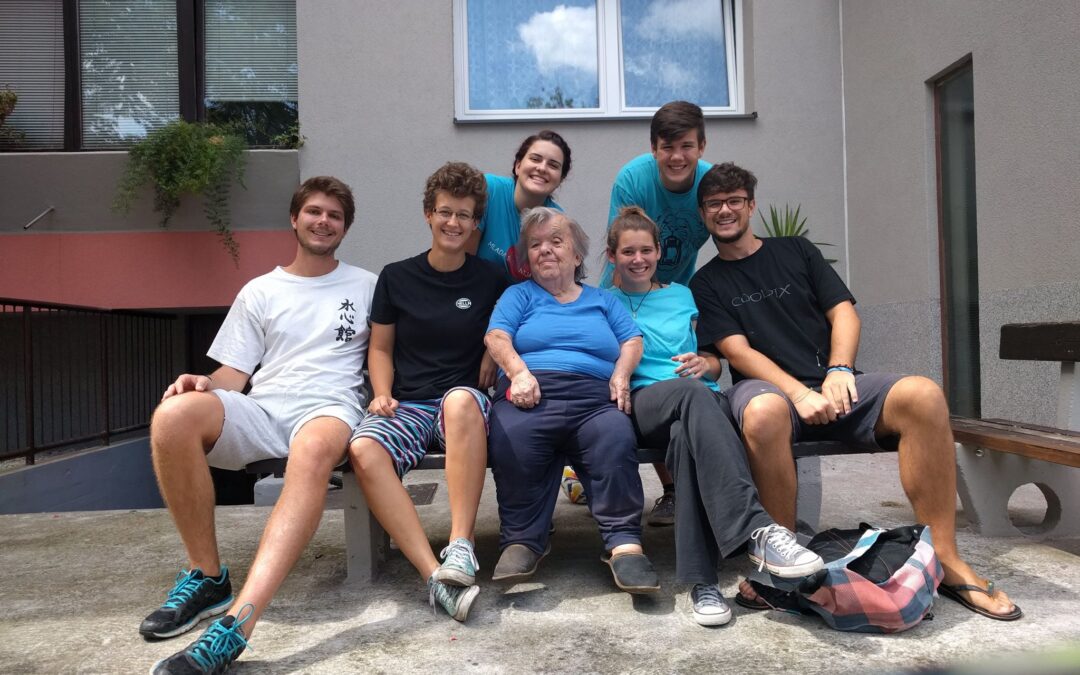
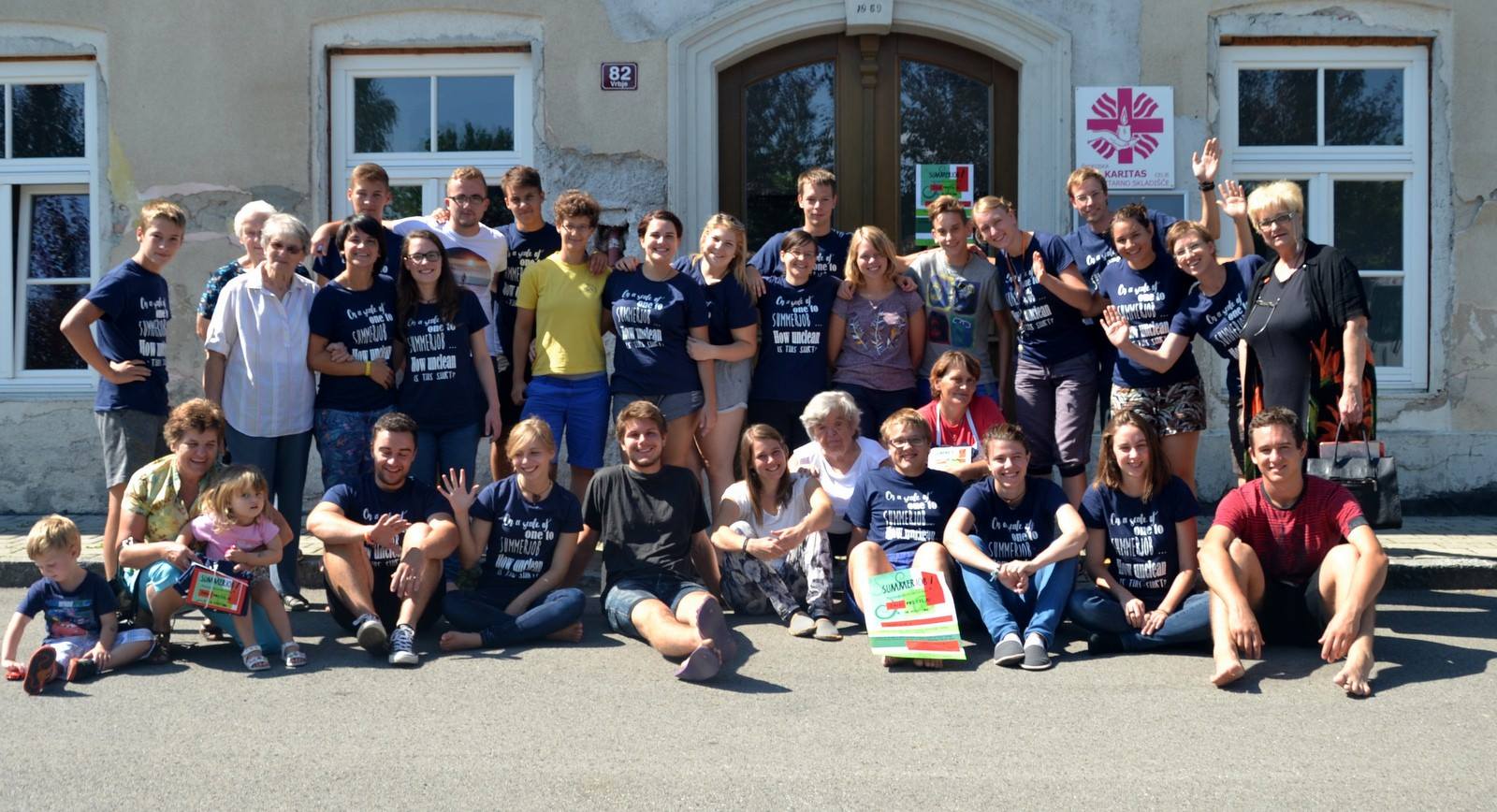 The International Day for the eradication of Poverty was commemorated on 17 October. It was instituted by Father Wresinki in 1987, when he organized a great human rights demonstration in Paris. Poverty is manifested in various ways, incarnating situations, places and entire populations. We will never get used to the fact that there are human beings who cannot enjoy a life worth living. In winter the Youths for a United World of Slovenia dedicate themselves – among other activities – to organising “Summer jobs,” in a summer work camp: in pursuit of the needs of the place, to make various contacts with the mayors, bishops, parish priests and persons of a given locality, to see how they can give their own contribution during summer, to help people in need. This year, in collaboration with the local Caritas association, people and families who needed very concrete help were sought out.
The International Day for the eradication of Poverty was commemorated on 17 October. It was instituted by Father Wresinki in 1987, when he organized a great human rights demonstration in Paris. Poverty is manifested in various ways, incarnating situations, places and entire populations. We will never get used to the fact that there are human beings who cannot enjoy a life worth living. In winter the Youths for a United World of Slovenia dedicate themselves – among other activities – to organising “Summer jobs,” in a summer work camp: in pursuit of the needs of the place, to make various contacts with the mayors, bishops, parish priests and persons of a given locality, to see how they can give their own contribution during summer, to help people in need. This year, in collaboration with the local Caritas association, people and families who needed very concrete help were sought out. 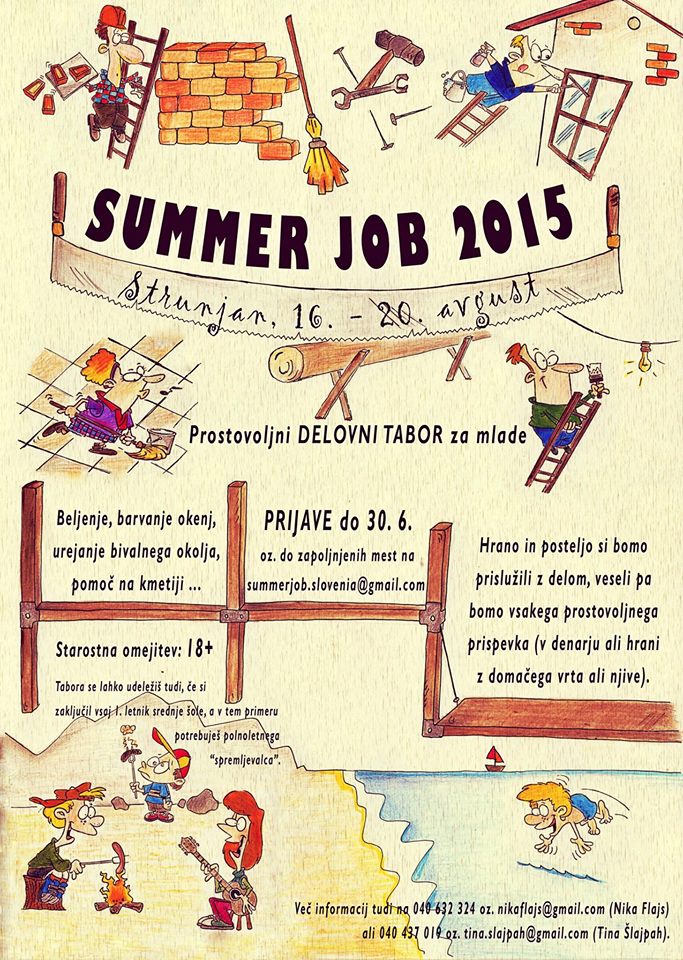 They organised an end-of-summer event from 15 to 20 August in Vrbje, a small village close to Celje. This third edition saw the opening of nine work sites. About 40 people dedicated themselves, seven hours a day, to many activities such as work in the fields, renovation of the courtyard of a house, construction of a chicken coop, restructuring of a disabled woman’s home, preparing aid for the population of Macedonia struck by floods or whitewashing the house of a woman living in miserable conditions. This was all a specific way of putting fraternity into practice, weaving deep relationships with the local folks, and restoring to many, that dignity they often feel to have lost. The decision to share some of the situations and try to bring relief to those who live at the outskirts of society is a demanding choice which requires time and energy, but it is above all the choice to give of oneself that started up the initiative.
They organised an end-of-summer event from 15 to 20 August in Vrbje, a small village close to Celje. This third edition saw the opening of nine work sites. About 40 people dedicated themselves, seven hours a day, to many activities such as work in the fields, renovation of the courtyard of a house, construction of a chicken coop, restructuring of a disabled woman’s home, preparing aid for the population of Macedonia struck by floods or whitewashing the house of a woman living in miserable conditions. This was all a specific way of putting fraternity into practice, weaving deep relationships with the local folks, and restoring to many, that dignity they often feel to have lost. The decision to share some of the situations and try to bring relief to those who live at the outskirts of society is a demanding choice which requires time and energy, but it is above all the choice to give of oneself that started up the initiative. 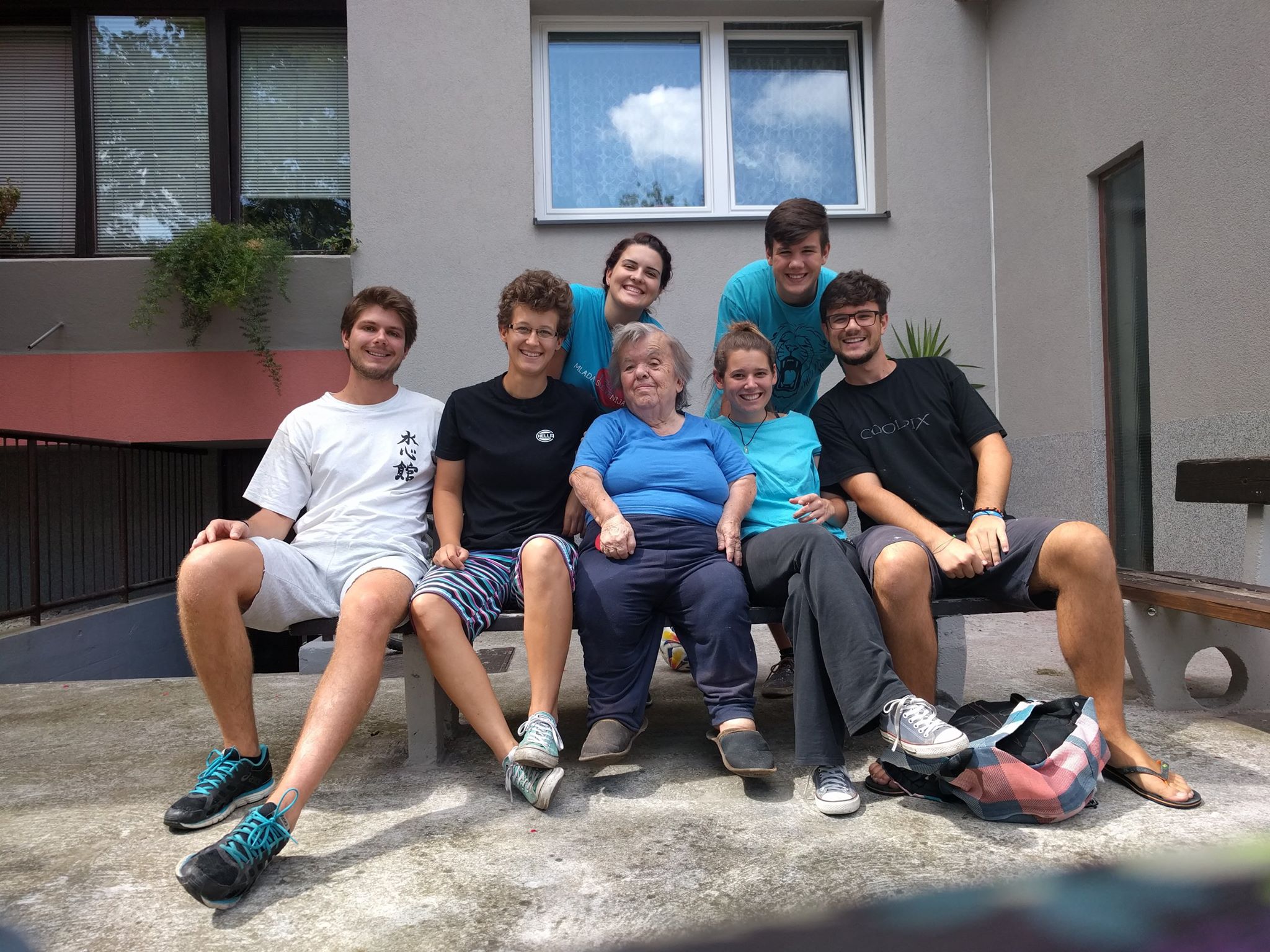 Some of the participating youths wrote about their deep impressions: «It was precisely the more difficult jobs that made us understand how most of the time, relational problems lie at the roots of poverty. For example, with a woman, even if our work had already been defined, we spent more time on the first day, only in getting to know each other, so she could trust us. Only later did she allow us to work on her apartment which needed all sorts of things». There was a lot of time for listening, speaking with many and having an exchange of experiences, worries, and future projects. All this came about in an atmosphere in which all helped each other in utmost readiness, and as a consequence, with the fullness of joy. But the Summerjob did not only consist in work: in the evening everyone shared the experiences lived during the day, and these were solemn, engaging moments that bound and united the participants more and more. Other impressions were: «Upon saying goodbye on the last day with the “employers” we suggested having coffee together to see the photos of the summer camp. It was a mystery what we managed to build in just four days. It was a really impressive moment! Just to think that in the end, the person who receives more is always the one who gives with joy. See the page on facebook of the Summerjob Slovenia 2016
Some of the participating youths wrote about their deep impressions: «It was precisely the more difficult jobs that made us understand how most of the time, relational problems lie at the roots of poverty. For example, with a woman, even if our work had already been defined, we spent more time on the first day, only in getting to know each other, so she could trust us. Only later did she allow us to work on her apartment which needed all sorts of things». There was a lot of time for listening, speaking with many and having an exchange of experiences, worries, and future projects. All this came about in an atmosphere in which all helped each other in utmost readiness, and as a consequence, with the fullness of joy. But the Summerjob did not only consist in work: in the evening everyone shared the experiences lived during the day, and these were solemn, engaging moments that bound and united the participants more and more. Other impressions were: «Upon saying goodbye on the last day with the “employers” we suggested having coffee together to see the photos of the summer camp. It was a mystery what we managed to build in just four days. It was a really impressive moment! Just to think that in the end, the person who receives more is always the one who gives with joy. See the page on facebook of the Summerjob Slovenia 2016
Representatives of the Brazilian Methodist Church and the Baptist Church of the Philippines will also attend. The head moderator will be Cardinal Francis X. Kriengsak Kovithavanij, Archbishop of Bangkok. The theme chosen for this year: “Jesus crucified and abandoned as the basis of a spirituality of communion,” in an atmosphere of fraternal communion and reconciliation, in the context of the 500th anniversary celebration of the Reform. The meeting’s agenda will include theological and spiritual discourses in the light of the spirituality of the Focolare, liturgical celebrations of the various Christian traditions and many sessions of exchange and communion among the participants. Moreover, they will visit the Dachau concentration camp and some important sites of the Reform. An important moment will be the ecumenical rite in the Church of St. Anne in Augsburg on 26 October. The celebration will focus on the memorial of the “Joint Declaration on the Doctrine of Justification” with which the Catholic Church and the Worldwide Lutheran Federation had put an end to mutual judgements and anathemas. On Thursday, 27 October, the bishops will be received by the Mayor of Augsburg, Dr. Kurt Gribl.
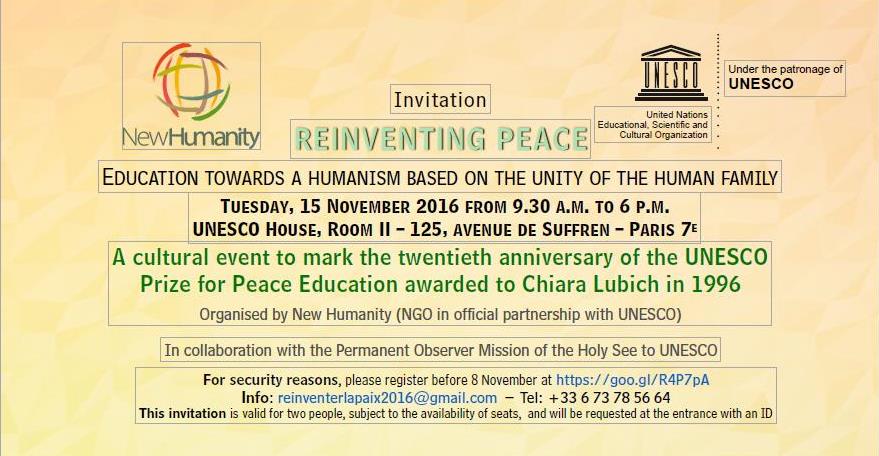
 The wars which for too many years have been devastating continents that are only sea distance away from Europe have come into our home, and now terrorism has become the last frontier. And it is in France, one year after the terrible massacre at the Bataclan that the challenge of peace is being relaunched. On 17 December 1996, in Paris, Chiara Lubich received the UNESCO Prize for Peace Education in recognition for a life spent in the dissemination of a culture of unity and peace and the formation of thousands and thousands of people of every race and latitude. The Focolare Movement has been present at UNESCO through its New Humanity NGO. The General Management of UNESCO and the Holy See’s Permanent Observer wished to reaffirm and testify to their commitment to unity and peace by proposing a day of reflection and testimony in five areas: Education, the Common Good, Justice, Ecology and Art. Theme of the event Last April, at the United Nations in New York, Maria Voce proposed focusing on radical dialogue in the search for peace. She was speaking at a debate on the promotion of tolerance and reconciliation: “[Dialogue] is risky, demanding, challenging, aimed at severing the roots of misunderstanding, fear and resentment.” The challenge of dialogue is timelier than ever. It is the starting point for creating the mosaic of peace, one day at a time, one tile at a time. It is the way to build a planet where there is a mutual recognition of identity and diversity, the mending of the social fabric, new attention to the needy, to justice, to human dignity and to sharing the world’s goods. The very word peace draws its deepest meaning from its Sanskrit root pak, which means join, unite. Committing oneself to reinventing peace means creating connections that will require the involvement of human, intellectual and institutional resources. It means calling upon the world economy, international law and peace education at all levels. It means valuing cultural diversity, that is, the invaluable identity of every people. It means equipping the new generations for a culture of dialogue and encounter. It means facing up to the refugee crisis concretely. It means protecting the environment, opposing corruption and promoting the rule of law at every level. It means halting the increase in military spending and the arms trade. It means coming up with a new security plan, stability and cooperation for the Middle East. Program and speakers The event will be attended by members of the diplomatic world, experts on international relations and the peace process and representatives from New Humanity and the Focolare Movement. The first session, titled Chiara Lubich, Peace Education, will be introduced by representatives from UNESCO and by Msgr Francesco Follo, Permanent Observer of the Holy See. This will be followed by presentations from Maria Voce and Jesús Morán, president and co-president of the Focolare Movement. The second session – Five paths for peace education on five continents – will carry on with examples of best practices from around the world. In the afternoon there will be an open session titled Dialogue, the remedy for the world’s problems, which will be opened by former Italian Prime Minister, Enrico Letta, and current president of the Jacques Delors Institute. Then there will be two moments of discussion on religions, economy and politics.
The wars which for too many years have been devastating continents that are only sea distance away from Europe have come into our home, and now terrorism has become the last frontier. And it is in France, one year after the terrible massacre at the Bataclan that the challenge of peace is being relaunched. On 17 December 1996, in Paris, Chiara Lubich received the UNESCO Prize for Peace Education in recognition for a life spent in the dissemination of a culture of unity and peace and the formation of thousands and thousands of people of every race and latitude. The Focolare Movement has been present at UNESCO through its New Humanity NGO. The General Management of UNESCO and the Holy See’s Permanent Observer wished to reaffirm and testify to their commitment to unity and peace by proposing a day of reflection and testimony in five areas: Education, the Common Good, Justice, Ecology and Art. Theme of the event Last April, at the United Nations in New York, Maria Voce proposed focusing on radical dialogue in the search for peace. She was speaking at a debate on the promotion of tolerance and reconciliation: “[Dialogue] is risky, demanding, challenging, aimed at severing the roots of misunderstanding, fear and resentment.” The challenge of dialogue is timelier than ever. It is the starting point for creating the mosaic of peace, one day at a time, one tile at a time. It is the way to build a planet where there is a mutual recognition of identity and diversity, the mending of the social fabric, new attention to the needy, to justice, to human dignity and to sharing the world’s goods. The very word peace draws its deepest meaning from its Sanskrit root pak, which means join, unite. Committing oneself to reinventing peace means creating connections that will require the involvement of human, intellectual and institutional resources. It means calling upon the world economy, international law and peace education at all levels. It means valuing cultural diversity, that is, the invaluable identity of every people. It means equipping the new generations for a culture of dialogue and encounter. It means facing up to the refugee crisis concretely. It means protecting the environment, opposing corruption and promoting the rule of law at every level. It means halting the increase in military spending and the arms trade. It means coming up with a new security plan, stability and cooperation for the Middle East. Program and speakers The event will be attended by members of the diplomatic world, experts on international relations and the peace process and representatives from New Humanity and the Focolare Movement. The first session, titled Chiara Lubich, Peace Education, will be introduced by representatives from UNESCO and by Msgr Francesco Follo, Permanent Observer of the Holy See. This will be followed by presentations from Maria Voce and Jesús Morán, president and co-president of the Focolare Movement. The second session – Five paths for peace education on five continents – will carry on with examples of best practices from around the world. In the afternoon there will be an open session titled Dialogue, the remedy for the world’s problems, which will be opened by former Italian Prime Minister, Enrico Letta, and current president of the Jacques Delors Institute. Then there will be two moments of discussion on religions, economy and politics.
More information: Unesco – New Humanity Rome: Tel: +39 06 94798133/+39 338 2640371; info.unesco2016@focolare.org Paris: Tél: +33 6 73 78 56 64 Email: reinventerlapaix2016@gmail.com Invitation download – Registration: https://goo.gl/R4P7pA
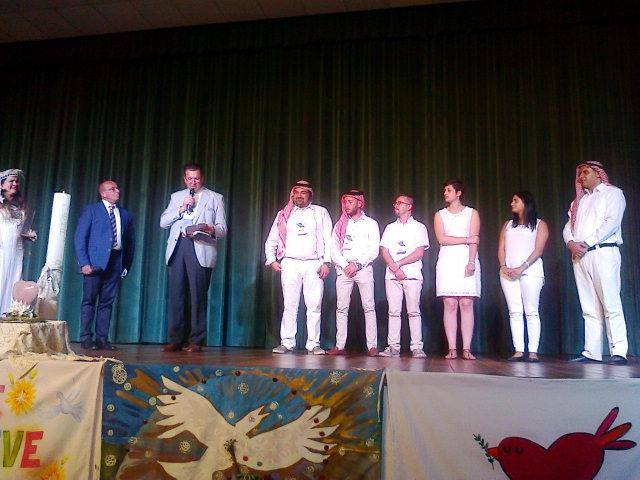
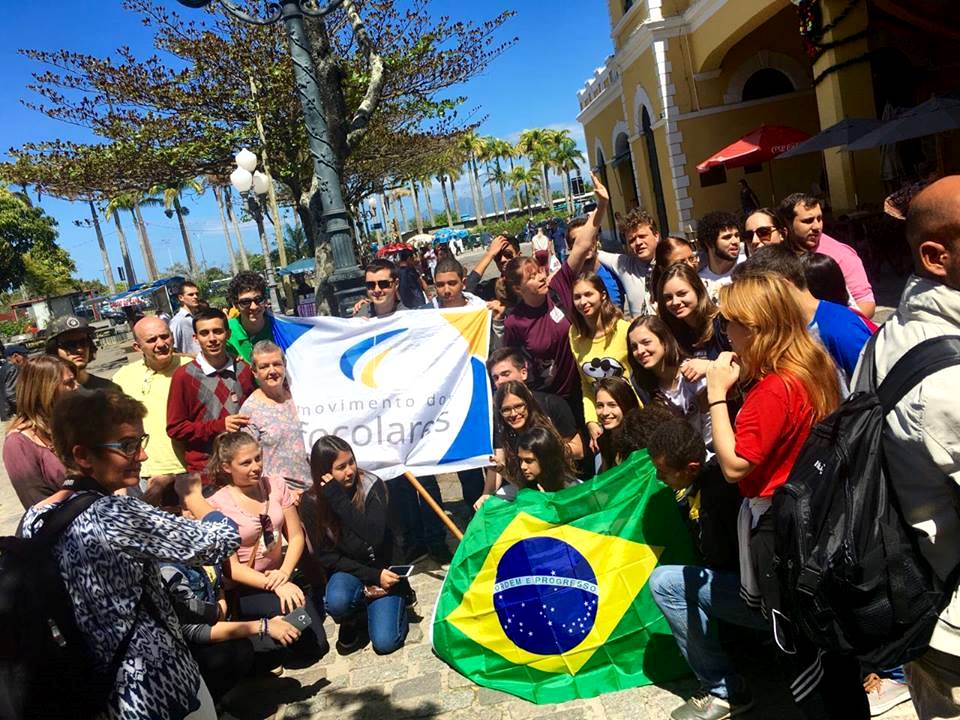 The tenth World Peace Forum and the second Youth World Peace Forum were held at Florianópolis, Brazil on September 22-15, 2016. Some events were held in common and others distinctly. The forum was attended by 1,500 adults and young people from 60 countries, different cultures and various religious faiths. “We Believe” was the main theme which was articulated: “We believe in change,” with a day dedicated to ecology; “We believe in human rights,” with a day dedicated to humanity; and “We believe in peace,’ with a day dedicated to education. The opening ceremony was held on September 21 in the plaza outside the Cathedral, with 400 dancers. Among the five flags that were waved during the dance there was also that of the Focolare Movement. The ceremony was marked by a deep atmosphere of prayer for peace. On September 22 there was a peace march through the city streets, with adults, teenagers and children. President of the Youth Global Peace Forum, Carlos Palma, commented: “It was very moving to see Chiara Lubich’s name written on the door of one of the halls, with the title “Peacebuilder” that had been given to her by UNESCO in 1996 for Peace Education.”
The tenth World Peace Forum and the second Youth World Peace Forum were held at Florianópolis, Brazil on September 22-15, 2016. Some events were held in common and others distinctly. The forum was attended by 1,500 adults and young people from 60 countries, different cultures and various religious faiths. “We Believe” was the main theme which was articulated: “We believe in change,” with a day dedicated to ecology; “We believe in human rights,” with a day dedicated to humanity; and “We believe in peace,’ with a day dedicated to education. The opening ceremony was held on September 21 in the plaza outside the Cathedral, with 400 dancers. Among the five flags that were waved during the dance there was also that of the Focolare Movement. The ceremony was marked by a deep atmosphere of prayer for peace. On September 22 there was a peace march through the city streets, with adults, teenagers and children. President of the Youth Global Peace Forum, Carlos Palma, commented: “It was very moving to see Chiara Lubich’s name written on the door of one of the halls, with the title “Peacebuilder” that had been given to her by UNESCO in 1996 for Peace Education.” 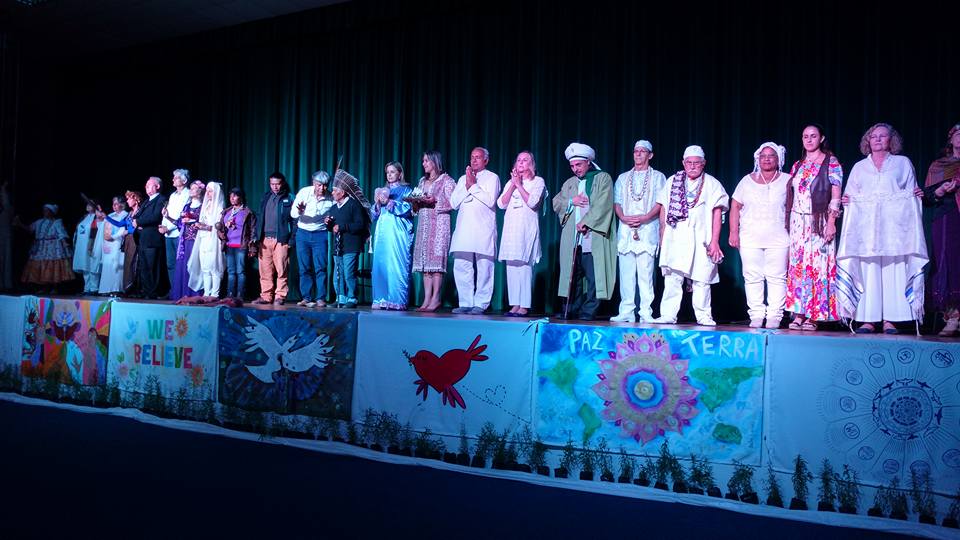 The young people’s forum was an explosion of life, with touching testimonies and presentations of their many projects and personal experiences in being committed to peace. On September 23, an additional 500 young people from around the world were linked up via web for the World Conference of Young People for Peace, which is part of Living Peace International in collaboration with Peace Pals International (New York, USA). The Global Peace Forum concluded on September 25 with a profound inter-religous prayer with 30 representatives from different religious and spiritual traditions. An important part of the programme was devoted to Peace Education, during which Living Peace was presented. The presentation and history of this project, how it has spread throughout the world and its teaching method, was accompanied by a series of testimonies by Brazilian, Spanish, Paraguayan and North American young people, and others.
The young people’s forum was an explosion of life, with touching testimonies and presentations of their many projects and personal experiences in being committed to peace. On September 23, an additional 500 young people from around the world were linked up via web for the World Conference of Young People for Peace, which is part of Living Peace International in collaboration with Peace Pals International (New York, USA). The Global Peace Forum concluded on September 25 with a profound inter-religous prayer with 30 representatives from different religious and spiritual traditions. An important part of the programme was devoted to Peace Education, during which Living Peace was presented. The presentation and history of this project, how it has spread throughout the world and its teaching method, was accompanied by a series of testimonies by Brazilian, Spanish, Paraguayan and North American young people, and others.  The conferral of the Luxembourg Peace Prize to the young Omar Aobou Baker from Cairo, Egypt and member of Living Peace International, was particularly moving. The next Global Peace Forum will be held in Amman, Jordan, September 2017 with adults; and another in Manila, Philippines, organized by the young people in conjunction with the 2018 Genfest. The solemn signing of the Florianópolis Letter of Intent, titled 1% for Peace, brought the conference to an honorable conclusion. This document proposes that private and public entities destine 1% of their internal and external security spending to financing peace education projects. Eliana Quadro, a young woman Volunteer from the Focolare in Florianópolis, received the Commandant of the Global Peace Forum Silver Medal in recognition of her efforts in producing the event. “The Forum was characterized by the deep relationships that were created,” Carlos Palma concluded, “by the great joy in everyone’s hearts and, above all, by the immense gratitude to God and to the charism of Chiara Lubich that projects us towards humanity and makes us builders of peace and unity.”
The conferral of the Luxembourg Peace Prize to the young Omar Aobou Baker from Cairo, Egypt and member of Living Peace International, was particularly moving. The next Global Peace Forum will be held in Amman, Jordan, September 2017 with adults; and another in Manila, Philippines, organized by the young people in conjunction with the 2018 Genfest. The solemn signing of the Florianópolis Letter of Intent, titled 1% for Peace, brought the conference to an honorable conclusion. This document proposes that private and public entities destine 1% of their internal and external security spending to financing peace education projects. Eliana Quadro, a young woman Volunteer from the Focolare in Florianópolis, received the Commandant of the Global Peace Forum Silver Medal in recognition of her efforts in producing the event. “The Forum was characterized by the deep relationships that were created,” Carlos Palma concluded, “by the great joy in everyone’s hearts and, above all, by the immense gratitude to God and to the charism of Chiara Lubich that projects us towards humanity and makes us builders of peace and unity.”
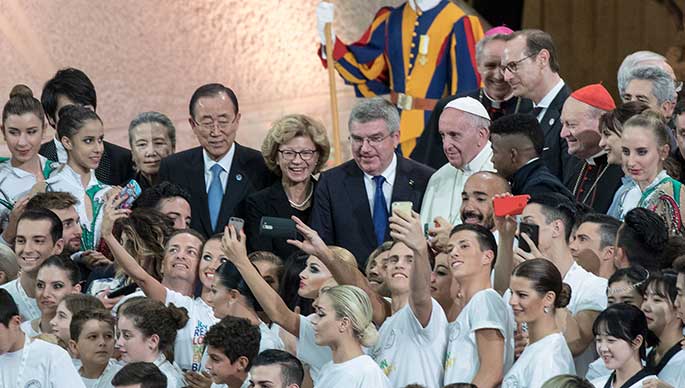
 The 300 delegates who gave a very important contribution to the convention were of various ethnic groups, cultures and religions, representing sportive and non-sportive international organizations, governments, associations and NGOs of companies involved in the variegated world of sports. The moments of reflection, in-depth study of themes, testimonials, and work groups, focused on the irreplaceable and important role of sports in serving humanity. Paolo Crepaz of Sportmeet underlined: «All were overjoyed to have participated and contributed to a historical event due to the novelty of the great attention the Church pays to the world of Sports.» At the conclusion, the athletes solemnly affixed their signatures to symbolise their commitment to becoming game changers,” to form and promote a global network in the conviction that sports can change the world. See: cittanuova.it
The 300 delegates who gave a very important contribution to the convention were of various ethnic groups, cultures and religions, representing sportive and non-sportive international organizations, governments, associations and NGOs of companies involved in the variegated world of sports. The moments of reflection, in-depth study of themes, testimonials, and work groups, focused on the irreplaceable and important role of sports in serving humanity. Paolo Crepaz of Sportmeet underlined: «All were overjoyed to have participated and contributed to a historical event due to the novelty of the great attention the Church pays to the world of Sports.» At the conclusion, the athletes solemnly affixed their signatures to symbolise their commitment to becoming game changers,” to form and promote a global network in the conviction that sports can change the world. See: cittanuova.it
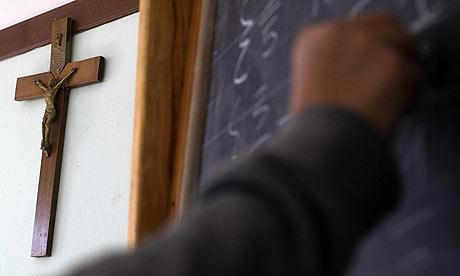
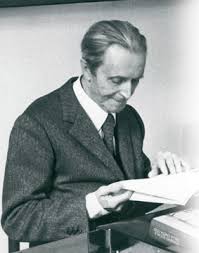 “Teaching is like lighting a flame, not filling an empty vessel. If it is a flame that needs to be fed, then a learner should be taught to guard and increase the warmth and light. A person needs an education that outlasts childhood and continues from birth to death – and that is the period for giving.” Giordani was a writer and journalist, a man of politics but also a formidable educator. His writings were intended to teach, to teach citizens the path of justice. Many were raised on Giordani’s writings during the difficult period of cultural resistance to Fascism and during the Cold War. Giordani taught by living and then writing. In his opinion education should be a universal endeavour that engages the whole citizenry. The function of education is to instill two fundamental skills: freedom and responsibility. Referring to an image used by Plutarch, for Giordani, teaching meant lighting a flame and creating the conditions for the learner to know how to keep it constantly alive. The focus of the learning process would thus be shifted from teacher to learner and from childhood to the entire lifespan. “In the natural order the teachers are the family and the State; in the supernatural order, the Church. When these collaborate toward the same goal – cooperating rather than bumping into each other – education achieves its full effect. Individuals and crowds are not stupefied and neutral in front of their personal destiny, but they face it with courage and you have those epochal periods of great undertakings for peace and for war, for thought and for action. The family is not a mere roost, orphanage or corporate housing: it is a church and a school. Parents have a natural right – therefore from God – to teach that goes beyond generating and nourishing children; an inalienable right that comes before every other civil right.
“Teaching is like lighting a flame, not filling an empty vessel. If it is a flame that needs to be fed, then a learner should be taught to guard and increase the warmth and light. A person needs an education that outlasts childhood and continues from birth to death – and that is the period for giving.” Giordani was a writer and journalist, a man of politics but also a formidable educator. His writings were intended to teach, to teach citizens the path of justice. Many were raised on Giordani’s writings during the difficult period of cultural resistance to Fascism and during the Cold War. Giordani taught by living and then writing. In his opinion education should be a universal endeavour that engages the whole citizenry. The function of education is to instill two fundamental skills: freedom and responsibility. Referring to an image used by Plutarch, for Giordani, teaching meant lighting a flame and creating the conditions for the learner to know how to keep it constantly alive. The focus of the learning process would thus be shifted from teacher to learner and from childhood to the entire lifespan. “In the natural order the teachers are the family and the State; in the supernatural order, the Church. When these collaborate toward the same goal – cooperating rather than bumping into each other – education achieves its full effect. Individuals and crowds are not stupefied and neutral in front of their personal destiny, but they face it with courage and you have those epochal periods of great undertakings for peace and for war, for thought and for action. The family is not a mere roost, orphanage or corporate housing: it is a church and a school. Parents have a natural right – therefore from God – to teach that goes beyond generating and nourishing children; an inalienable right that comes before every other civil right.  The family will educate if parents are not only educated, but aware of their mission to be teachers; if they are able to nurture in the souls of their children greater ideals than food, board and profession; if they act like a teaching domestic church. Religion is also there to remember, to lift up and protect the teaching obligation of the family. And politics should do likewise. The State is the other great educator and accomplishes its role through the school. Nowadays, States run their own schools, and it is there natural right to do so. But it would no longer be their right if they coerced religious conscience and perverted moral conscience; even worse if they prevented the Church from having her own schools.” “For what regards morality, education should be the same from family to State, from parish to workplace. It should draw on God’s law and construct human laws based on God’s law. The soul of such education is a transcendent faith that snatches individuals from the grip of individualism and joins them to one another with an impulse of justice and charity. As one great educator once said, ‘The real social culture was begun on Golgatha’.” (Igino Giordani, “Educazione e istruzione” in La società cristiana, Città Nuova, (1942) 2010, pp. 108 – 111).
The family will educate if parents are not only educated, but aware of their mission to be teachers; if they are able to nurture in the souls of their children greater ideals than food, board and profession; if they act like a teaching domestic church. Religion is also there to remember, to lift up and protect the teaching obligation of the family. And politics should do likewise. The State is the other great educator and accomplishes its role through the school. Nowadays, States run their own schools, and it is there natural right to do so. But it would no longer be their right if they coerced religious conscience and perverted moral conscience; even worse if they prevented the Church from having her own schools.” “For what regards morality, education should be the same from family to State, from parish to workplace. It should draw on God’s law and construct human laws based on God’s law. The soul of such education is a transcendent faith that snatches individuals from the grip of individualism and joins them to one another with an impulse of justice and charity. As one great educator once said, ‘The real social culture was begun on Golgatha’.” (Igino Giordani, “Educazione e istruzione” in La società cristiana, Città Nuova, (1942) 2010, pp. 108 – 111).
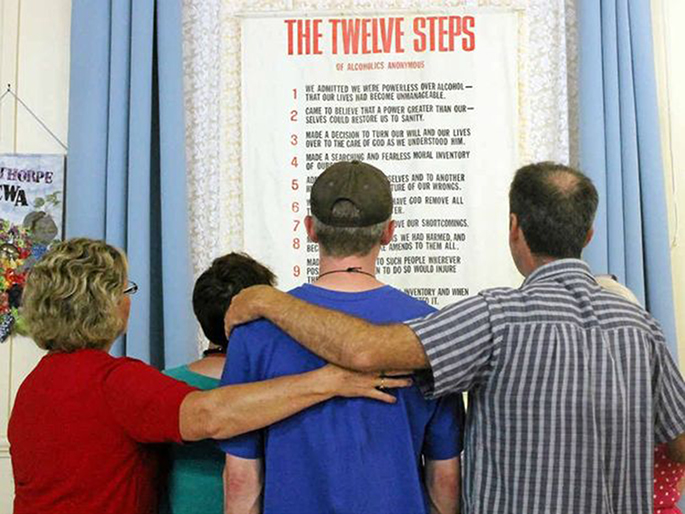
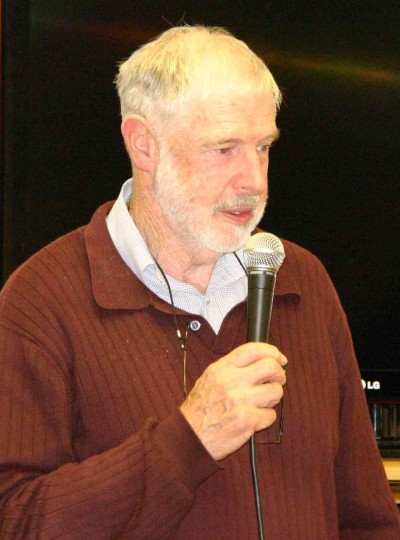
Kevin Kelly
 They were a very spiritual people and working with them, I felt a real bond and a sense of unity of purpose. These ex-alcoholics were very honest with themselves and with each other. Nearly all of them had obtained their sobriety through Alcoholics Anonymous which is a 12-step program. They were ruthless in their self-assessment and refused to give in to resentments and negative feelings. It was a real privilege working with them. At one stage I felt there was a lack of patience with repeat clients. Workers in the field of the homeless and destitute really felt comfortable with the way we respected their clients and used to send people to the centre to sober up. However, this meant that once they were rehabilitated they would often return to their old ways. This was difficult for the ex-alcoholics who invested so much in helping people to recover. In listening to them, I was able to share a maxim I had learned from Chiara Lubich – “to see each person new” – and to live it each time they came into the unit. I emphasized that when people came in again looking for help, we had to see them as though we were seeing them for the first time, even if they had been in many times before. Most of them managed to do this despite the pain it caused them. We had a victory when one fellow, who had a record number of admissions and who was treated by us as a new person each time, suddenly saw the light and gave up drinking altogether. To everyone’s amazement he went on to achieve long term sobriety and even started to help other people! Throughout this experience, I came to see the importance of suffering and the role it played in people’s development. By loving and accepting each person as they were, we were able to be more human in the way we responded to any situation.”
They were a very spiritual people and working with them, I felt a real bond and a sense of unity of purpose. These ex-alcoholics were very honest with themselves and with each other. Nearly all of them had obtained their sobriety through Alcoholics Anonymous which is a 12-step program. They were ruthless in their self-assessment and refused to give in to resentments and negative feelings. It was a real privilege working with them. At one stage I felt there was a lack of patience with repeat clients. Workers in the field of the homeless and destitute really felt comfortable with the way we respected their clients and used to send people to the centre to sober up. However, this meant that once they were rehabilitated they would often return to their old ways. This was difficult for the ex-alcoholics who invested so much in helping people to recover. In listening to them, I was able to share a maxim I had learned from Chiara Lubich – “to see each person new” – and to live it each time they came into the unit. I emphasized that when people came in again looking for help, we had to see them as though we were seeing them for the first time, even if they had been in many times before. Most of them managed to do this despite the pain it caused them. We had a victory when one fellow, who had a record number of admissions and who was treated by us as a new person each time, suddenly saw the light and gave up drinking altogether. To everyone’s amazement he went on to achieve long term sobriety and even started to help other people! Throughout this experience, I came to see the importance of suffering and the role it played in people’s development. By loving and accepting each person as they were, we were able to be more human in the way we responded to any situation.”
Experience shared by Kevin Kelly at the Health Symposium “Darkness to Light – Spirituality of Unity in Chronic Disease and Disability” Focolare Movement, Australia, July 2016
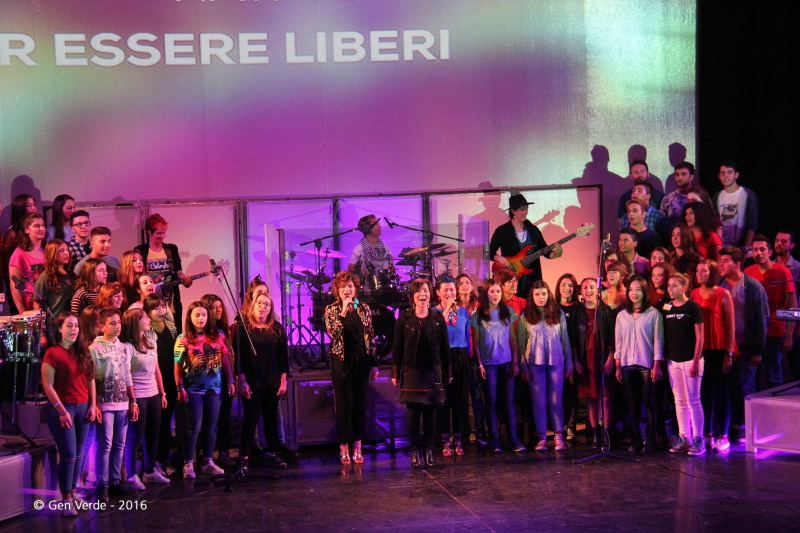
 LoppianoLab 2016 opened its doors again this year with the theme: the poverty of riches and the wealth of poverty. Persons, institutions, ideas and experiences all played an active part in building a future based on a culture of unity across all fields. Mileni, Gen Verde’s guitarist, described LoppianoLab 2016 as “unique since during it we launched ‘Young people in action’: performing arts workshops dedicated especially to young people looking for a way to build a better future.” So 160 young people mostly from Italy but also including a group of 50 from all over the world took part in this enriching experience of intercultural exchange. Mutual listening and trust reigned in an atmosphere free from prejudice. Mileni explains – “The young people told us that they learned to recognize the needs of those around them and not just their own.” They said: “We can choose: either to ignore those who have difficulties or to help them.” They discovered the miracle of ‘being together’ and the richness that comes from sharing in the small things of everyday life. When asked, “Did you learn anything new here?”, they replied: “we understood the value of solidarity, and helping one another. We learned to value team work. We learned the importance of a having a sense of responsibility and the part each can play in the life of a group. We learned that on our own we can achieve small things but together we can do something great.” They also spoke about the important experience of working with others from a different culture: “we learned to go beyond barriers which could have been there because we speak different languages or come from different places. Instead we found a way of communicating which was very deep and sincere. Together we were able to go beyond moments when we experienced discouragement or failure and discover the joy of singing, dancing or creating music together.” When asked, what will you take from this to your everyday life? The young people replied: “To listen to others. To trust them. Not to stop at my own limits.” And: “We have learned to trust in ourselves more and that people are not always what they seem – first impressions can be wrong! In the very positive atmosphere we experienced here, we learned to eliminate prejudice and get along happily with others.” The event concluded with a bang in an exciting final performance at the Loppiano Auditorium packed with 900 people. They listened intensely and in the end everyone was on their feet as great joy filled the air. Those in the audience said: “I loved the concert – it felt like something really new, modern and extremely relevant in that it touched on issues all of us face.” And, “It was so beautiful, I experienced the strength that comes from diversity. At the end of the concert I would have wanted to say so much, but in the end I remained in silence. In silence to meditate on the values you transmitted to us.” Video
LoppianoLab 2016 opened its doors again this year with the theme: the poverty of riches and the wealth of poverty. Persons, institutions, ideas and experiences all played an active part in building a future based on a culture of unity across all fields. Mileni, Gen Verde’s guitarist, described LoppianoLab 2016 as “unique since during it we launched ‘Young people in action’: performing arts workshops dedicated especially to young people looking for a way to build a better future.” So 160 young people mostly from Italy but also including a group of 50 from all over the world took part in this enriching experience of intercultural exchange. Mutual listening and trust reigned in an atmosphere free from prejudice. Mileni explains – “The young people told us that they learned to recognize the needs of those around them and not just their own.” They said: “We can choose: either to ignore those who have difficulties or to help them.” They discovered the miracle of ‘being together’ and the richness that comes from sharing in the small things of everyday life. When asked, “Did you learn anything new here?”, they replied: “we understood the value of solidarity, and helping one another. We learned to value team work. We learned the importance of a having a sense of responsibility and the part each can play in the life of a group. We learned that on our own we can achieve small things but together we can do something great.” They also spoke about the important experience of working with others from a different culture: “we learned to go beyond barriers which could have been there because we speak different languages or come from different places. Instead we found a way of communicating which was very deep and sincere. Together we were able to go beyond moments when we experienced discouragement or failure and discover the joy of singing, dancing or creating music together.” When asked, what will you take from this to your everyday life? The young people replied: “To listen to others. To trust them. Not to stop at my own limits.” And: “We have learned to trust in ourselves more and that people are not always what they seem – first impressions can be wrong! In the very positive atmosphere we experienced here, we learned to eliminate prejudice and get along happily with others.” The event concluded with a bang in an exciting final performance at the Loppiano Auditorium packed with 900 people. They listened intensely and in the end everyone was on their feet as great joy filled the air. Those in the audience said: “I loved the concert – it felt like something really new, modern and extremely relevant in that it touched on issues all of us face.” And, “It was so beautiful, I experienced the strength that comes from diversity. At the end of the concert I would have wanted to say so much, but in the end I remained in silence. In silence to meditate on the values you transmitted to us.” Video
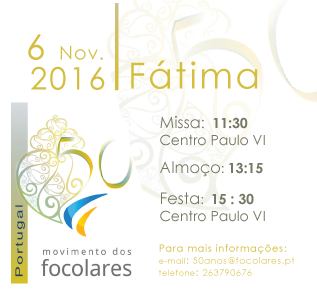
Celebrations will take place on 6th November in Fatima. All welcome.  Program: 11.30 – Mass in the Paul VI Auditorium 13,15 – Lunch 15,30 – Celebration of the 50th anniversary of the Focolare Movement in Portugal in the Auditorium 17,30 – Conclusion For more information: 50anos@focolares.pt / tel: +351 263 790 676
Program: 11.30 – Mass in the Paul VI Auditorium 13,15 – Lunch 15,30 – Celebration of the 50th anniversary of the Focolare Movement in Portugal in the Auditorium 17,30 – Conclusion For more information: 50anos@focolares.pt / tel: +351 263 790 676
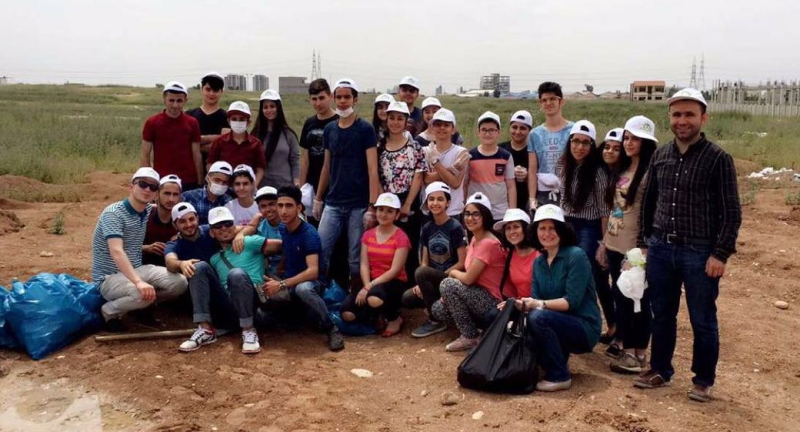
 Political instability, economic uncertainty, corruption, religious extremism, and reduction of educational offers are just some of the causes that push the Iraqi population to an unprecedented migration. The choice to remain in Iraq today is a really difficult decision, especially if you are a Christian. And yet Iraq disposes of remarkable natural resources and its people are endowed with humanity and great inclusion capacities. Just think of the plurality of the cultures, languages, and religions, and the various ethnic groups which for centuries had managed to coexist in peace. The habitat of Christian legacy right at its origins, for 2,000 years Iraq has been the natural home to very lively Christian communities. With the outbreak of wars, however, today it has become the object of discrimination and persecution. The most atrocious even was two years ago, when the ISIS extremists took over Mossul and the surrounding plains: in a few hours thousands of Christians had to abandon their homes. With only the clothes they were wearing, they had to disperse amid numberless dangers and discomforts, towards Jordan or Lebanon where they found refuge in makeshift refugee camps. Some statistics say that the Christians in Iraq counted 1.5 million (2003), and today number 300,000. Also the Focolare community has suffered the devastating effects of this barbarity. But both those who left the country and those who remained – concentrated in the cities of Erbil, Baghdad, Bassura, and Dohuk – try to transmit peace everywhere, building bridges of solidarity. However, while in the typical summer meetings of the Focolare in the past, the Mariapolis saw the participation of 400 people, and in those held from 9 to 11 September this year, only 40 attended. But the numerical drop has not influenced the qualitative profile which has definitely grown in intensity and depth, also because the central theme focused on interpersonal relationships undertaken in the spirit of mercy. Hosted in Sulaymaniya, close to the border with Iran, the participants lived three days of an authentic training in mutual love. Racconta Rula, focolarina from Jordan and now in the focolare house of Erbil: «We prayed, played, took walks in a family atmosphere, experiencing real communion. During the session dedicated to the family, the spirit of sharing created allowed us to talk about relationships as couples, the challenge of migration, conciliation of work and family, education of the children… while the youths, through choreographies, showed how one we can become bridges towards the others.» The Mariapolis was also visited by the Bishop of Baghdad, Bishop Salomone, who inflamed all with his words: «Jesus wants us to become yeast for this world. I am pleased that you chose this city for your meeting, and even if you are only a few, you will surely leave in this place that typical imprint of those who are seriously committed to living the Gospel.» The focolare tries to support those who have remained, as also those who have decided to leave, precisely because they are aware of the difficulties of living without being able to plan one’s future, especially for the youth. «We see that albeit the fact of living abroad – continues Rula – they still want to remain in contact. A young boy wrote us from the refugee camp, saying that the spirituality of unity is the only light that is his support and that trying to love others gives a meaning to the unnerving wait they are undergoing.» Among the many experiences shared in the Mariapolis, is the emblematic one of a surgeon in a public hospital. Since the doctors do not receive their salaries regularly, they try to plan the operations for the afternoon, when these are private and paid operations. But he decided to help as many people as possible by scheduling the appointments in the morning. At first, his colleagues criticized him, but slowly they began to do the same.
Political instability, economic uncertainty, corruption, religious extremism, and reduction of educational offers are just some of the causes that push the Iraqi population to an unprecedented migration. The choice to remain in Iraq today is a really difficult decision, especially if you are a Christian. And yet Iraq disposes of remarkable natural resources and its people are endowed with humanity and great inclusion capacities. Just think of the plurality of the cultures, languages, and religions, and the various ethnic groups which for centuries had managed to coexist in peace. The habitat of Christian legacy right at its origins, for 2,000 years Iraq has been the natural home to very lively Christian communities. With the outbreak of wars, however, today it has become the object of discrimination and persecution. The most atrocious even was two years ago, when the ISIS extremists took over Mossul and the surrounding plains: in a few hours thousands of Christians had to abandon their homes. With only the clothes they were wearing, they had to disperse amid numberless dangers and discomforts, towards Jordan or Lebanon where they found refuge in makeshift refugee camps. Some statistics say that the Christians in Iraq counted 1.5 million (2003), and today number 300,000. Also the Focolare community has suffered the devastating effects of this barbarity. But both those who left the country and those who remained – concentrated in the cities of Erbil, Baghdad, Bassura, and Dohuk – try to transmit peace everywhere, building bridges of solidarity. However, while in the typical summer meetings of the Focolare in the past, the Mariapolis saw the participation of 400 people, and in those held from 9 to 11 September this year, only 40 attended. But the numerical drop has not influenced the qualitative profile which has definitely grown in intensity and depth, also because the central theme focused on interpersonal relationships undertaken in the spirit of mercy. Hosted in Sulaymaniya, close to the border with Iran, the participants lived three days of an authentic training in mutual love. Racconta Rula, focolarina from Jordan and now in the focolare house of Erbil: «We prayed, played, took walks in a family atmosphere, experiencing real communion. During the session dedicated to the family, the spirit of sharing created allowed us to talk about relationships as couples, the challenge of migration, conciliation of work and family, education of the children… while the youths, through choreographies, showed how one we can become bridges towards the others.» The Mariapolis was also visited by the Bishop of Baghdad, Bishop Salomone, who inflamed all with his words: «Jesus wants us to become yeast for this world. I am pleased that you chose this city for your meeting, and even if you are only a few, you will surely leave in this place that typical imprint of those who are seriously committed to living the Gospel.» The focolare tries to support those who have remained, as also those who have decided to leave, precisely because they are aware of the difficulties of living without being able to plan one’s future, especially for the youth. «We see that albeit the fact of living abroad – continues Rula – they still want to remain in contact. A young boy wrote us from the refugee camp, saying that the spirituality of unity is the only light that is his support and that trying to love others gives a meaning to the unnerving wait they are undergoing.» Among the many experiences shared in the Mariapolis, is the emblematic one of a surgeon in a public hospital. Since the doctors do not receive their salaries regularly, they try to plan the operations for the afternoon, when these are private and paid operations. But he decided to help as many people as possible by scheduling the appointments in the morning. At first, his colleagues criticized him, but slowly they began to do the same.
https://vimeo.com/182970045
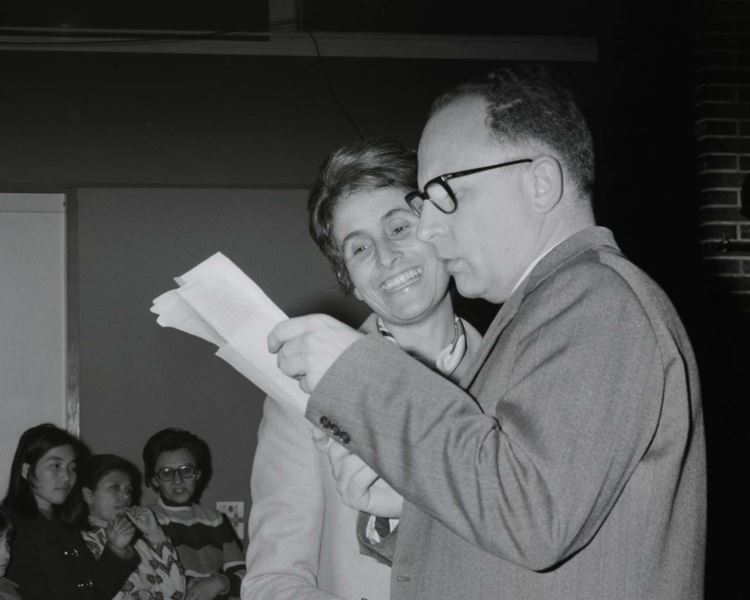
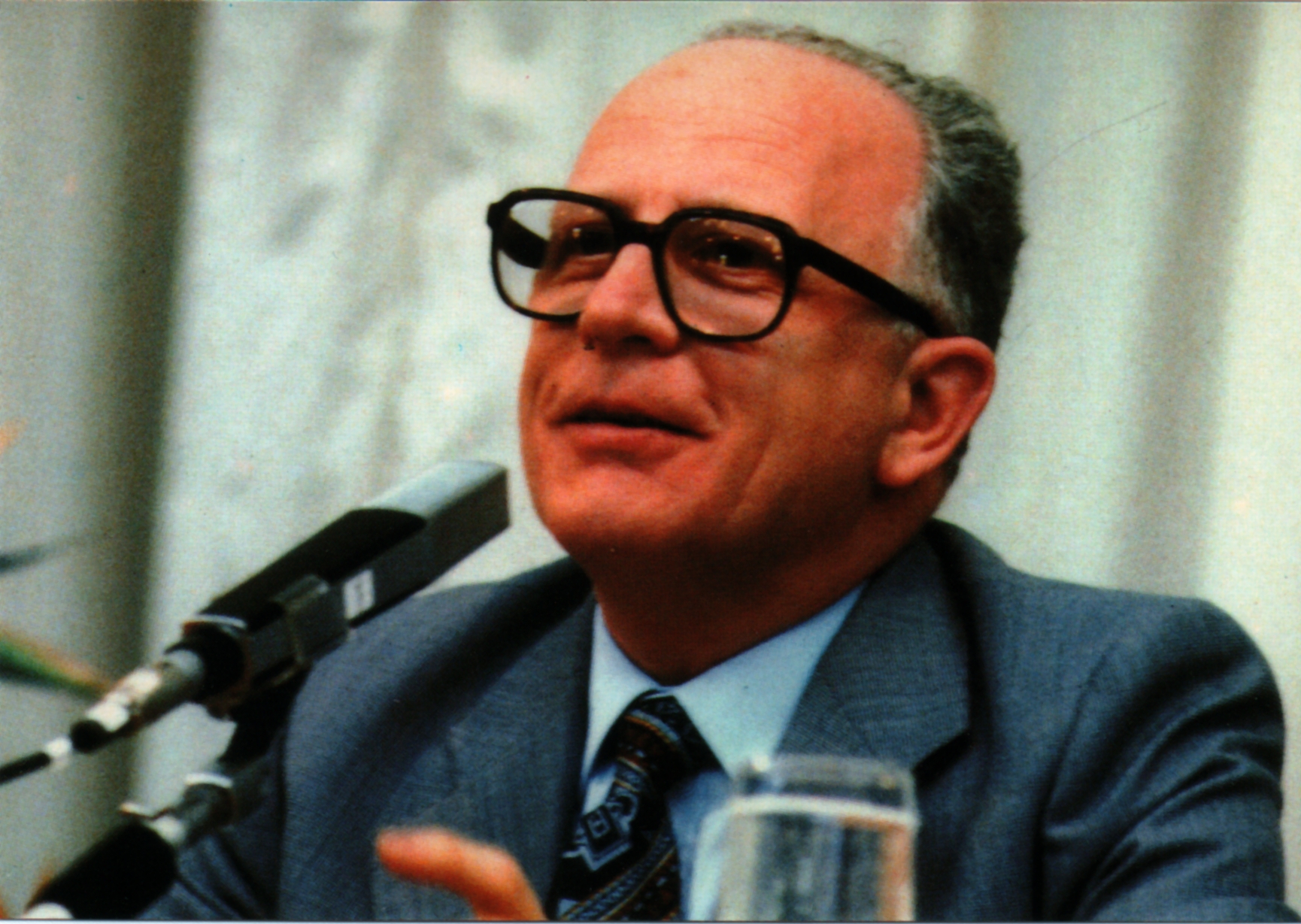 Lionello was born on October 10, 1925 in Parma, Italy. His family was wealthy and raised him to be honest and genuine. He attended high school during World War II and his attention was drawn toward civil society and social problems. In 1943 he enrolled in Law School and graduated with honors in 1947 after having done some prison time for providing help to the partisan movement. After the war he oversaw the educational and cultural activities of the Italian Catholic University Students, as well as the political activities of the Christian Democrats. He served the poor in the Saint Vincent de Paul Society, but feared becoming bourgeois. He joined in an initiative for young people who wanted to deepen their spiritual lives in the light of the Gospel. There he came to know Chiara Lubich‘s spirituality of unity and, in January 1950, Ginetta Calliari, one of the first focolarine. He recalls: “She spoke rather simply, but with quite a bit of conviction. […] The Christianity she was describing seemed so fascinating and fresh that it felt like I was hearing for the first time what Christianity was all about.” This spiritual growth was followed by professional growth becoming Italy’s youngest magistrate. In 1953 he attended the summer Mariapolis where he was immersed in the spirituality of unity. He met Chiara Lubich, Pasquale Foresi and Igino Giordani. Those days would mark his life forever. He remembers them in this way: “That community even though small had a certain completeness of its own: there were consecrated virgins and married couples, people that were not lacking in defects and naivetey. It was an organism into which the Lord had deposited a light, a law, a treasure that was destined to spread to the whole world.” At that Mariapolis he decided to consecrate his life to God in a focolare community. In 1961 he caused a bit of a stir when he left his profession (in the meantime he had been appointed Deputy Prosecutor of the Parma Judiciary) and dedicated himself completely to the Focolare. The weekly newspaper published an article on this Magistrate who had “given up the toga for a Bible.” In 1962 he was awarded the Premio della bontà (Goodness Award) by the Emilia Region of North Italy.
Lionello was born on October 10, 1925 in Parma, Italy. His family was wealthy and raised him to be honest and genuine. He attended high school during World War II and his attention was drawn toward civil society and social problems. In 1943 he enrolled in Law School and graduated with honors in 1947 after having done some prison time for providing help to the partisan movement. After the war he oversaw the educational and cultural activities of the Italian Catholic University Students, as well as the political activities of the Christian Democrats. He served the poor in the Saint Vincent de Paul Society, but feared becoming bourgeois. He joined in an initiative for young people who wanted to deepen their spiritual lives in the light of the Gospel. There he came to know Chiara Lubich‘s spirituality of unity and, in January 1950, Ginetta Calliari, one of the first focolarine. He recalls: “She spoke rather simply, but with quite a bit of conviction. […] The Christianity she was describing seemed so fascinating and fresh that it felt like I was hearing for the first time what Christianity was all about.” This spiritual growth was followed by professional growth becoming Italy’s youngest magistrate. In 1953 he attended the summer Mariapolis where he was immersed in the spirituality of unity. He met Chiara Lubich, Pasquale Foresi and Igino Giordani. Those days would mark his life forever. He remembers them in this way: “That community even though small had a certain completeness of its own: there were consecrated virgins and married couples, people that were not lacking in defects and naivetey. It was an organism into which the Lord had deposited a light, a law, a treasure that was destined to spread to the whole world.” At that Mariapolis he decided to consecrate his life to God in a focolare community. In 1961 he caused a bit of a stir when he left his profession (in the meantime he had been appointed Deputy Prosecutor of the Parma Judiciary) and dedicated himself completely to the Focolare. The weekly newspaper published an article on this Magistrate who had “given up the toga for a Bible.” In 1962 he was awarded the Premio della bontà (Goodness Award) by the Emilia Region of North Italy.
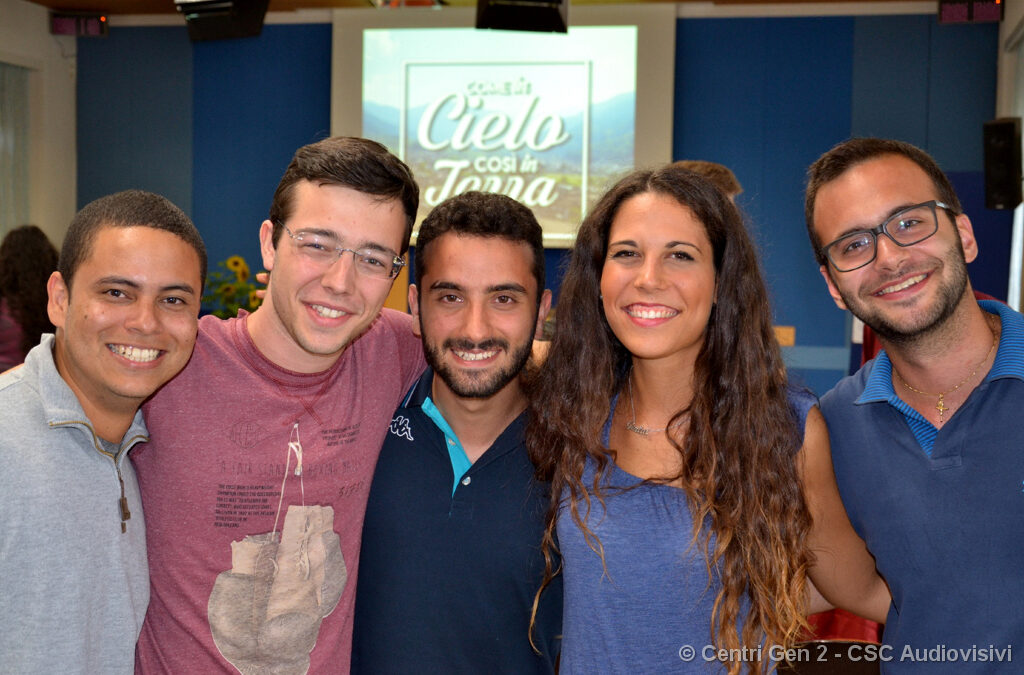
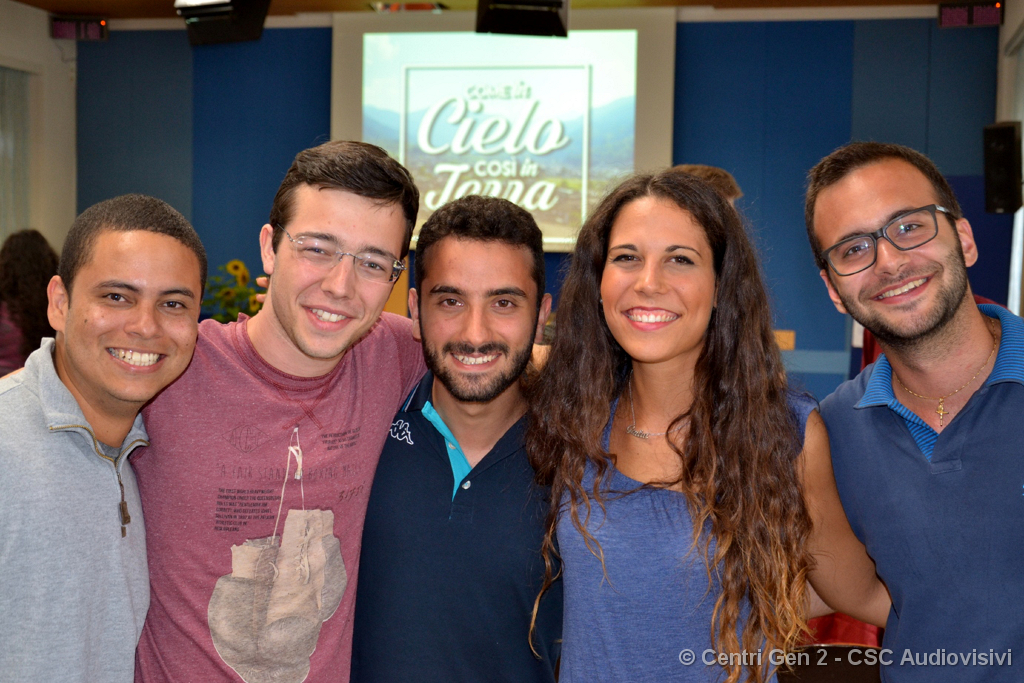 The XV General Assembly of the Synod of Bishops, to be held in October 2018, will focus on “Young people, the faith and discerment of vocation”. This decision of Pope Francis arouses joy and interest even in the Focolare Movement, especially in its branches for young members. The new generations have always been essential to the life of the Movement, in reciprocity with adult members, who accompany the young ones also in discerning their life goals. Here are some first impressions shared by young members of the Focolare in reaction to the news: “This is good news and it is also a response. The choice corresponds to the need. We already try to live our vocation in a bond with our faith, and not merely as a choice. It is time that these two realities are unified in our lives. We are so happy that the Pope has thought of us!”. (Gloria, Uganda) “Great news. If young people are not offered a good environment in today’s Church, tomorrow’s Church will lack good culture. I think Pope Francis wants to leave the Church in good hands. We need good ideas about living the vocation, not just about future choices: getting married, becoming a priest, a religious, a focolarino….In my Focolare formation I have learnt to consider the vocation as an anwer to a call that has to be lived also presently, right away. I hope that the Synod will also focus on this aspect so that the Church will be in good hands”. (Ryan, USA) “It’s a surprise! I am sure the Pope knows how to get to all young people. Many of those who no longer participate in the life Church, have shown great interest in his encyclical on the environment. I consider this synod as a great opportunity. It will be fantastic if it reaches everyone”. (Amanda, Brazil) “What I have learnt from the Catholic Church in the State where I grew up differs in certain aspects from its teaching in another State. Ideas vary even though the same material, as for example Youcat, is used. Globalization and social media put us in contact even with what the Church teaches in other parts of the world. Differences in approach on important issues can cause confusion in the absense of a clear voice.The Pope and the universal Church have a very important role in this, while they take into consideration the different cultures. I think the Synod offers excellent prospects”. (Aileen, India) “Young people are getting to know more about Church problems, especially about hot issues: scandals, social problems, Church and politics. In Peru, for example, such issues cause further distance between the position of the clergy and the reality of youth. The news of the Synod fills me with hope: the contribution and the ideas of the youth,using the media and the social networks in a transparent and convergent manner, can show a more human face of the Church.” (Jorge, Peru) “I grew up in the parish, and I think that the theme on vocation and youth should have been addressed years ago. Today we are in the midst of a crisis of vocations: family, religious life, as citizens, etc. So I say: Well done for chosing this theme”. (Damián, Argentina) “World Youth Days have shown the Church’s openness towards youth. Giving priority to youth shows that Pope Francis now wants to pass from words to deeds; even because we have to be the ones to find solutions for world problems. Sometimes one tends to think that we are unable to address problems, but together with mature and experienced persons we do arrive to solutions. It seems as if the Pope is telling us: you are ready for this challenge”. (Jorge, El Salvador) “Who knows what will really happen during the Synod! It would be great if some young people would actually be present. I think we all wish to have someone voicing us in this Synod”. (Jose Luis, Brazil) The young people of the Focolare Movement are also pleased because the Synod will take place just after the Genfest, when young people from the five continents will be gather in Manila, in July 2018. “This is a marvellous coincidence. We will be in the Philippines, in a continent with so many young people and to whom the Pope gives much attention. This time of preparation will help us understand how we can contribute towards the Synod”. (Jose Luis, Colombia) Source: Press releases (OFFICIAL INTERNATIONAL WEBSITE)
The XV General Assembly of the Synod of Bishops, to be held in October 2018, will focus on “Young people, the faith and discerment of vocation”. This decision of Pope Francis arouses joy and interest even in the Focolare Movement, especially in its branches for young members. The new generations have always been essential to the life of the Movement, in reciprocity with adult members, who accompany the young ones also in discerning their life goals. Here are some first impressions shared by young members of the Focolare in reaction to the news: “This is good news and it is also a response. The choice corresponds to the need. We already try to live our vocation in a bond with our faith, and not merely as a choice. It is time that these two realities are unified in our lives. We are so happy that the Pope has thought of us!”. (Gloria, Uganda) “Great news. If young people are not offered a good environment in today’s Church, tomorrow’s Church will lack good culture. I think Pope Francis wants to leave the Church in good hands. We need good ideas about living the vocation, not just about future choices: getting married, becoming a priest, a religious, a focolarino….In my Focolare formation I have learnt to consider the vocation as an anwer to a call that has to be lived also presently, right away. I hope that the Synod will also focus on this aspect so that the Church will be in good hands”. (Ryan, USA) “It’s a surprise! I am sure the Pope knows how to get to all young people. Many of those who no longer participate in the life Church, have shown great interest in his encyclical on the environment. I consider this synod as a great opportunity. It will be fantastic if it reaches everyone”. (Amanda, Brazil) “What I have learnt from the Catholic Church in the State where I grew up differs in certain aspects from its teaching in another State. Ideas vary even though the same material, as for example Youcat, is used. Globalization and social media put us in contact even with what the Church teaches in other parts of the world. Differences in approach on important issues can cause confusion in the absense of a clear voice.The Pope and the universal Church have a very important role in this, while they take into consideration the different cultures. I think the Synod offers excellent prospects”. (Aileen, India) “Young people are getting to know more about Church problems, especially about hot issues: scandals, social problems, Church and politics. In Peru, for example, such issues cause further distance between the position of the clergy and the reality of youth. The news of the Synod fills me with hope: the contribution and the ideas of the youth,using the media and the social networks in a transparent and convergent manner, can show a more human face of the Church.” (Jorge, Peru) “I grew up in the parish, and I think that the theme on vocation and youth should have been addressed years ago. Today we are in the midst of a crisis of vocations: family, religious life, as citizens, etc. So I say: Well done for chosing this theme”. (Damián, Argentina) “World Youth Days have shown the Church’s openness towards youth. Giving priority to youth shows that Pope Francis now wants to pass from words to deeds; even because we have to be the ones to find solutions for world problems. Sometimes one tends to think that we are unable to address problems, but together with mature and experienced persons we do arrive to solutions. It seems as if the Pope is telling us: you are ready for this challenge”. (Jorge, El Salvador) “Who knows what will really happen during the Synod! It would be great if some young people would actually be present. I think we all wish to have someone voicing us in this Synod”. (Jose Luis, Brazil) The young people of the Focolare Movement are also pleased because the Synod will take place just after the Genfest, when young people from the five continents will be gather in Manila, in July 2018. “This is a marvellous coincidence. We will be in the Philippines, in a continent with so many young people and to whom the Pope gives much attention. This time of preparation will help us understand how we can contribute towards the Synod”. (Jose Luis, Colombia) Source: Press releases (OFFICIAL INTERNATIONAL WEBSITE)
For more information about the inauguration of Academic Year 2016/17, and to follow the live streaming of the event, visit official website: www.iu-sophia.org Official invitation (Italian)
The congress, which takes place every three years, will this year include the 50th anniversary celebrations of the Gen Movement, the “new generation” of the Focolare Movement. In 1966, Chiara Lubich launched the “Revolution of Love” to the young people who were part of the Focolare. She explained that this meant aiming towards the fulfillment of Jesus’ testament “May they all be one”. Thousands of young people responded to this appeal and the Gen Movement was born. It spread throughout the world with members of every race, creed and social backgrounds. It also has the following of many young people who have no religious belief.
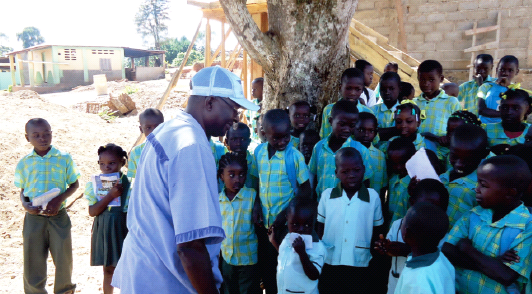
 Our Adoptions at a Distance Project contact in Haiti, Wilfrid Joachim has informed us that in Mont-Organisé, a rural region in the Ouanaminthe district, in the North-Eastern part of Haiti, where New Families have many children sponsored by the project, that “while thankfully there are no victims due to Hurricane Matthew there is widespread devastation. In particular many farms with stables have been damaged extensively and so there are grave consequences for the livelihood of the rural population which thrives on agriculture and the breeding of livestock. (Source: AFN) The coordinated appeal for humanitarian assistance has been launched and contributions can be made to the following accounts: CAUSE: Emergency Haiti
Our Adoptions at a Distance Project contact in Haiti, Wilfrid Joachim has informed us that in Mont-Organisé, a rural region in the Ouanaminthe district, in the North-Eastern part of Haiti, where New Families have many children sponsored by the project, that “while thankfully there are no victims due to Hurricane Matthew there is widespread devastation. In particular many farms with stables have been damaged extensively and so there are grave consequences for the livelihood of the rural population which thrives on agriculture and the breeding of livestock. (Source: AFN) The coordinated appeal for humanitarian assistance has been launched and contributions can be made to the following accounts: CAUSE: Emergency Haiti
| Azione per un Mondo Unito ONLUS (AMU) | Azione per Famiglie Nuove ONLUS (AFN) |
| IBAN: IT16 G050 1803 2000 0000 0120 434 at Banca Popolare Etica | IBAN: IT55 K033 5901 6001 0000 0001 060 at Banca Prossima |
| Code SWIFT/BIC: CCRTIT2184D | Code SWIFT/BIC: BCITITMX |
Contributions made to either of these accounts for the earthquake emergency cause will be jointly administrated by the Focolare’s Action for a United World (AMU) and New Families Association (AFN). There are tax benefits attached to such contributions in many countries of the European Union and in other countries.

 Lionello was born on October 10, 1925 in Parma, Italy. His family was wealthy and raised him to be honest and genuine. He attended high school during World War II and his attention was drawn toward civil society and social problems. In 1943 he enrolled in Law School and graduated with honors in 1947 after having done some prison time for providing help to the partisan movement. After the war he oversaw the educational and cultural activities of the Italian Catholic University Students, as well as the political activities of the Christian Democrats. He served the poor in the Saint Vincent de Paul Society, but feared becoming bourgeois. He joined in an initiative for young people who wanted to deepen their spiritual lives in the light of the Gospel. There he came to know Chiara Lubich‘s spirituality of unity and, in January 1950, Ginetta Calliari, one of the first focolarine. He recalls: “She spoke rather simply, but with quite a bit of conviction. […] The Christianity she was describing seemed so fascinating and fresh that it felt like I was hearing for the first time what Christianity was all about.” This spiritual growth was followed by professional growth becoming Italy’s youngest magistrate. In 1953 he attended the summer Mariapolis where he was immersed in the spirituality of unity. He met Chiara Lubich, Pasquale Foresi and Igino Giordani. Those days would mark his life forever. He remembers them in this way: “That community even though small had a certain completeness of its own: there were consecrated virgins and married couples, people that were not lacking in defects and naivetey. It was an organism into which the Lord had deposited a light, a law, a treasure that was destined to spread to the whole world.” At that Mariapolis he decided to consecrate his life to God in a focolare community. In 1961 he caused a bit of a stir when he left his profession (in the meantime he had been appointed Deputy Prosecutor of the Parma Judiciary) and dedicated himself completely to the Focolare. The weekly newspaper published an article on this Magistrate who had “given up the toga for a Bible.” In 1962 he was awarded the Premio della bontà (Goodness Award) by the Emilia Region of North Italy.
Lionello was born on October 10, 1925 in Parma, Italy. His family was wealthy and raised him to be honest and genuine. He attended high school during World War II and his attention was drawn toward civil society and social problems. In 1943 he enrolled in Law School and graduated with honors in 1947 after having done some prison time for providing help to the partisan movement. After the war he oversaw the educational and cultural activities of the Italian Catholic University Students, as well as the political activities of the Christian Democrats. He served the poor in the Saint Vincent de Paul Society, but feared becoming bourgeois. He joined in an initiative for young people who wanted to deepen their spiritual lives in the light of the Gospel. There he came to know Chiara Lubich‘s spirituality of unity and, in January 1950, Ginetta Calliari, one of the first focolarine. He recalls: “She spoke rather simply, but with quite a bit of conviction. […] The Christianity she was describing seemed so fascinating and fresh that it felt like I was hearing for the first time what Christianity was all about.” This spiritual growth was followed by professional growth becoming Italy’s youngest magistrate. In 1953 he attended the summer Mariapolis where he was immersed in the spirituality of unity. He met Chiara Lubich, Pasquale Foresi and Igino Giordani. Those days would mark his life forever. He remembers them in this way: “That community even though small had a certain completeness of its own: there were consecrated virgins and married couples, people that were not lacking in defects and naivetey. It was an organism into which the Lord had deposited a light, a law, a treasure that was destined to spread to the whole world.” At that Mariapolis he decided to consecrate his life to God in a focolare community. In 1961 he caused a bit of a stir when he left his profession (in the meantime he had been appointed Deputy Prosecutor of the Parma Judiciary) and dedicated himself completely to the Focolare. The weekly newspaper published an article on this Magistrate who had “given up the toga for a Bible.” In 1962 he was awarded the Premio della bontà (Goodness Award) by the Emilia Region of North Italy.

 “We’ve known Khalid for more than ten years. One day he rang our doorbell to sell us something, but he mostly wanted to find a job. He had been in Italy for over a year, an illegal immigrant with nowhere to live. He was 24 years old and was from Morocco where he had left behind his mother, a widow with two children. A week later he came back. “I was hungry and you gave me something to eat … I was a stranger and you welcomed me” … The words of Jesus seemed to be calling out to us. In the afternoon we invited him to work in the flower garden and in the vegetable garden. In this way he was able to send a small amount of money to his mother. It was the first time he was able to help his family, and it made him happy. I got to work finding him a job, but the answer was always the same: he’s an illegal, we can’t hire him. Finally, I found him some seasonal work at an agriculture business. He worked nights an dslept with an Indian in a container: he had a hard life, but was happy. One day the telephone rang: his Indian friend told us that Khalid was not feeling well. Jesus was still calling: we went to visit him and took him to a docgtor who agreed to see him. He had a serious ear infection that needed care. We decided to take him in and let him share our son’s bedroom. Sometimes we had to wake up during the night to care for him. Our children were also quite caring towards him. The one who had given him work didn’t intend to obtain legal documents for him. We had become the last hope he could hold on to. The Lord asked us for an even more radical act of love. So we decided to hire Khalid as a domestic, and later the idea came of taking him and letting him stay at our house like another son. We let him some areas of the house for himself so that he could be independent. We respected his religious practices in preparing meals and scheduling around his prayers, especially during Ramadan. This brought our dialogue to a religious level. Our relationship became closer and closer. We spent time together in the evenings discussing our lives and his, along with our traditions. Difficulties and doubts were not lacking, but together with the help of the Focolare community that never failed to support us we found the strength to continue on. Providence was never lacking. A gentleman that we didn’t even know gave us a motorbike which we handed on to Khalid. People from the Movement provided clothing…. Then a job was found that allowed Khalid to help his family and to pay us back for some of the support we had provided for him. Around seven months later a house was left vacant where he could move with some of his friends. Then he went back to Morocco where he married. He returned to Italy with his wife, found a permanent job and is living a serene life. They had three children, two of which go to elementary school. A nice friendship was built with his wife even though she has trouble with the language. One day she wanted to show her gratitude by preparing a totally Moroccan meal at our house for us, which we enjoyed with our children. We’ve become the grandparents of their children who come to our house often! In our sharing with them we continually experience the joy of God’s presence among us.” (G.- Mantova, Italy)
“We’ve known Khalid for more than ten years. One day he rang our doorbell to sell us something, but he mostly wanted to find a job. He had been in Italy for over a year, an illegal immigrant with nowhere to live. He was 24 years old and was from Morocco where he had left behind his mother, a widow with two children. A week later he came back. “I was hungry and you gave me something to eat … I was a stranger and you welcomed me” … The words of Jesus seemed to be calling out to us. In the afternoon we invited him to work in the flower garden and in the vegetable garden. In this way he was able to send a small amount of money to his mother. It was the first time he was able to help his family, and it made him happy. I got to work finding him a job, but the answer was always the same: he’s an illegal, we can’t hire him. Finally, I found him some seasonal work at an agriculture business. He worked nights an dslept with an Indian in a container: he had a hard life, but was happy. One day the telephone rang: his Indian friend told us that Khalid was not feeling well. Jesus was still calling: we went to visit him and took him to a docgtor who agreed to see him. He had a serious ear infection that needed care. We decided to take him in and let him share our son’s bedroom. Sometimes we had to wake up during the night to care for him. Our children were also quite caring towards him. The one who had given him work didn’t intend to obtain legal documents for him. We had become the last hope he could hold on to. The Lord asked us for an even more radical act of love. So we decided to hire Khalid as a domestic, and later the idea came of taking him and letting him stay at our house like another son. We let him some areas of the house for himself so that he could be independent. We respected his religious practices in preparing meals and scheduling around his prayers, especially during Ramadan. This brought our dialogue to a religious level. Our relationship became closer and closer. We spent time together in the evenings discussing our lives and his, along with our traditions. Difficulties and doubts were not lacking, but together with the help of the Focolare community that never failed to support us we found the strength to continue on. Providence was never lacking. A gentleman that we didn’t even know gave us a motorbike which we handed on to Khalid. People from the Movement provided clothing…. Then a job was found that allowed Khalid to help his family and to pay us back for some of the support we had provided for him. Around seven months later a house was left vacant where he could move with some of his friends. Then he went back to Morocco where he married. He returned to Italy with his wife, found a permanent job and is living a serene life. They had three children, two of which go to elementary school. A nice friendship was built with his wife even though she has trouble with the language. One day she wanted to show her gratitude by preparing a totally Moroccan meal at our house for us, which we enjoyed with our children. We’ve become the grandparents of their children who come to our house often! In our sharing with them we continually experience the joy of God’s presence among us.” (G.- Mantova, Italy)
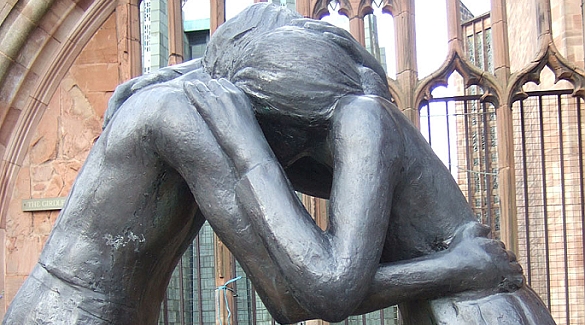

Photo: Reconciliation by Josefina de Vasconcellos at Coventry Cathedral
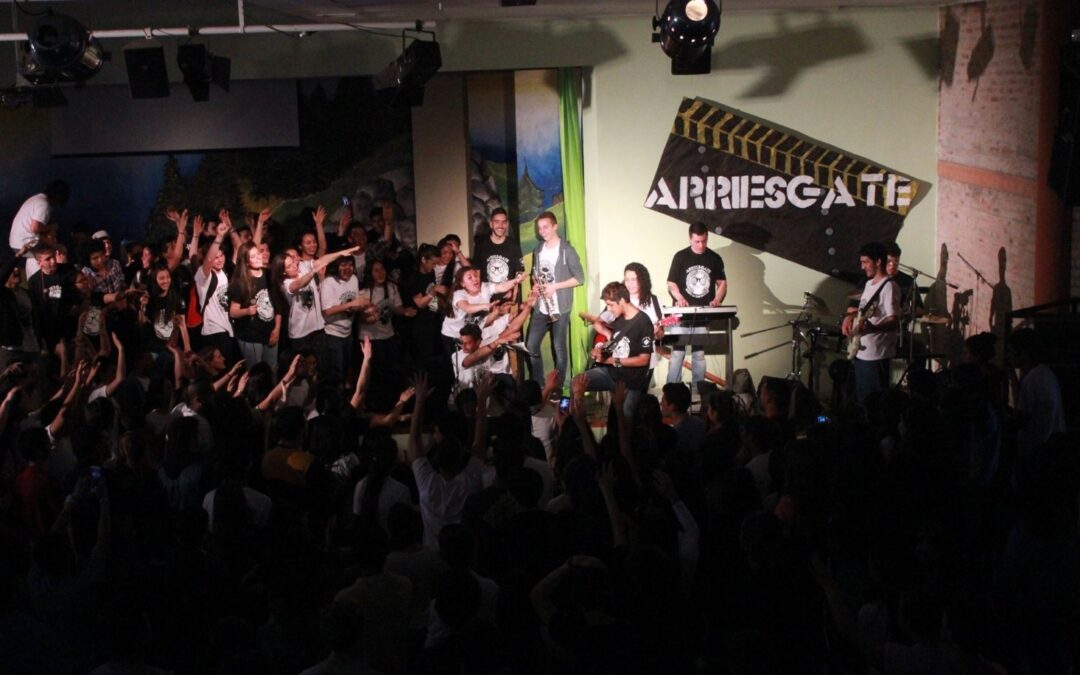
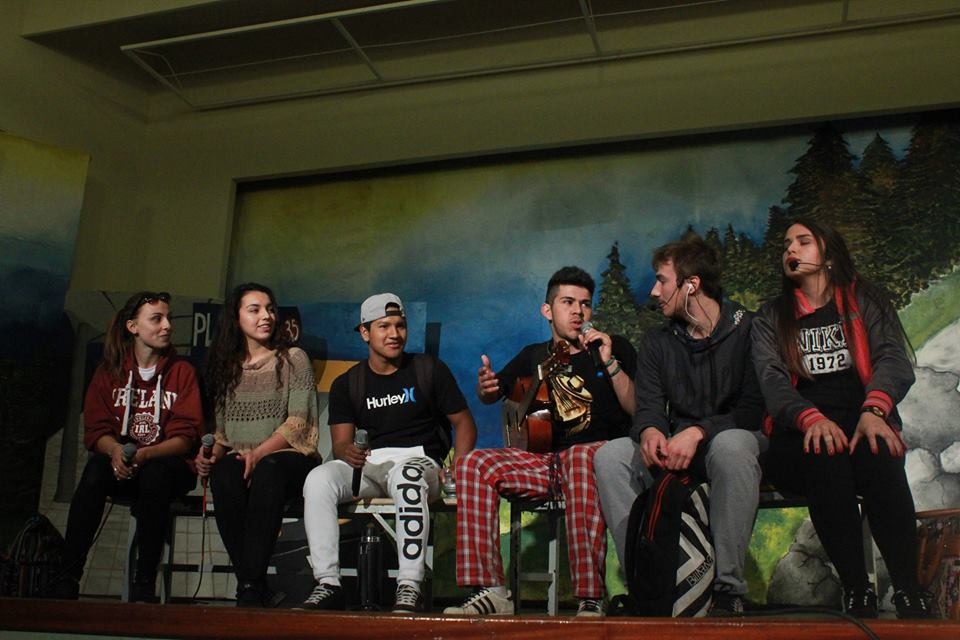 “This festival was an incredible experience! It did its job in my heart and it allowed us to enjoy a very beautiful atmosphere of real brotherhood that recharged the batteries!” “I realized that I can decide to stay inside the cave, or step out of the cave. I discovered how important it is for me to open myself and share with others what is taking place inside me.” “I saw so much vitality, joy and depth in these young people.” “It was a very nice experience. I leave with the certainty that it’s possible to live a different kind of life, that we’re not alone in the effort to be what we really want to be – and to take that risk.” These are only a few of the thoughts that were shared by the thousand young people gathered on September 24-25 for the Youthfest 2016 at the Focolare’s Permanent Mariapolis Lia in the pampas in Argentina. It has become a traditional event that is repeated every year, thanks to the creativity that young people are able to have when it comes to transmitting to their peers the ideals they live for. This year, more than a thousand young people arrived for the event from Paraguay, Uruguay, Chile, Brazil and many cities of Argentina. They were drawn by the title: “Risk it! What you’re looking for exists.” What did the title stand for? An experience of brotherhood, sharing the life of the Gospel for 48 hours, which is the main characteristic of this permanent Mariapolis of the Focolare Movement. Currently 85 young people from 17 countries live there with other families and adults. They share an experience and, through music, theatre and dance also put in common the problems that young people find themselves immersed in: family relations, school, successes and failures in life, addictions, painful moments and, above all, the encounter with a God who is near, who has a personal answer for each and everyone. But the idea didn’t end there: they tried to involve everyone in building a more united world, regardless of one’s religion or belief.
“This festival was an incredible experience! It did its job in my heart and it allowed us to enjoy a very beautiful atmosphere of real brotherhood that recharged the batteries!” “I realized that I can decide to stay inside the cave, or step out of the cave. I discovered how important it is for me to open myself and share with others what is taking place inside me.” “I saw so much vitality, joy and depth in these young people.” “It was a very nice experience. I leave with the certainty that it’s possible to live a different kind of life, that we’re not alone in the effort to be what we really want to be – and to take that risk.” These are only a few of the thoughts that were shared by the thousand young people gathered on September 24-25 for the Youthfest 2016 at the Focolare’s Permanent Mariapolis Lia in the pampas in Argentina. It has become a traditional event that is repeated every year, thanks to the creativity that young people are able to have when it comes to transmitting to their peers the ideals they live for. This year, more than a thousand young people arrived for the event from Paraguay, Uruguay, Chile, Brazil and many cities of Argentina. They were drawn by the title: “Risk it! What you’re looking for exists.” What did the title stand for? An experience of brotherhood, sharing the life of the Gospel for 48 hours, which is the main characteristic of this permanent Mariapolis of the Focolare Movement. Currently 85 young people from 17 countries live there with other families and adults. They share an experience and, through music, theatre and dance also put in common the problems that young people find themselves immersed in: family relations, school, successes and failures in life, addictions, painful moments and, above all, the encounter with a God who is near, who has a personal answer for each and everyone. But the idea didn’t end there: they tried to involve everyone in building a more united world, regardless of one’s religion or belief. 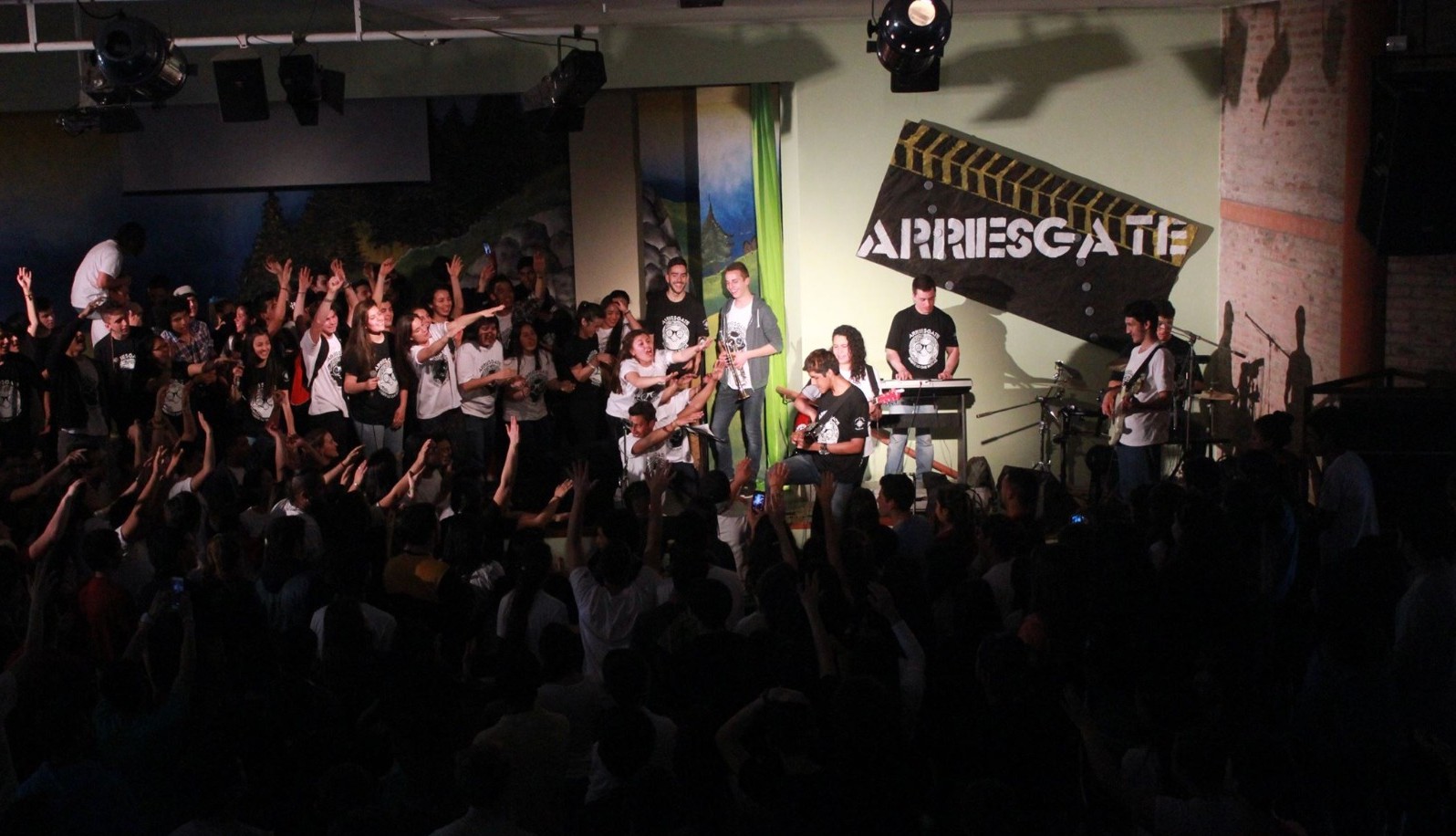 This year’s program was a combination of theatre, music and testimonies that happened on stage, beneath the large emblem that stood at the hall’s entrancel. The sign contained a one-word challenge: RISK IT! The language chosen for conveying the experiences and putting together the theatrical pieces, was direct and personally engaged everyone. The songs that were sung with such energy and captivating rhythm, helped to express this commitment in seeking something great to live for. The outdoor program – like the tour of the Mariapolis, lunchtime, strolling – made room for more sharing among the Latin American young people who had demonstrated their desire and capacity to build a more united world, a society that is for everybody. It didn’t take long for the feedback to arrive: “From Paraguay I want to thank all of you who made us live such and unforgettable day. We’re filled with emotion and prepared to accept the challenge!” “This morning, while I was on the bus going to work,” writes another person who attended the event, “the days we spent together came to mind and the desire to live today well, to give that little extra, to risk it.” Source: Southern Cone website
This year’s program was a combination of theatre, music and testimonies that happened on stage, beneath the large emblem that stood at the hall’s entrancel. The sign contained a one-word challenge: RISK IT! The language chosen for conveying the experiences and putting together the theatrical pieces, was direct and personally engaged everyone. The songs that were sung with such energy and captivating rhythm, helped to express this commitment in seeking something great to live for. The outdoor program – like the tour of the Mariapolis, lunchtime, strolling – made room for more sharing among the Latin American young people who had demonstrated their desire and capacity to build a more united world, a society that is for everybody. It didn’t take long for the feedback to arrive: “From Paraguay I want to thank all of you who made us live such and unforgettable day. We’re filled with emotion and prepared to accept the challenge!” “This morning, while I was on the bus going to work,” writes another person who attended the event, “the days we spent together came to mind and the desire to live today well, to give that little extra, to risk it.” Source: Southern Cone website
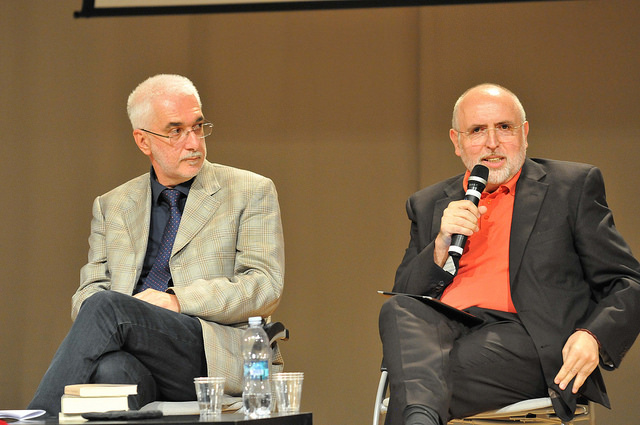
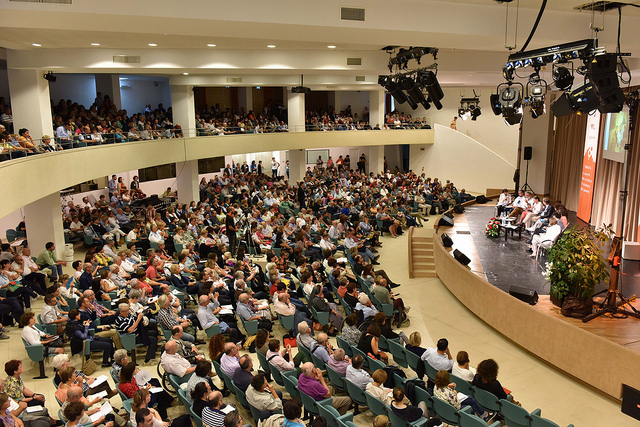 The title of this year’s edition of LoppianoLab was a challenge that was launched by the thousands of people, both in person and via live-screening, who took part in the event. While there is an Italy where the so-called absolute poor have increased by 130% in seven years, where every day its southern shores become a bridge to the hundreds of thousands of migrants fleeing poverty and wars – at the same time there is the desire to be involved: volunteers, associations, young people who want to experience what it’s like to work according to new business models that are able to meet the daily emergency. Involvement is the spirit behind those that brought their experiences and projects to LoppianoLab 2016, from the fields of economy, politics, welfare, immigration, communication, technology and instruction.
The title of this year’s edition of LoppianoLab was a challenge that was launched by the thousands of people, both in person and via live-screening, who took part in the event. While there is an Italy where the so-called absolute poor have increased by 130% in seven years, where every day its southern shores become a bridge to the hundreds of thousands of migrants fleeing poverty and wars – at the same time there is the desire to be involved: volunteers, associations, young people who want to experience what it’s like to work according to new business models that are able to meet the daily emergency. Involvement is the spirit behind those that brought their experiences and projects to LoppianoLab 2016, from the fields of economy, politics, welfare, immigration, communication, technology and instruction. 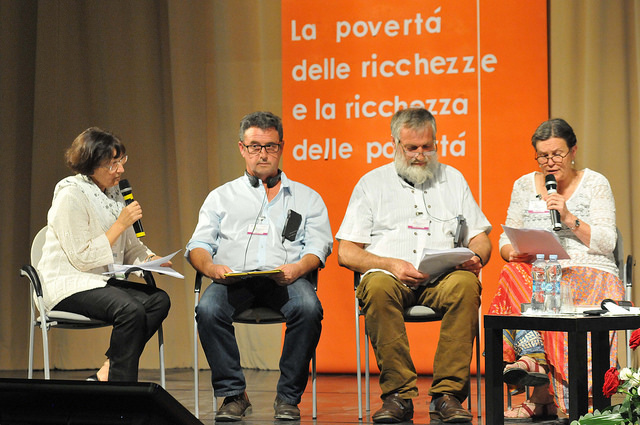 The project, which was promoted by Lionello Bonfanti Business Park, the Città Nuova Editorial Group, Sophia University Institute and the town of Loppiano, was begun in 2010 to be a national laboratory that would set in motion “those qualities that have made the Italians great, creativity and industriousness, welcome and solidarity, art and culture,” as Focolare president Maria Voce said in her greeting. Experts from the world of culture, politics and economy presented during the programme together with many other voices from civil society that presented projects from hundreds of associations, individuals and communities that form a close-knit network of people who are eager to translate ideas, projects and lifestyle into praxis. Three days, three focus groups to take on the challenges to peace: the challenge of techno-scientific innovation, development, and poverty. Two important anniversaries were also celebrated at LoppianoLab: the 25th anniversary of the Economy of Communion Project (EoC) and the 60th anniversary of the Focolare’s Città Nuova. Thirty multi-ethnic workshops, three via direct-streaming, along with workshops for children and teenagers: “Loppiano Kids and “Time to Give” with a series of meetings focused on topics related to poverty, solidarity and ecology; and “Loppiano Young” with performances and artistic exhibitions assisted by the international Gen Verde Band.
The project, which was promoted by Lionello Bonfanti Business Park, the Città Nuova Editorial Group, Sophia University Institute and the town of Loppiano, was begun in 2010 to be a national laboratory that would set in motion “those qualities that have made the Italians great, creativity and industriousness, welcome and solidarity, art and culture,” as Focolare president Maria Voce said in her greeting. Experts from the world of culture, politics and economy presented during the programme together with many other voices from civil society that presented projects from hundreds of associations, individuals and communities that form a close-knit network of people who are eager to translate ideas, projects and lifestyle into praxis. Three days, three focus groups to take on the challenges to peace: the challenge of techno-scientific innovation, development, and poverty. Two important anniversaries were also celebrated at LoppianoLab: the 25th anniversary of the Economy of Communion Project (EoC) and the 60th anniversary of the Focolare’s Città Nuova. Thirty multi-ethnic workshops, three via direct-streaming, along with workshops for children and teenagers: “Loppiano Kids and “Time to Give” with a series of meetings focused on topics related to poverty, solidarity and ecology; and “Loppiano Young” with performances and artistic exhibitions assisted by the international Gen Verde Band.  Focolare co-president Jesús Morán offered some remarks at the end of the firest day. He spoke about three challenges that the world faces today: globalization, post-globalization, post-humanism. Also the humanitarian challenge of the sub-human, a challenge that calls for a “culture of resurrection,” in order to totally assume the suffering of the person that suffers. According to Jesús Morán, the question we should ask is how much space should be given in our own lives to the least, the “abandoned ones” of today Finally, during “The Wealth of the Invisible Poverty forum,” a proposal was launched to create an observatory on poverty that would create an information system to monitor the effects of the EoC around the world and study the results and methodologies of specific significant cases. See also: Città Nuova online Loppiano Economy of Communion
Focolare co-president Jesús Morán offered some remarks at the end of the firest day. He spoke about three challenges that the world faces today: globalization, post-globalization, post-humanism. Also the humanitarian challenge of the sub-human, a challenge that calls for a “culture of resurrection,” in order to totally assume the suffering of the person that suffers. According to Jesús Morán, the question we should ask is how much space should be given in our own lives to the least, the “abandoned ones” of today Finally, during “The Wealth of the Invisible Poverty forum,” a proposal was launched to create an observatory on poverty that would create an information system to monitor the effects of the EoC around the world and study the results and methodologies of specific significant cases. See also: Città Nuova online Loppiano Economy of Communion
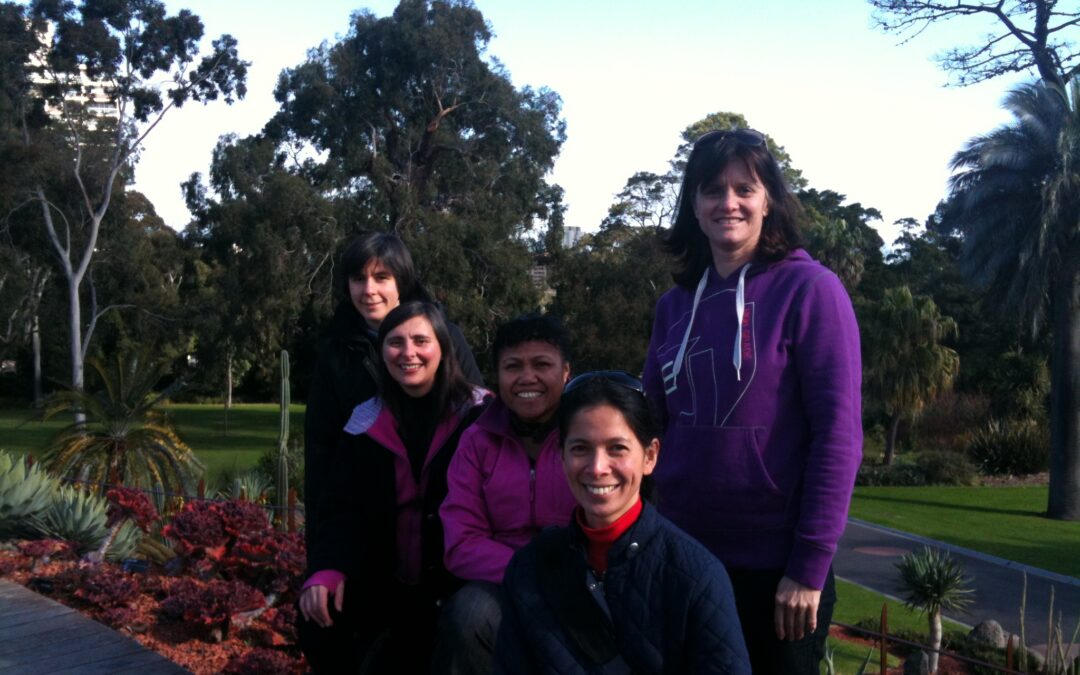
 I remember my mother saying to me, ‘Be the first to love. When you go back to work tomorrow, be the first to pick up the phone and explain that you have a hearing loss, and say can you please speak slowly and clearly.’ Up to that point I didn’t want people to know that I had a hearing loss as I wanted to be normal like everyone else. The next day at work I heard the phone ring and in that moment I heard a voice within my heart saying to me, ‘Be the first to love’. For the first time in my life, I picked up the phone and informed the caller that I had a hearing loss. Surprisingly that person was so nice and understanding that it encouraged me to always pick up the phone. My work colleagues could see that I was always answering the phone, which meant putting the gadget on and off for every phone-call. Seeing this difficulty, they started to pick up the phone before me. It was like I had thrown a pebble in the water, causing a ripple effect. I had started to love first and then the others started to love me back. It became reciprocal. I remember going home saying, ‘Mum, it worked!’ That experience was a turning point in my life. I understood that I had to accept my disability, my limitations and only in loving would I find peace and freedom. Suffering does bring you closer to God. Sometimes when I don’t hear something or get frustrated at my own limitations, I say ‘I love you’ (to Him) in this suffering, accept it and plunge myself into loving in the present moment. I wanted to give my life totally to God in the Focolare, but there was a problem as the formation course in Italy was conducted in Italian. How was I going to learn a foreign language with a hearing loss? In order to speak English well, I had to do a lot of speech therapy and my mum taught me how to lip read. But nothing is impossible to God. He gave me a special grace to be able to speak Italian, and to even lip-read in Italian! I still find it hard at times. Even with my friends at home, we’ve had to learn how to live with each other. For example, I had to tell one of them who mumbled a lot, to open her mouth a bit more so I could lip-read. It was an effort for her, but now she’s much better at it! Before my father passed away nine years ago, he left me a personal message to open after his death. He wrote to me this one phrase: ‘My night has no darkness’. This is so true, when we love there is no darkness, even with a disability.”
I remember my mother saying to me, ‘Be the first to love. When you go back to work tomorrow, be the first to pick up the phone and explain that you have a hearing loss, and say can you please speak slowly and clearly.’ Up to that point I didn’t want people to know that I had a hearing loss as I wanted to be normal like everyone else. The next day at work I heard the phone ring and in that moment I heard a voice within my heart saying to me, ‘Be the first to love’. For the first time in my life, I picked up the phone and informed the caller that I had a hearing loss. Surprisingly that person was so nice and understanding that it encouraged me to always pick up the phone. My work colleagues could see that I was always answering the phone, which meant putting the gadget on and off for every phone-call. Seeing this difficulty, they started to pick up the phone before me. It was like I had thrown a pebble in the water, causing a ripple effect. I had started to love first and then the others started to love me back. It became reciprocal. I remember going home saying, ‘Mum, it worked!’ That experience was a turning point in my life. I understood that I had to accept my disability, my limitations and only in loving would I find peace and freedom. Suffering does bring you closer to God. Sometimes when I don’t hear something or get frustrated at my own limitations, I say ‘I love you’ (to Him) in this suffering, accept it and plunge myself into loving in the present moment. I wanted to give my life totally to God in the Focolare, but there was a problem as the formation course in Italy was conducted in Italian. How was I going to learn a foreign language with a hearing loss? In order to speak English well, I had to do a lot of speech therapy and my mum taught me how to lip read. But nothing is impossible to God. He gave me a special grace to be able to speak Italian, and to even lip-read in Italian! I still find it hard at times. Even with my friends at home, we’ve had to learn how to live with each other. For example, I had to tell one of them who mumbled a lot, to open her mouth a bit more so I could lip-read. It was an effort for her, but now she’s much better at it! Before my father passed away nine years ago, he left me a personal message to open after his death. He wrote to me this one phrase: ‘My night has no darkness’. This is so true, when we love there is no darkness, even with a disability.”
Experience shared at Health Symposium “Darkness to Light – Spirituality of Unity in Chronic Disease and Disability” Focolare Movement, Australia, July 2016
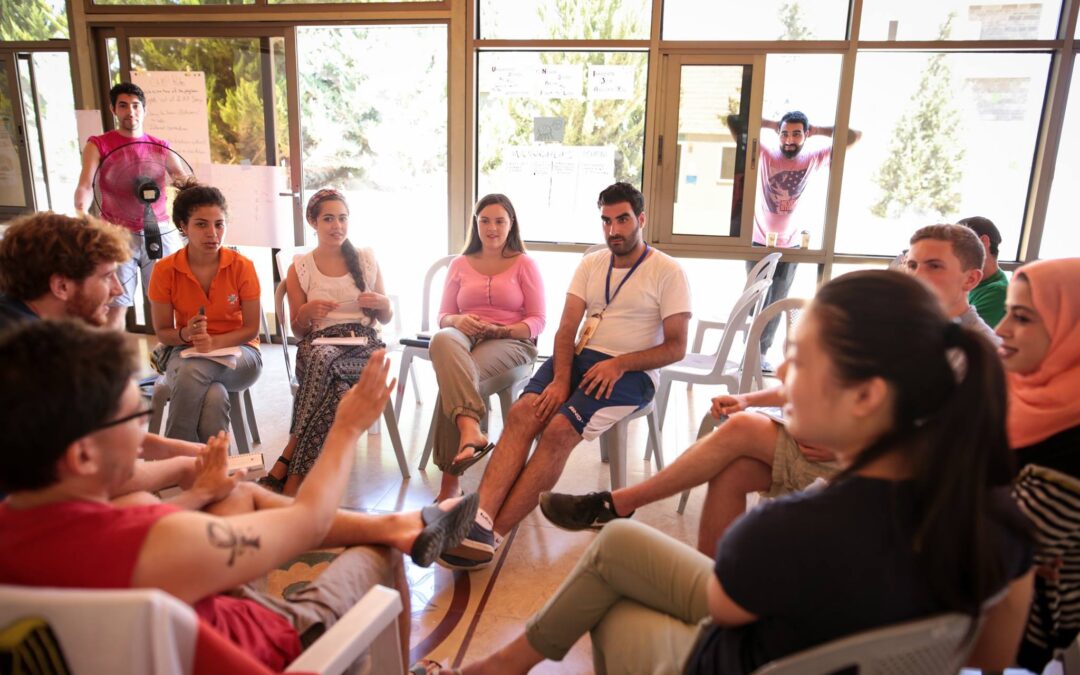
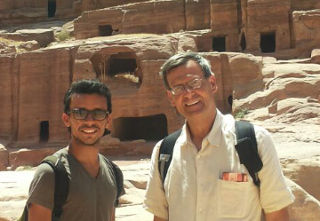
Marco Desalvo (right)
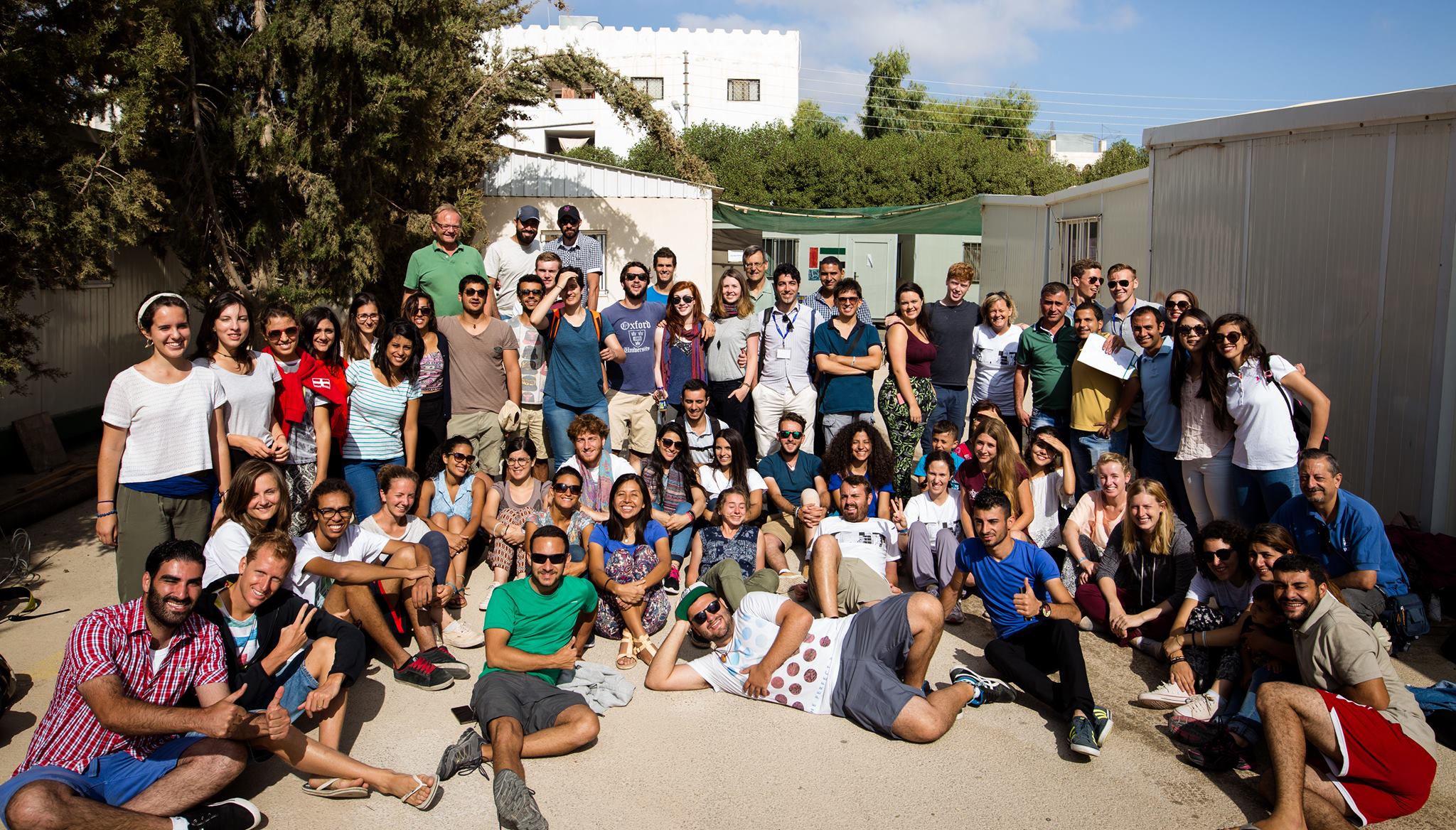 The president of New Humanity admits being very struck by the volunteers from Caritas Jordan: “Irreplaceable, precious, discreet, source of hope, of life of concrete love, medicine for everyone they meet.” Without them thousands of refugees would not have a roof over their heads and the means to survive – to find hope. Working with them we touched with our own hands the deepest meaning of the word ‘Caritas’: concrete love. Two weeks ago I was in Poland at the World Youth Day, and the message of Pope Francis to the two million young people is still fresh in my mind: ‘Don’t retire at the age of 25, [….] don’t be couch potatoes […] aim high. […] They might be able to judge you dreamers because you believe in a new humanity that does not accept hatred among peoples, that does not see borders between countries as barriers, and that preserves its own traditions without egoism and resentment. Don’t be discouraged! With your smiles and your open arms you preach hope and are a blessing for the human family.” Here in Jordan I’ve met young people who put these words in practice. Their work is certainly a small drop in front of the problems we’re facing. But with young people like them, the world will change. These days have turned us into ambassadors of the refugees, of their suffering, of a world of Peace.”
The president of New Humanity admits being very struck by the volunteers from Caritas Jordan: “Irreplaceable, precious, discreet, source of hope, of life of concrete love, medicine for everyone they meet.” Without them thousands of refugees would not have a roof over their heads and the means to survive – to find hope. Working with them we touched with our own hands the deepest meaning of the word ‘Caritas’: concrete love. Two weeks ago I was in Poland at the World Youth Day, and the message of Pope Francis to the two million young people is still fresh in my mind: ‘Don’t retire at the age of 25, [….] don’t be couch potatoes […] aim high. […] They might be able to judge you dreamers because you believe in a new humanity that does not accept hatred among peoples, that does not see borders between countries as barriers, and that preserves its own traditions without egoism and resentment. Don’t be discouraged! With your smiles and your open arms you preach hope and are a blessing for the human family.” Here in Jordan I’ve met young people who put these words in practice. Their work is certainly a small drop in front of the problems we’re facing. But with young people like them, the world will change. These days have turned us into ambassadors of the refugees, of their suffering, of a world of Peace.” 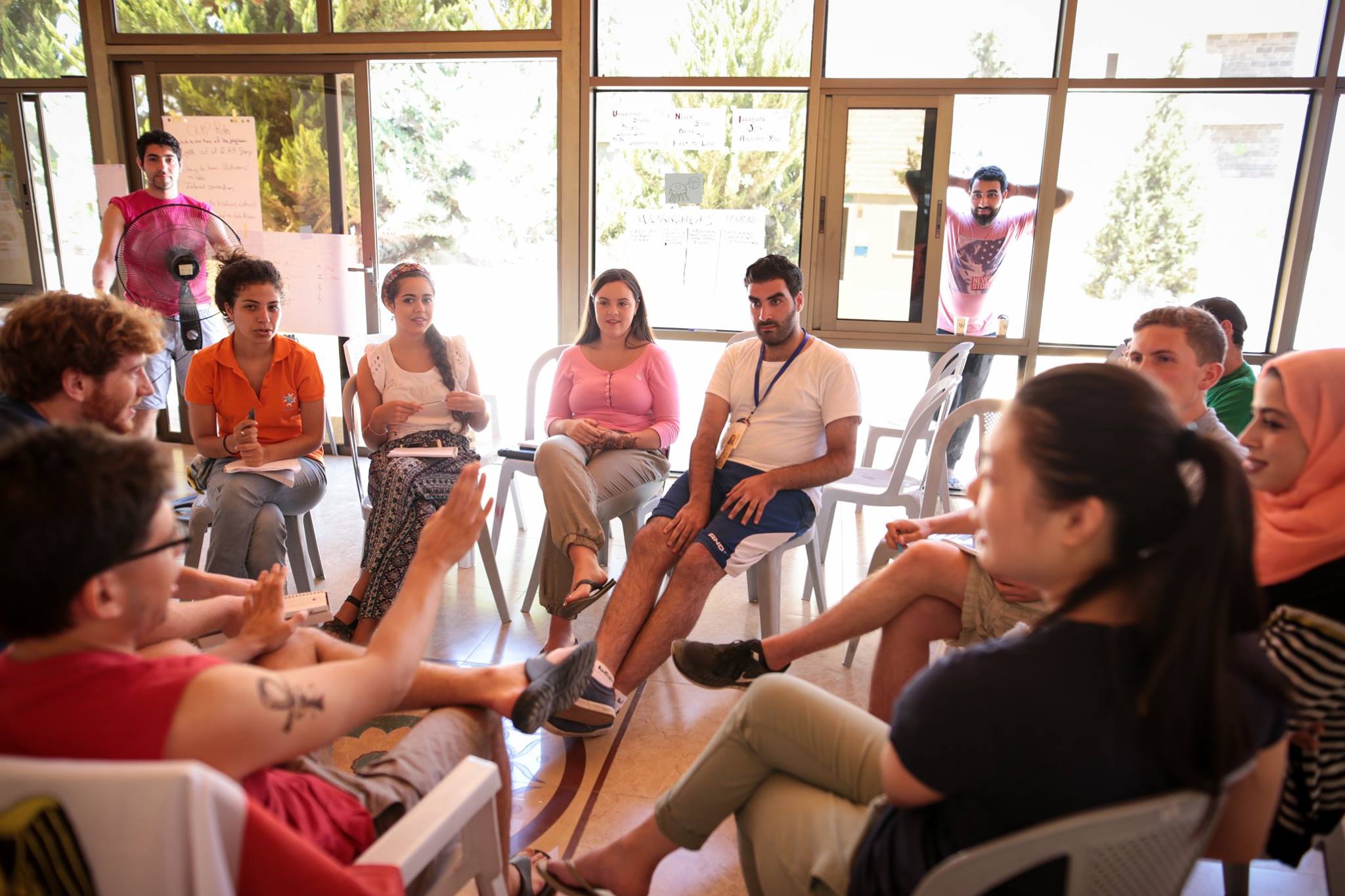 The Host Spot Project is promoted by New Humanity and other associations from nine countries, and is co-financed by the Erasmus+ programme. The objective: to spread a culture of human rights. These are young people from different backgrounds, ready to acquire the knowledge and skills to defend the right of freedom of expression and to be engaged in producing documentaries that tell the life stories of the refugees. After Jordan, the project is planning on a March 2017 training course in Germany to develop the technical skills needed to produce social documentaries. There will be the meeting with refugees in German refugee camps, and different forms of welcome will be compared. See also: Volunteerism in the refugee camps of Jordan Facebook: www.facebook.com/hostspot9/
The Host Spot Project is promoted by New Humanity and other associations from nine countries, and is co-financed by the Erasmus+ programme. The objective: to spread a culture of human rights. These are young people from different backgrounds, ready to acquire the knowledge and skills to defend the right of freedom of expression and to be engaged in producing documentaries that tell the life stories of the refugees. After Jordan, the project is planning on a March 2017 training course in Germany to develop the technical skills needed to produce social documentaries. There will be the meeting with refugees in German refugee camps, and different forms of welcome will be compared. See also: Volunteerism in the refugee camps of Jordan Facebook: www.facebook.com/hostspot9/
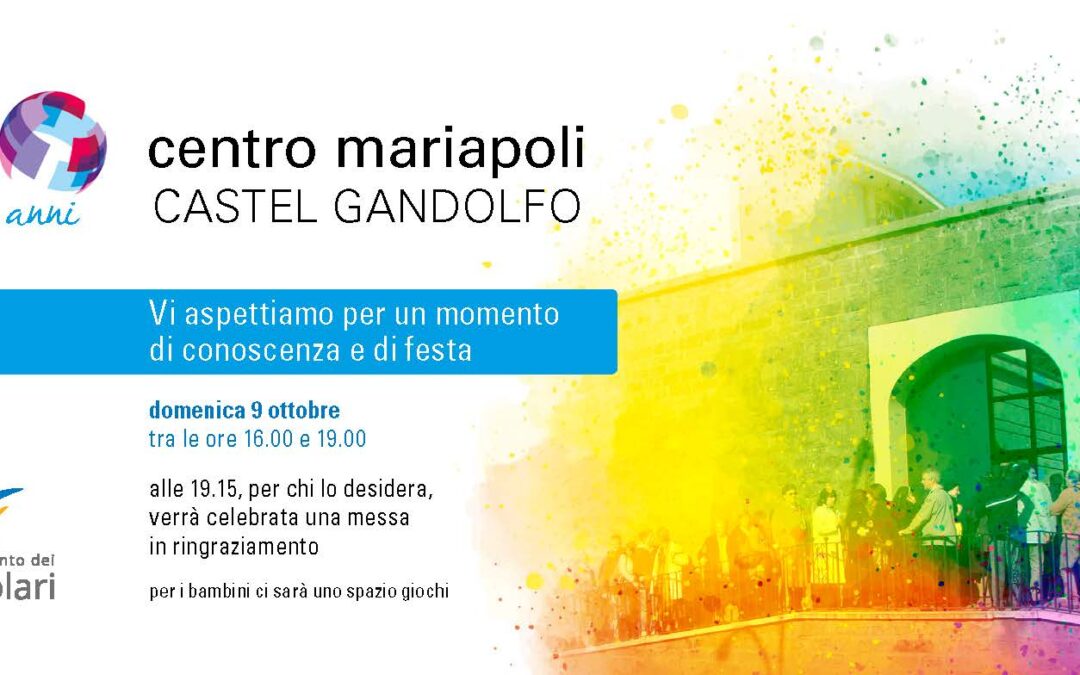
A bit of history: In 1982, John Paul II placed the Papal Audience Hall in Castel Gandolfo (Rome) at the disposition of the Focolare Movement. The refurbishment of the huge, empty building started. Through the contribution of all the members of the Movement around the world (even children), the International Mariapolis Centre was inaugurated in 1986 and has since hosted thousands of conferences. People from all over the world have attended congresses, symposiums, seminars and training courses, meetings for ecumenical and inter-religious dialogue. All these activities focussed on the one objective, that of contributing to universal brotherhood, which became tangible through living the life of the Gospel, through workshops and in-depth discussions, all of which took place in this embryonic “city of Mary”, in this “home”, as Chiara Lubich called it. Download invitation 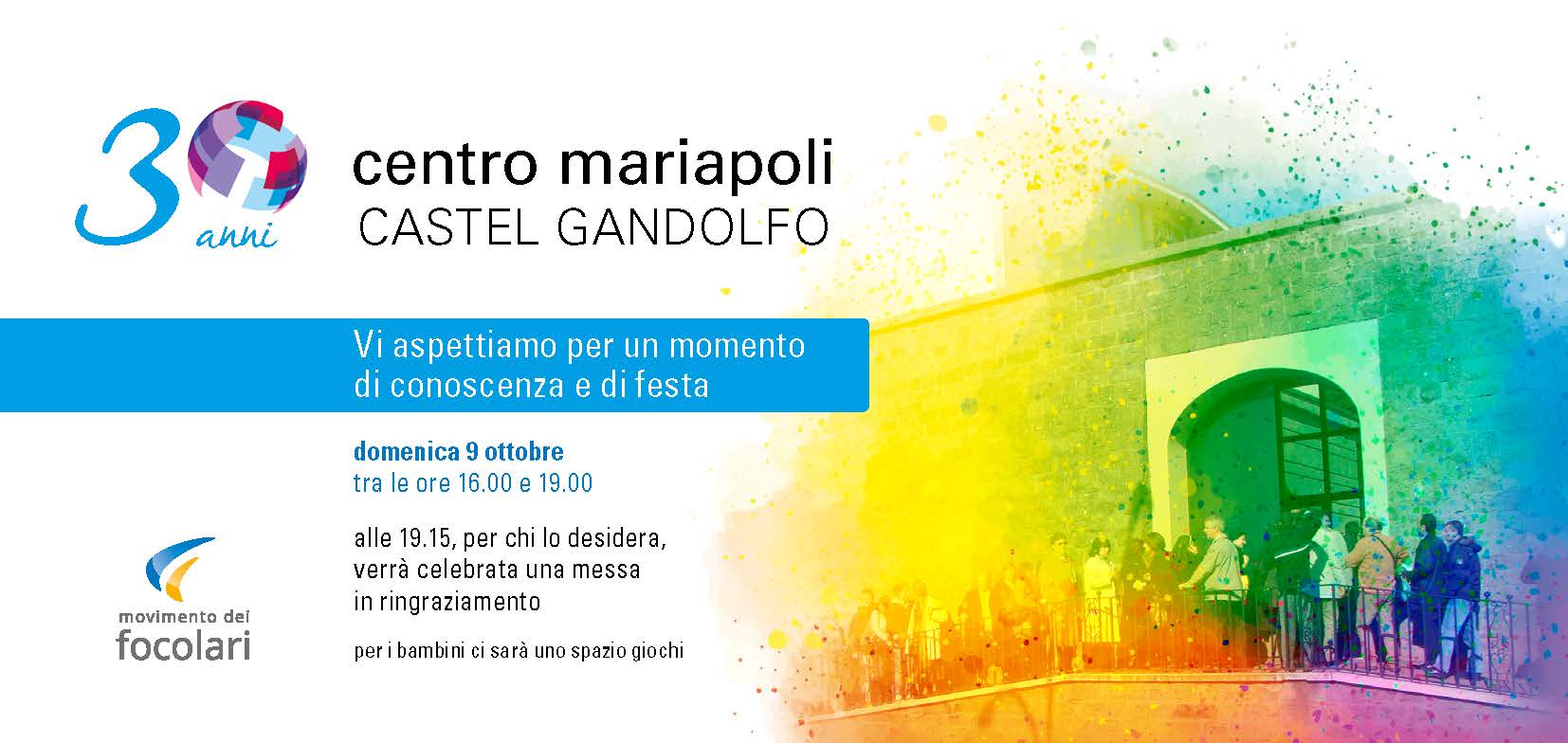
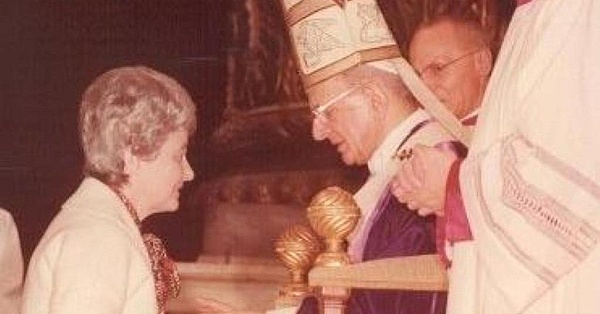
 Catholic Church leaders, representatives of the Islamic world, civil authorities, representatives of associations and the people of Brescia and neighbouring cities filled the cathedral of the Italian city on the 23rd of September, for the conference on “Paul VI, a Spiritual Portrait“. The event included the testimony of Maria Voce, President of the Focolare Movement, in a speech read on her behalf by Rosi Bertolassi. Her speech touched on three aspects of Giovanni Battista Montini’s life and work as: prophet, apostle and mediator. The President of the Focolare first of all expressed the deep gratitude that bound the Movement she represents to Blessed Paul VI, who was “…one of the gifts God wanted to make to humankind in our time.” She recalled the time when the Church was studying the emerging Movement, saying, “When he became Pope he played a key role in discerning the charism of Chiara Lubich and in making possible what, at the beginning of the sixties, still seemed” impossible,” expertly identifying juridically appropriate ways to express the specific character of this new movement in the Church.” “Therefore”, she stressed, “Because he was “imbued with the Word, we saw the figure of Giovanni Battista Montini – Paul VI – in this triple dimension of prophet, apostle and mediator.” In the prophetic dimension, Maria Voce highlighted “his ability to open new paths with courage and wisdom, to break down walls and express the renewal of the Church which his soul craved for,” Examples were Pope Paul VI’s historic embrace of peace with Patriarch Athenagoras in January 1964 in the Holy Land; or when, in 1970, through an historic decision he raised two women, St Teresa of Avila and St Catherine of Siena, to the status of Doctor of the Church – a title previously only given to men; or when, in the 1975 Holy Year, he knelt to kiss the feet of the Orthodox Metropolitan Meliton. “Paul VI was truly the Pope of dialogue. This is how Pope John Paul II described him in Concesio during his pastoral visit in 1982, emphasizing his predecessor’s ability to dialogue with the whole of humanity.” Maria Voce also emphasized his apostolic dimension saying, “In Ecclesiam Suam (…) we perceive the thought and mind of the apostle whose name he had chosen, the name of the missionary apostle and the first theologian of Christ, the one who made himself all things to all people. Pope Paul VI did not spare himself so that the announcement of the Gospel could reach all nations.” In this respect, Maria Voce recalled his apostolic journeys “that brought him closer to the peoples of the world, making the Church more one and more ‘catholic’, as Paul VI liked to emphasize, in the etymological sense of the word. Particularly significant and universal in outlook was his historic and profoundly human speech delivered at the United Nations. I am pleased to recall once more his innovative inclusion of the laity in key areas of work of the Church; his confidence in the contribution of lay people’s ideas; and his recognition, in Octogesima adveniens, of the legitimacy of a variety of political opinions while remaining faithful to Gospel principles.” Finally, his ability to be a “mediator of the One Mediator“. After recalling his surprising letter to the Red Brigade which “flowed from his soul at the painful time when his friend Honourable Aldo Moro was kidnapped” Maria Voce affirmed his role as mediator and added, “Paul VI – in the footsteps of his Master – took upon himself the anguish and torment of the world, feeling it deeply as if it were his own. He bore the sin of the world, perceiving truly the weight of it and suffering profoundly, as could sometimes be seen in his face. In that way he manifested clearly the fatherhood of God, bridging the distance between heaven and earth, healing wounds, wiping away tears, bringing peace and unity.”
Catholic Church leaders, representatives of the Islamic world, civil authorities, representatives of associations and the people of Brescia and neighbouring cities filled the cathedral of the Italian city on the 23rd of September, for the conference on “Paul VI, a Spiritual Portrait“. The event included the testimony of Maria Voce, President of the Focolare Movement, in a speech read on her behalf by Rosi Bertolassi. Her speech touched on three aspects of Giovanni Battista Montini’s life and work as: prophet, apostle and mediator. The President of the Focolare first of all expressed the deep gratitude that bound the Movement she represents to Blessed Paul VI, who was “…one of the gifts God wanted to make to humankind in our time.” She recalled the time when the Church was studying the emerging Movement, saying, “When he became Pope he played a key role in discerning the charism of Chiara Lubich and in making possible what, at the beginning of the sixties, still seemed” impossible,” expertly identifying juridically appropriate ways to express the specific character of this new movement in the Church.” “Therefore”, she stressed, “Because he was “imbued with the Word, we saw the figure of Giovanni Battista Montini – Paul VI – in this triple dimension of prophet, apostle and mediator.” In the prophetic dimension, Maria Voce highlighted “his ability to open new paths with courage and wisdom, to break down walls and express the renewal of the Church which his soul craved for,” Examples were Pope Paul VI’s historic embrace of peace with Patriarch Athenagoras in January 1964 in the Holy Land; or when, in 1970, through an historic decision he raised two women, St Teresa of Avila and St Catherine of Siena, to the status of Doctor of the Church – a title previously only given to men; or when, in the 1975 Holy Year, he knelt to kiss the feet of the Orthodox Metropolitan Meliton. “Paul VI was truly the Pope of dialogue. This is how Pope John Paul II described him in Concesio during his pastoral visit in 1982, emphasizing his predecessor’s ability to dialogue with the whole of humanity.” Maria Voce also emphasized his apostolic dimension saying, “In Ecclesiam Suam (…) we perceive the thought and mind of the apostle whose name he had chosen, the name of the missionary apostle and the first theologian of Christ, the one who made himself all things to all people. Pope Paul VI did not spare himself so that the announcement of the Gospel could reach all nations.” In this respect, Maria Voce recalled his apostolic journeys “that brought him closer to the peoples of the world, making the Church more one and more ‘catholic’, as Paul VI liked to emphasize, in the etymological sense of the word. Particularly significant and universal in outlook was his historic and profoundly human speech delivered at the United Nations. I am pleased to recall once more his innovative inclusion of the laity in key areas of work of the Church; his confidence in the contribution of lay people’s ideas; and his recognition, in Octogesima adveniens, of the legitimacy of a variety of political opinions while remaining faithful to Gospel principles.” Finally, his ability to be a “mediator of the One Mediator“. After recalling his surprising letter to the Red Brigade which “flowed from his soul at the painful time when his friend Honourable Aldo Moro was kidnapped” Maria Voce affirmed his role as mediator and added, “Paul VI – in the footsteps of his Master – took upon himself the anguish and torment of the world, feeling it deeply as if it were his own. He bore the sin of the world, perceiving truly the weight of it and suffering profoundly, as could sometimes be seen in his face. In that way he manifested clearly the fatherhood of God, bridging the distance between heaven and earth, healing wounds, wiping away tears, bringing peace and unity.”
In this competition – promoted by the “Cities for Fraternity” Association – all local administrations from any part of the world may participate. Projects and initiatives can compete if: – they institute and/or spread, principally within the local territory, but also on a national or international level, practices of universal brotherhood, according to the diverse interpretations of the meaning of such a principle; – they stimulate the citizens to commit themselves for the common good and to participate in the life of civil society, – they encourage the growth of a culture of active and inclusive citizenry. The project must be representative of a style of administration that is not occasional and always more aware of the value of the principle of universal brotherhood. On the side of the public adminitrations and other social, economic, cultural subjects, it is possible both to become candidates, and also to nominate the projects of others. All the recommendations must be sent on or before January 10, 2017 , to the office of the Chairman of the “Cities for Fraternity” Association, c/oTown Council of Castel Gandolfo, Piazza Libertà, 7 00040 Castel Gandolfo (Rome). Download fact sheet (in Italian) Info: www.cittaperlafraternita.org/
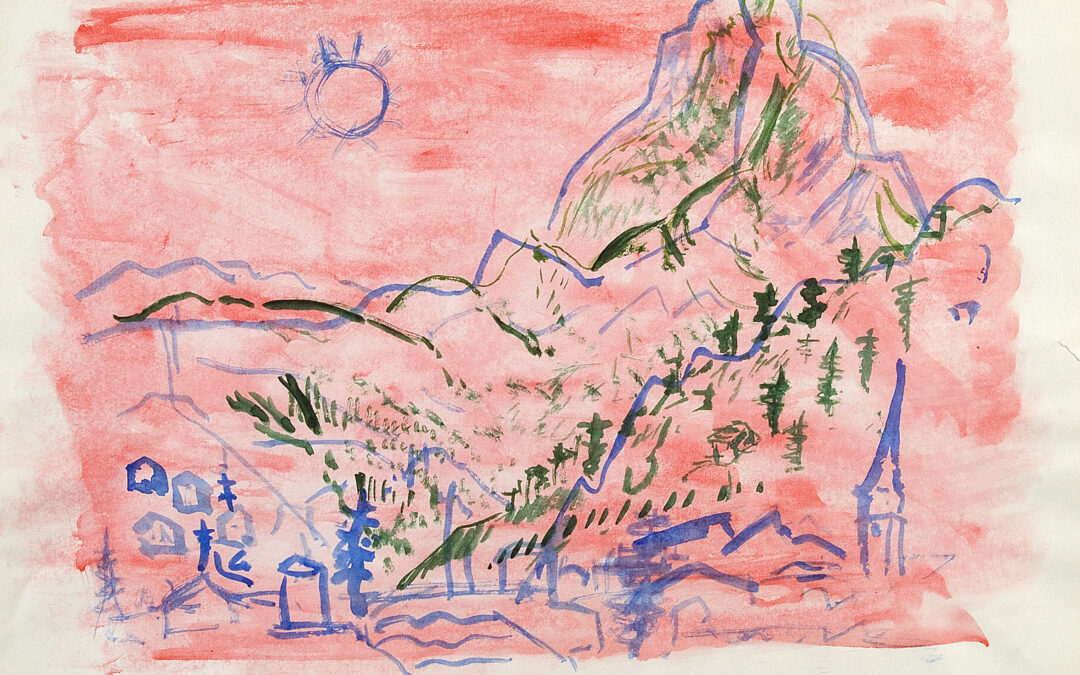
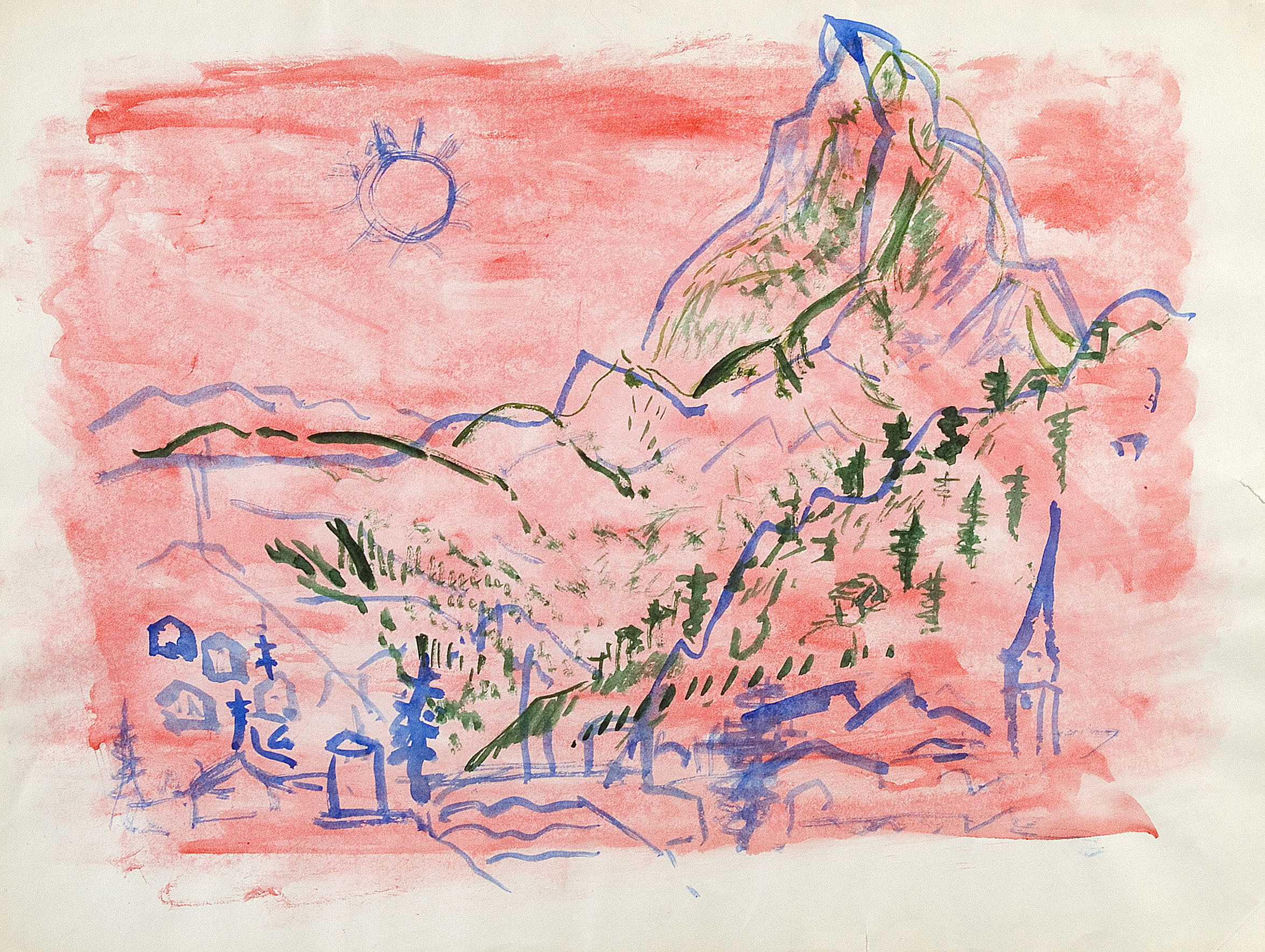
Watercolour by Klaus Hemmerle (1980 – Matterhorn mit Zermatt, Schweiz. http://www.klaus-hemmerle.de)
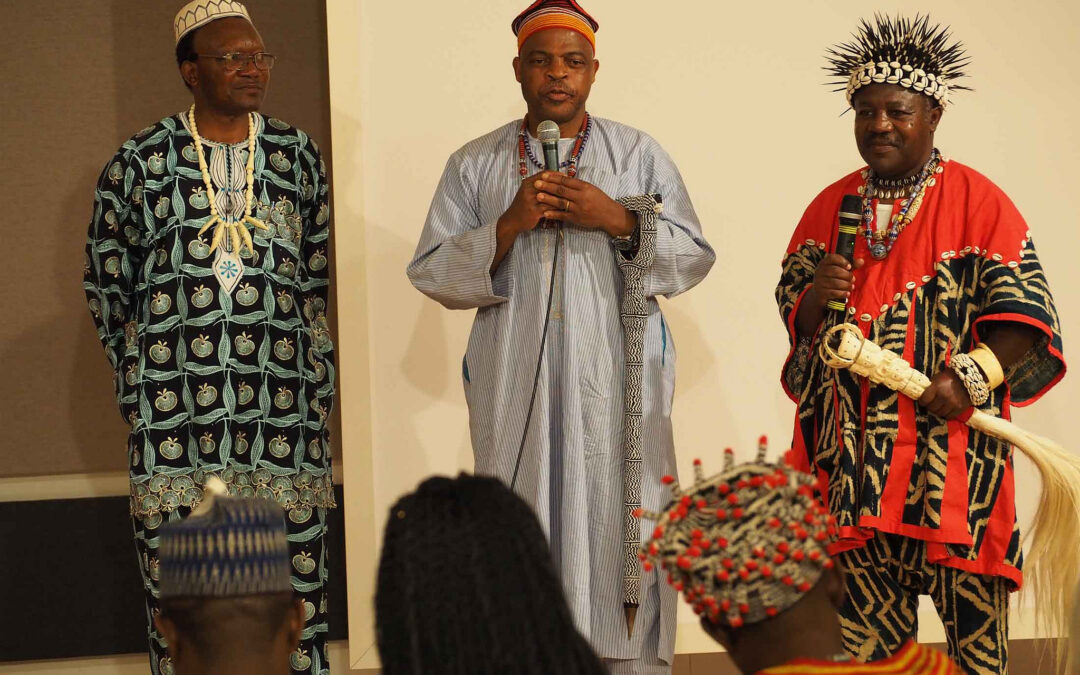
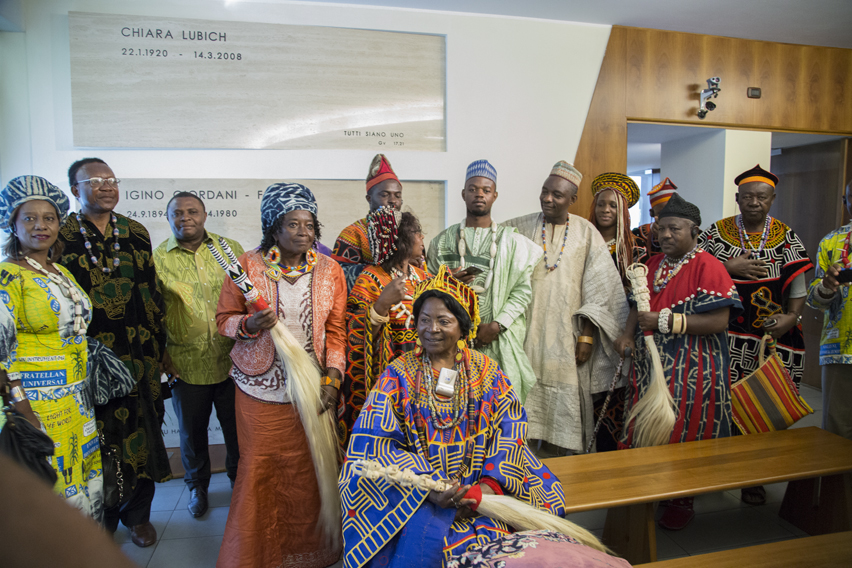
© CSC Audiovisivi – Caris Mendes
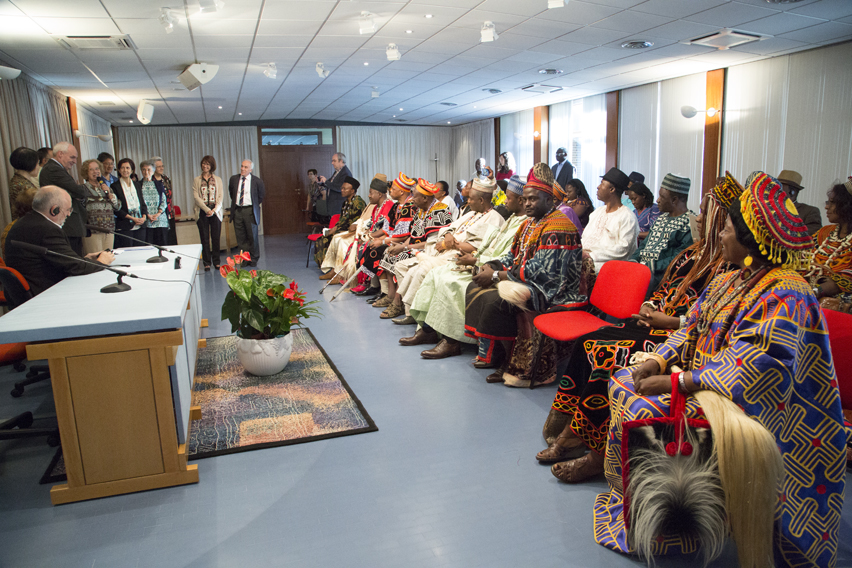
© CSC Audiovisivi – Caris Mendes
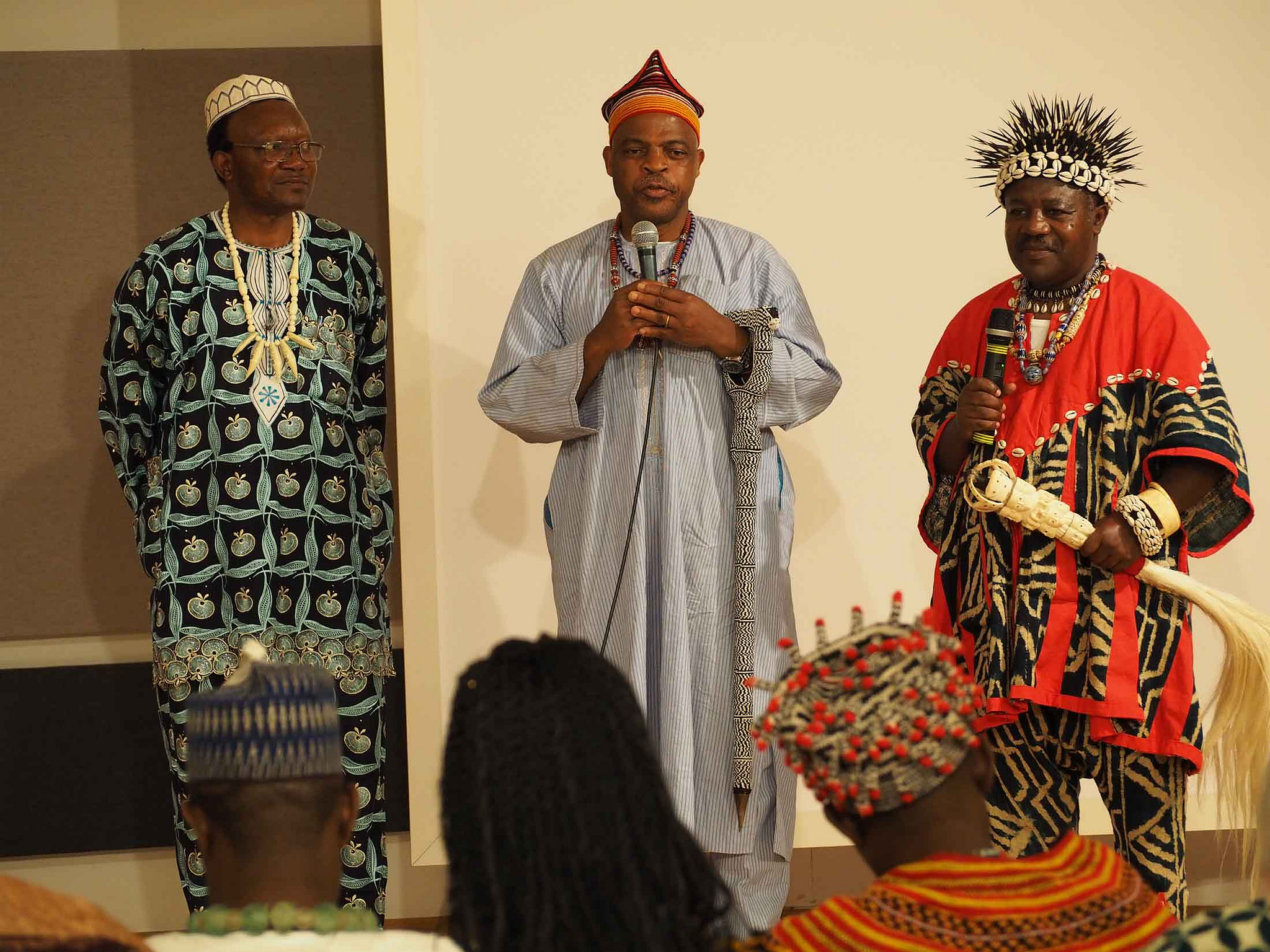
Photo Credit: SIF Loppiano
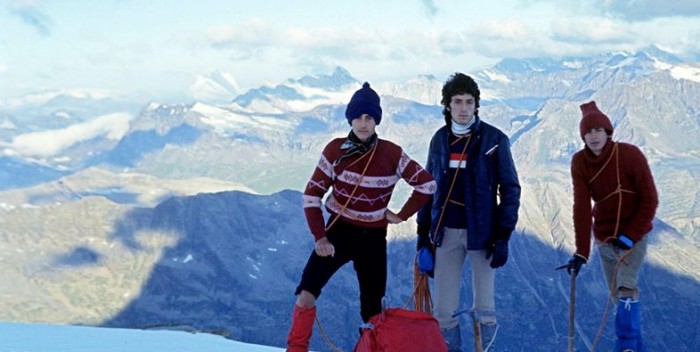

In the mountains
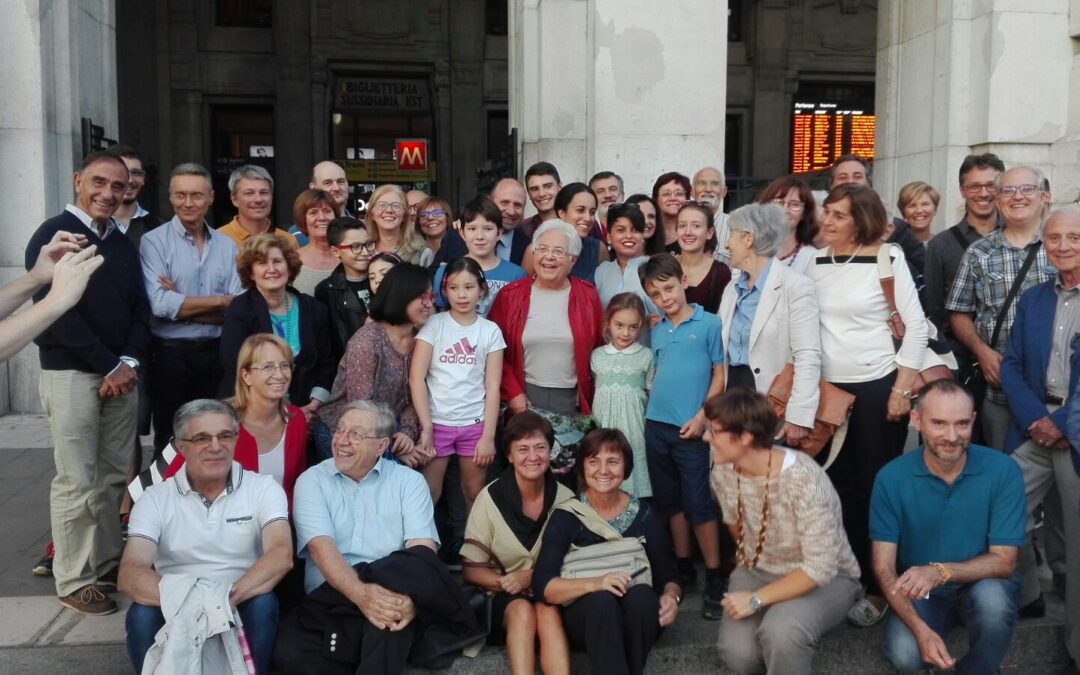
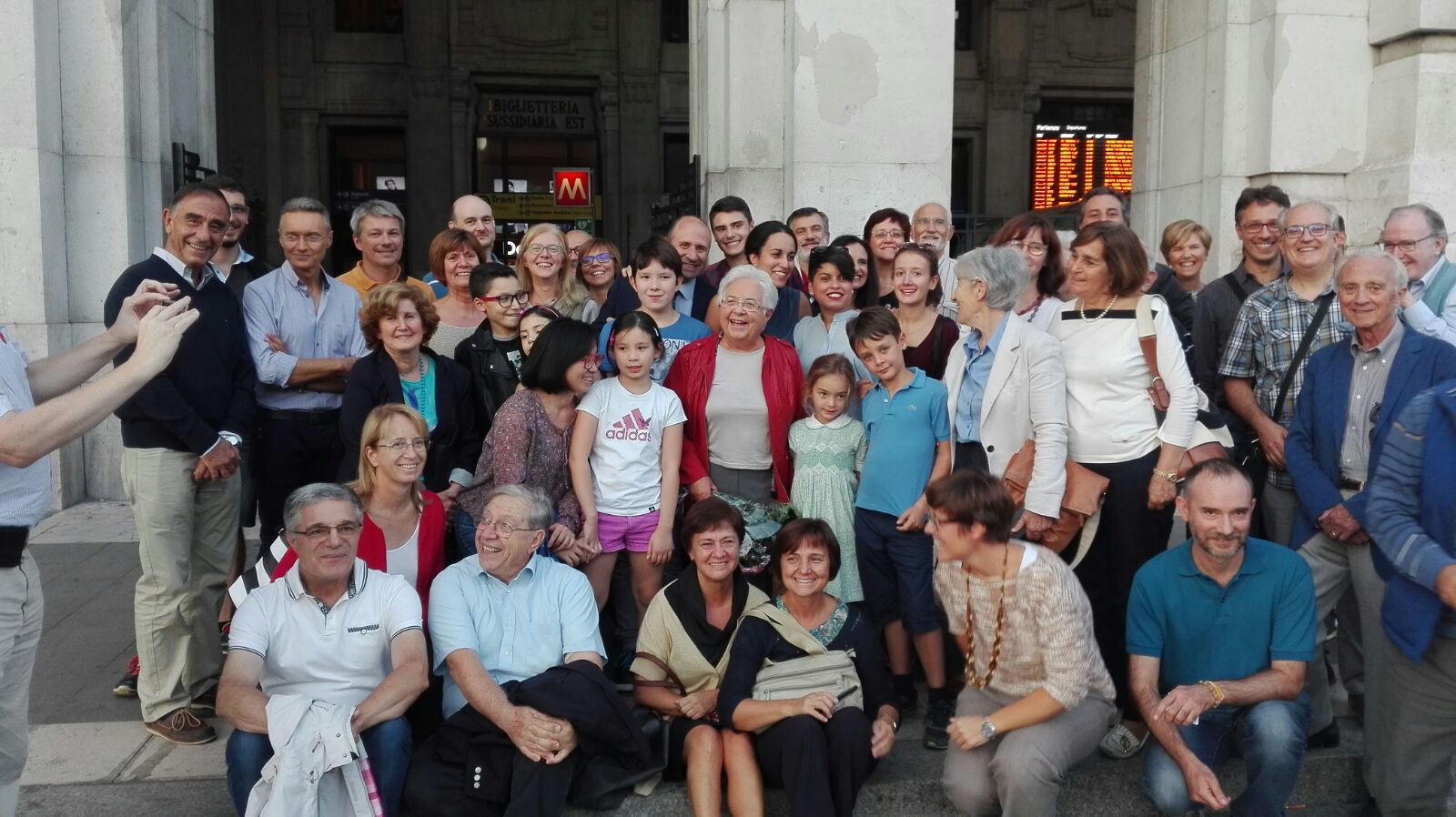
Members of the Focolare community in Milan welcomes Maria Voce.
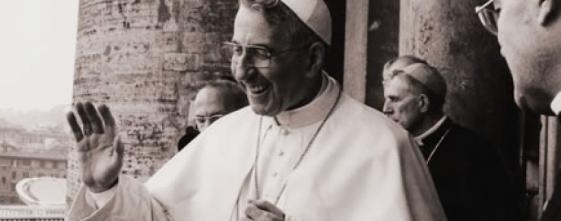
 “The “Smiling Pope,” John Paul I, rose to the chair of St. Peter on 26 August, 20 days after Pope Paul VI’s death. Though his brief pontificate lasted only a month, there was time enough for us to receive a smile from him, along with words of benediction.» This is what Chiara Lubich wrote in the book, “The Cry” (1), where she highlighted the uninterrupted rapport established with the successors of Peter, and also with Albino Luciani in the brief stretch of his pontificate. “The new pope has the gift of making himself immediately understood by all – even by children – wrote Guglielmo Boselli (2), then the director of Città Nuova. His language, like that of Jesus, is normal and straight to the point. It is this wisdom coming from the heart that gives the capacity to immediately create a spontaneous relationship: the wonderful gift of one who came from a long pastoral experience, was always in touch with the people, and did not need any difficult speeches typical of professionals of the trade. He is a man of extensive humanistic and theological culture, who has overcome the phase of those still studying Christianity in a laboratory: his words are immediately and exactly what they should be. He just has to open his mouth and there is already communication, real communication.” He was elected after a brief conclave of only 26 hours, and as they said, “an apostolate of the Council” was elected. In fact, at the audience with the cardinals on 30 August, when reference was made to the Lumen gentium 22, he broached one of the key points of the Vatican II ecclesiology. “The Bishops – he said, speaking off the cuff – have to also think of the universal Church… behind you I see your bishops, and the Conferences which in the atmosphere established by the Council, have to give strong support to the Pope… So this is true, but today it is vital that the world sees us united… Have pity for this poor new Pope, who really didn’t expect to rise to this role. Try to help him and let us try together to give the world a show of unity, even sacrificing some things at times since we have so much to lose if the world does not see us firmly united.” On 28 September, after only 33 days, came the bewildering news of his death. “John Paul I – again wrote Guglielmo Boselli (3) – maybe had the task of bringing down the last external evidences of every type of “distance” between the pope, the bishop of Rome, “president of charity” and the people who still could resist: this was by carrying out dialogue as a man among many in a church, in which all is credible, and authentic. Pope Luciani did his share, which he perhaps shouldn’t have and couldn’t have done… The clear continuity with Pope Francis is very evident.”
“The “Smiling Pope,” John Paul I, rose to the chair of St. Peter on 26 August, 20 days after Pope Paul VI’s death. Though his brief pontificate lasted only a month, there was time enough for us to receive a smile from him, along with words of benediction.» This is what Chiara Lubich wrote in the book, “The Cry” (1), where she highlighted the uninterrupted rapport established with the successors of Peter, and also with Albino Luciani in the brief stretch of his pontificate. “The new pope has the gift of making himself immediately understood by all – even by children – wrote Guglielmo Boselli (2), then the director of Città Nuova. His language, like that of Jesus, is normal and straight to the point. It is this wisdom coming from the heart that gives the capacity to immediately create a spontaneous relationship: the wonderful gift of one who came from a long pastoral experience, was always in touch with the people, and did not need any difficult speeches typical of professionals of the trade. He is a man of extensive humanistic and theological culture, who has overcome the phase of those still studying Christianity in a laboratory: his words are immediately and exactly what they should be. He just has to open his mouth and there is already communication, real communication.” He was elected after a brief conclave of only 26 hours, and as they said, “an apostolate of the Council” was elected. In fact, at the audience with the cardinals on 30 August, when reference was made to the Lumen gentium 22, he broached one of the key points of the Vatican II ecclesiology. “The Bishops – he said, speaking off the cuff – have to also think of the universal Church… behind you I see your bishops, and the Conferences which in the atmosphere established by the Council, have to give strong support to the Pope… So this is true, but today it is vital that the world sees us united… Have pity for this poor new Pope, who really didn’t expect to rise to this role. Try to help him and let us try together to give the world a show of unity, even sacrificing some things at times since we have so much to lose if the world does not see us firmly united.” On 28 September, after only 33 days, came the bewildering news of his death. “John Paul I – again wrote Guglielmo Boselli (3) – maybe had the task of bringing down the last external evidences of every type of “distance” between the pope, the bishop of Rome, “president of charity” and the people who still could resist: this was by carrying out dialogue as a man among many in a church, in which all is credible, and authentic. Pope Luciani did his share, which he perhaps shouldn’t have and couldn’t have done… The clear continuity with Pope Francis is very evident.”
We can experience a new peace and a surprising joy when we forgive properly, realistically, sincerely. It is our ‘vendetta of love’. In a violent society such as the one we live in, forgiveness is a difficult issue to face. How can you forgive someone who has destroyed your family, committed unspeakable acts of criminality or, more simply, has deeply hurt you in personal matters, ruining your career or betraying your trust? The first instinctive reaction is to get your own back, rendering evil for evil, unleashing a spiral of hatred and aggression, and increasing barbarism in society. Or else it causes a breakdown in relations, nursing grudges and spite, an attitude that embitters life and poisons relationships. The Word of God erupts with force in the most varied situations of conflict and proposes, uncompromisingly, the most difficult and bravest solution: forgiveness. The invitation this time comes from a wise man from the ancient people of Israel, Ben Sirach, who shows how absurd it is to ask forgiveness of God if, in turn, you do not know how to forgive. And in an ancient text from Jewish tradition we read: ‘To whom does God pardon iniquity? To whoever pardons the wrongs done by others.’1 It is what Jesus himself taught in our prayer to the Father: ‘Father … forgive us our trespasses as we forgive those who trespass against us.’2 We too make mistakes, and every time we wish to be forgiven! We beg humbly and hope that we will be given again the chance for a new start, that we will be trusted once more. If it is like that for us, will it not be so also for others? Must we not love our neighbour as ourselves? Chiara Lubich, who continues to inspire our understanding of the Word, commented on the invitation to forgive in this way: ‘It is not the kind of forgetfulness that means not looking reality in the face. Forgiveness is not weakness, which is to say it is not failing out of fear of the strong to take account of the wrong they have done. Forgiveness is not about saying that something serious does not matter, or calling good what is evil. Forgiveness is not indifference. Forgiveness is an act of will and of clear thinking, and so of freedom. It is about accepting our brother or sister as they are, despite the wrong that has been committed, as God accepts us sinners, despite our defects. Forgiveness is about not responding to an affront with an affront, but it does as Paul says: “Do not be overcome by evil, but overcome evil with good” (Rom 12:21). ‘Forgiveness is about opening up for whoever does you wrong the possibility of a new relationship with you. So it gives the possibility for the two of you to begin life again, to have a future where evil does not have the last word.’ The Word of Life will help us resist the temptation of replying in kind, of immediately getting our own back. It will help us to see whoever is our ‘enemy’ with new eyes, recognizing them as a brother or sister. However bad they may be, they need someone to love them, to help them to change. It will be our ‘vendetta of love’. Chiara went on to explain: ‘You will say, “But it’s impossible.” That’s understandable. But here is the beauty of Christianity. It is not for nothing that you follow a God who, dying upon the cross, asked his Father to forgive those who killed him. Take courage. New life starts here. I can assure you, you will have a peace never tasted till now and a huge but surprising new joy.’3
Fr Fabio Ciardi, OMI
1 See Babylonian Talmud, Megillah 28a
2 See Mt 6:12 3 Costruire sulla roccia, Rome: Città Nuova, 1983, pp. 46-58
Subscribe to the monthly Word of Life (UK) October Word of Life (Living City Magazine – New York)
Manna from Heaven “I’m an Iraqi veterinarian. My work was impacted by the current historic and dramatic situation my country is going through: now, the clients are few and far between. As I tried to find a way to push on, I was promised a job with a high salary in a city far from my own. It would be a favourable solution for my family, but would have placed me far from everyone else. My parents were insisting that I accept what seemed like manna from heaven. I spoke at length with my wife and it seemed to us that it wouldn’t be opportune for us, to leave at that moment, both because of our children and because several friends whose families were in need of our support, at least our moral support. Therefore we let go of the idea, blindly entrusting ourselves to God’s love. Incredibly, already from the day after we made this difficult decision my work picked up. I’m now earning four times more than what I was before.” (Y.K. Iraq) The Unexpected “We had been married for a short time when we discovered that we were expecting our first child. Something quite unexpected was also added to that: a small lump in the breast. Exams revealed a tumour. For me and my husband, who is a doctor, it was a hard blow, the first serious one in our marriage. Just three days after talking with a specialist I underwent surgery. He and his colleagues concluded that keeping the child would only aggravate the illness: we needed to proceed with an abortion immediately, so that I could begin chemotherapy. Finally, we decided on caesarean birth in the seventh month of pregnancy, when the child would be perfectly able to survive. Only afterwards would I begin chemotherapy and radiotherapy. Eight years have gone by since then. Now, we’re expecting our third child.” (M.D. France) More Joy in Giving “I searched for happiness in the wrong way: bad company, discos, cigarettes and alcohol. My boyfriend both peddled and took drugs. I was rebellious and morose both in school and at home, I dressed strangely, always in black with clothing full of studs and spikes. And I was totally indifferent to God. When I realized I had hit rock bottom, by sheer force of will I left that boy and abandoned the friendships. But how could I resolve the sorrow and sense of emptiness that I was feeling? When I began the new schoolyear my new Religion teacher inspired trust in me. Through my conversations with him I received the gift of faith. The encounter with God-Mercy changed me totally and satisfied my longing for love. I began to pray and seek God, getting involved in volunteering, experiencing that ‘there is more joy in giving than in receiving.’ I live a normal life: I go to school and do all the things a girl of my age does, with the only difference that now I have God in my heart.” (A.R. Italy)
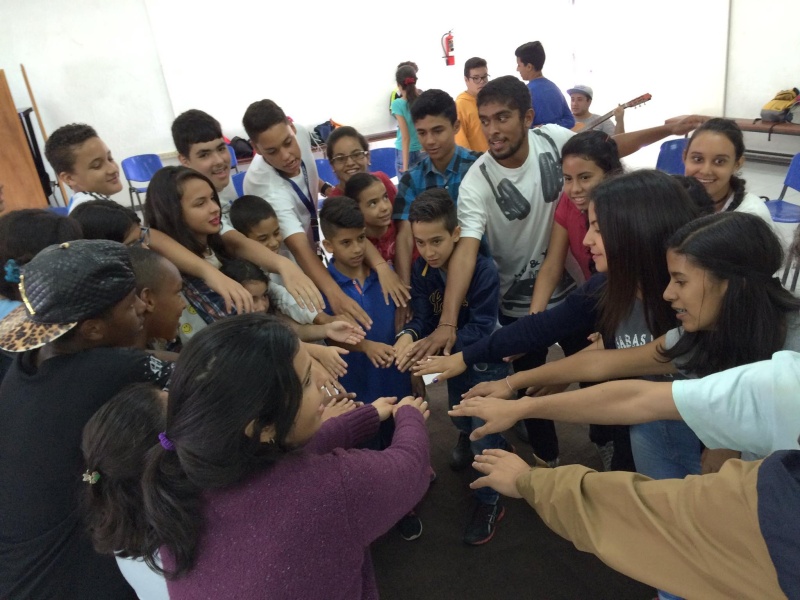
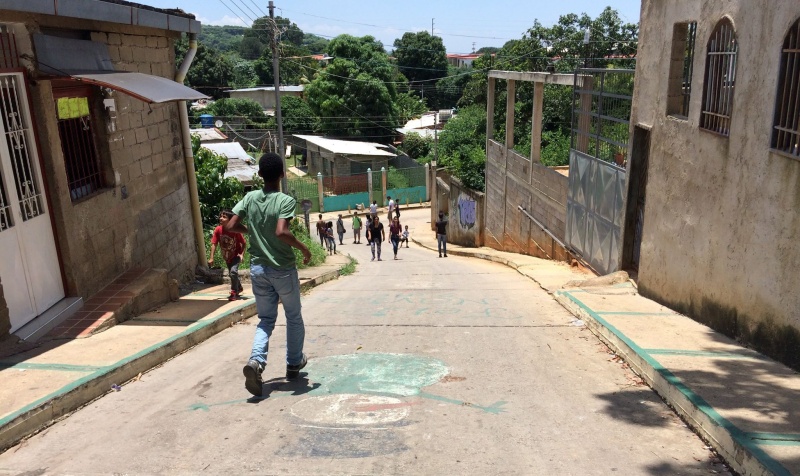 “I go back after 5 years. The impact is shocking. I don’t recognize Venezuela. The description given to me by the young man sitting next to me on the plane expresses the suffering of an afflicted but unresigned people. ‘I still have a bit of hope!’ he said to me as he described the beautiful sites in his country and invited to visit them. There’s a sense of emptiness in Caracas. Only the children provide a touch of liveliness to the absurd-looking reality. The journey to Puerto Ayucucho lasts 17 hours. Along the way my gaze is fixed on a girl rummaging in the garbage bins, looking for something to eat. But it is mostly the news of two boys 14 and 15 years old who were killed when caught stealing some mangos from a tree, that highlights the level of fear and non-sharing that has been reached. This is another form of homicide that is caused by hunger. The city is on the Colombia border. Its festering wound is represented in the murders of young people who, in the eyes of those who should protect them, appear to be violent thieves to be served the ulitmate punishment. This is also what happened to Felipe Andrés, a young seventeen-year-old who protected his brother by not telling those who had taken Felipe from his grandmother’s house where his brother could be found. Because of that he was brutally murdered with 17 bullets to match his age.
“I go back after 5 years. The impact is shocking. I don’t recognize Venezuela. The description given to me by the young man sitting next to me on the plane expresses the suffering of an afflicted but unresigned people. ‘I still have a bit of hope!’ he said to me as he described the beautiful sites in his country and invited to visit them. There’s a sense of emptiness in Caracas. Only the children provide a touch of liveliness to the absurd-looking reality. The journey to Puerto Ayucucho lasts 17 hours. Along the way my gaze is fixed on a girl rummaging in the garbage bins, looking for something to eat. But it is mostly the news of two boys 14 and 15 years old who were killed when caught stealing some mangos from a tree, that highlights the level of fear and non-sharing that has been reached. This is another form of homicide that is caused by hunger. The city is on the Colombia border. Its festering wound is represented in the murders of young people who, in the eyes of those who should protect them, appear to be violent thieves to be served the ulitmate punishment. This is also what happened to Felipe Andrés, a young seventeen-year-old who protected his brother by not telling those who had taken Felipe from his grandmother’s house where his brother could be found. Because of that he was brutally murdered with 17 bullets to match his age. 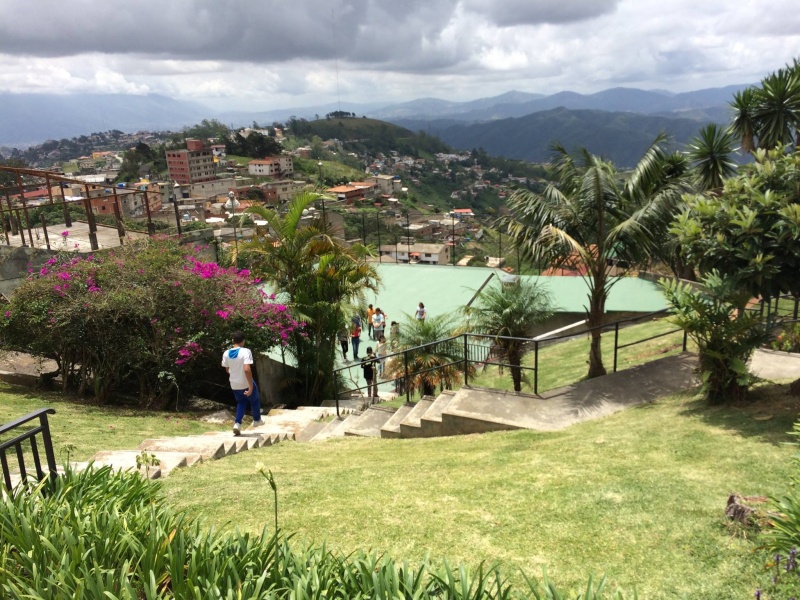 We’re in one of the quarters outside Valencia. I’m surprised by the queue for buying gas tanks. Twelve year-old Angel, candid as an angel, confides with disarming simplicity: ‘I don’t grow because I never drink milk.’ Even powdered milk is a luxury item in this country. I’m left impressed by the lively, simple gazes of the little ones I have met. An evening with the youth. You can feel their strong and palpable desire for redemption. Their experiences strengthen their desire to be carriers of hope, beginning with their friends at school, at work…. La Nuvoletta. A minibus takes us up to the Mariapolis Centre called La Nuvoletta. On the way we pass through some poverty-stricken areas. Here too, we find long queues of people hoping to be able to buy at least something. Gabriel thanks me for the lunch I offered him. ‘You know, I only eat pasta on Sunday.’ ‘And the other days?’ I ask. ‘On the other days, only sopa.’ I ask him if he likes being with people. “Yes,” he tells me, “because here everybody’s happy.”
We’re in one of the quarters outside Valencia. I’m surprised by the queue for buying gas tanks. Twelve year-old Angel, candid as an angel, confides with disarming simplicity: ‘I don’t grow because I never drink milk.’ Even powdered milk is a luxury item in this country. I’m left impressed by the lively, simple gazes of the little ones I have met. An evening with the youth. You can feel their strong and palpable desire for redemption. Their experiences strengthen their desire to be carriers of hope, beginning with their friends at school, at work…. La Nuvoletta. A minibus takes us up to the Mariapolis Centre called La Nuvoletta. On the way we pass through some poverty-stricken areas. Here too, we find long queues of people hoping to be able to buy at least something. Gabriel thanks me for the lunch I offered him. ‘You know, I only eat pasta on Sunday.’ ‘And the other days?’ I ask. ‘On the other days, only sopa.’ I ask him if he likes being with people. “Yes,” he tells me, “because here everybody’s happy.”  At the departure time, another bombshell: I learn that Fabián, such an innocent and lively child, had lost his father a few months earlier, murded by assassins. It felt like I was reliving my own experience: the illness and death of my father, which led me back to God. We look at each other and seem to understand one another. We arrive in Maracaibo, the hottest city in Venezuela. We look around and travel the 8 or more kilometres across the bridge that connects Maracaibo to San Francisco. A day with the Young For Unity awaits us in Tamale. Hearing a thirteen-year-old say: “I encouraged my mother to forgive those who had killed my father,” cannot leave you indifferent. The next appointment was in a parish. They greeted us with songs and then the dicusssion began: ‘What do you do when a kid tells you that he doesn’t go home because there’s nothing to eat?’ I try to respond by talking about the suffering and silence on the part of God that Jesus felt on the Cross. We say goodbye with a thought that one of the boys shared with everyone: ‘The strength of love is stronger than suffering’.” (A. S.)
At the departure time, another bombshell: I learn that Fabián, such an innocent and lively child, had lost his father a few months earlier, murded by assassins. It felt like I was reliving my own experience: the illness and death of my father, which led me back to God. We look at each other and seem to understand one another. We arrive in Maracaibo, the hottest city in Venezuela. We look around and travel the 8 or more kilometres across the bridge that connects Maracaibo to San Francisco. A day with the Young For Unity awaits us in Tamale. Hearing a thirteen-year-old say: “I encouraged my mother to forgive those who had killed my father,” cannot leave you indifferent. The next appointment was in a parish. They greeted us with songs and then the dicusssion began: ‘What do you do when a kid tells you that he doesn’t go home because there’s nothing to eat?’ I try to respond by talking about the suffering and silence on the part of God that Jesus felt on the Cross. We say goodbye with a thought that one of the boys shared with everyone: ‘The strength of love is stronger than suffering’.” (A. S.)

 John: “At the beginning of the school year, our son came home after his first day in year 11 and said to my wife that he was not returning to school – he said that he couldn’t stand people! He disappeared silently into his room for over a year, coming out only when he thought we were asleep. He withdrew from me entirely and only talked to his mother sporadically. I felt completely abandoned and lost, but Claire’s love managed to help me accept the rejection. What helped me was the phrase of the Gospel: ‘As I have loved you, so you must love one another’ (Jn 13:34). One night he made a desperate decision to commit suicide. As we called for an ambulance, he climbed out a window and ran away. The next hours were a blur: the ambulance arrived but he was gone; police support came too. He eventually came back and he was rushed to hospital for treatment. A week in hospital intensive care for someone stricken with panic and terror of people and spaces is a pretty scary thing. Night after night, and day after day, we slept in shifts so one of us would be there whenever he woke up. That ‘night shift’ was the only concrete love I could offer him; I could at least be a presence if needed – something I know that he later understood. When he came home, we thought that we could keep up that 24 hour suicide watch, but pretty soon had to accept that this was humanly impossible. We prayed together in a new way seeking God’s will. Together we offered and entrusted to God our son – His son – accepting completely that we could not prevent him trying to commit suicide again. I well remember the fear, pain, emptiness, anguish and hopelessness of this time, and then, in my acceptance of this terrible role, the feeling of real union with God and with Claire. In the year that followed, we managed to get him to reluctantly agree to enter a day therapy program. We hung in with our background support role and I think that God did the rest from the mundane of our ever-extending health insurance cover, to the miraculous – of an incredible group of fractured kids who supported and lived for each other.” Claire: “One of the girls in the group, with her multiple challenges, not the least of which was drug addiction, became part of our family life, and, as time went on, she and our son grew closer together. She hung in with him and helped draw him through his anxious times. And he stood by her rugged attempts at drug withdrawal. But it wasn’t easy.” John: “Their relationship suffered a setback due to our son’s stand on drugs, his personal abhorrence of them. But slowly, over the period after release from her months of involuntary hospitalisation, they tried again and worked at rebuilding their relationship on a firmer ‘no drugs’ foundation. Eventually they decided to marry.” Claire: “But, as everyone knows, wedding preparation is a pretty stressful experience, and our soon-to-be daughter-in-law was still working in an environment where drug taking was a common way to cope with life. So the inevitable happened. Our son rang me a month before the wedding and said bleakly, ‘Mum, she’s on ice again*. What should I do?’ My heart fell through the floor, and my brain went blank. Then I said, ‘I can’t tell you what to do – only the two of you have the grace for that. But I can tell you that, if you look into your heart and you see that you have loved wisely to the very end, then that tells you that it’s time for your part to finish. But if you look into your heart and you see that there is even the smallest bit more of loving wisely that you can give, then you keep trying.’ There was a long, long pause. Then a big, sad sigh. And he said, ‘I guess I can love a bit more’. Eventually they found a place that allowed her to have an extended live-in rehabilitation program with its associated outpatient support systems. It’s now 14 hard months down the track, and she is still clean – a tribute to her continuing efforts in working with her counsellors, fuelled by her incredible love for her husband – our son – in his ‘no drugs’ stand, as well as to his extraordinary love for her through all their struggles. We’re so proud of both of them. It has been a long road for all of us. And I guess one that we’ll all travel or the rest of our lives. But what I have seen shining through all the tears is that God’s love for John and me gave us the wisdom and strength to love our son in the way he needed to the end, and that maybe our love showed our son the way to love his wife in just the way that was right for her.”
John: “At the beginning of the school year, our son came home after his first day in year 11 and said to my wife that he was not returning to school – he said that he couldn’t stand people! He disappeared silently into his room for over a year, coming out only when he thought we were asleep. He withdrew from me entirely and only talked to his mother sporadically. I felt completely abandoned and lost, but Claire’s love managed to help me accept the rejection. What helped me was the phrase of the Gospel: ‘As I have loved you, so you must love one another’ (Jn 13:34). One night he made a desperate decision to commit suicide. As we called for an ambulance, he climbed out a window and ran away. The next hours were a blur: the ambulance arrived but he was gone; police support came too. He eventually came back and he was rushed to hospital for treatment. A week in hospital intensive care for someone stricken with panic and terror of people and spaces is a pretty scary thing. Night after night, and day after day, we slept in shifts so one of us would be there whenever he woke up. That ‘night shift’ was the only concrete love I could offer him; I could at least be a presence if needed – something I know that he later understood. When he came home, we thought that we could keep up that 24 hour suicide watch, but pretty soon had to accept that this was humanly impossible. We prayed together in a new way seeking God’s will. Together we offered and entrusted to God our son – His son – accepting completely that we could not prevent him trying to commit suicide again. I well remember the fear, pain, emptiness, anguish and hopelessness of this time, and then, in my acceptance of this terrible role, the feeling of real union with God and with Claire. In the year that followed, we managed to get him to reluctantly agree to enter a day therapy program. We hung in with our background support role and I think that God did the rest from the mundane of our ever-extending health insurance cover, to the miraculous – of an incredible group of fractured kids who supported and lived for each other.” Claire: “One of the girls in the group, with her multiple challenges, not the least of which was drug addiction, became part of our family life, and, as time went on, she and our son grew closer together. She hung in with him and helped draw him through his anxious times. And he stood by her rugged attempts at drug withdrawal. But it wasn’t easy.” John: “Their relationship suffered a setback due to our son’s stand on drugs, his personal abhorrence of them. But slowly, over the period after release from her months of involuntary hospitalisation, they tried again and worked at rebuilding their relationship on a firmer ‘no drugs’ foundation. Eventually they decided to marry.” Claire: “But, as everyone knows, wedding preparation is a pretty stressful experience, and our soon-to-be daughter-in-law was still working in an environment where drug taking was a common way to cope with life. So the inevitable happened. Our son rang me a month before the wedding and said bleakly, ‘Mum, she’s on ice again*. What should I do?’ My heart fell through the floor, and my brain went blank. Then I said, ‘I can’t tell you what to do – only the two of you have the grace for that. But I can tell you that, if you look into your heart and you see that you have loved wisely to the very end, then that tells you that it’s time for your part to finish. But if you look into your heart and you see that there is even the smallest bit more of loving wisely that you can give, then you keep trying.’ There was a long, long pause. Then a big, sad sigh. And he said, ‘I guess I can love a bit more’. Eventually they found a place that allowed her to have an extended live-in rehabilitation program with its associated outpatient support systems. It’s now 14 hard months down the track, and she is still clean – a tribute to her continuing efforts in working with her counsellors, fuelled by her incredible love for her husband – our son – in his ‘no drugs’ stand, as well as to his extraordinary love for her through all their struggles. We’re so proud of both of them. It has been a long road for all of us. And I guess one that we’ll all travel or the rest of our lives. But what I have seen shining through all the tears is that God’s love for John and me gave us the wisdom and strength to love our son in the way he needed to the end, and that maybe our love showed our son the way to love his wife in just the way that was right for her.”
Experience shared at Health Symposium “Darkness to Light – Spirituality of Unity in Chronic Disease and Disability” Australia, July 2016
*Crystal methamphetamine
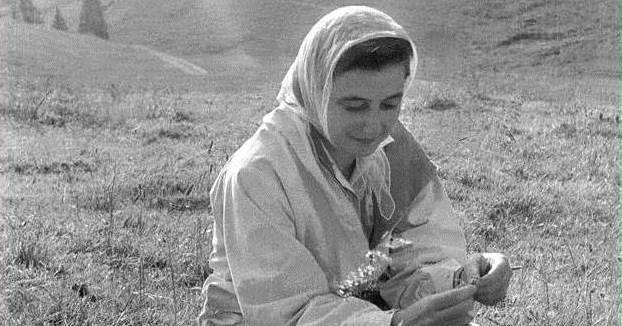
 During the summer of 1949 Chiara Lubich, who was 29 years old at the time, had an experience of light and life. Leaving that “paradise” up in the mountains was very difficult, but she understood that God wanted her to be immersed in the sufferings of humanity “drying up the waters of tribulation” in those who suffer the most. There and then she wrote these words: “I have only one Spouse on earth: Jesus Forsaken. I have no other God but Him. In Him there is the whole of Paradise with the Trinity and the whole of the earth with Humanity. Therefore what is His is mine, and nothing else. And His is universal Pain, and therefore mine. I will go through the world seeking Him in every instant of my life. What hurts me is mine. Mine the pain that grazes me in the present. Mine the pain of the souls beside me (that is my Jesus). Mine all that is not peace, joy, beautiful, lovable, serene… in a word, what is not Paradise. Because I too have my Paradise, but is that in my Spouse’s heart. I know no other. So it will be for the years I have left: athirst for pain, for anguish, for despair, for sadness, for separation, for exile, for forsakenness, for torment, for… all that is Him, and He is Sin, Hell. In this way I will dry up the waters of tribulation in many hearts nearby and, through communion with my almighty Spouse, in many far away. I shall pass as a Fire that consumes all that must fall and leaves standing only the Truth. But it is necessary to be like Him: to be Him in the present moment of life.” From: Chiara Lubich, The Cry, Ed. New City London (pp. 61-2)
During the summer of 1949 Chiara Lubich, who was 29 years old at the time, had an experience of light and life. Leaving that “paradise” up in the mountains was very difficult, but she understood that God wanted her to be immersed in the sufferings of humanity “drying up the waters of tribulation” in those who suffer the most. There and then she wrote these words: “I have only one Spouse on earth: Jesus Forsaken. I have no other God but Him. In Him there is the whole of Paradise with the Trinity and the whole of the earth with Humanity. Therefore what is His is mine, and nothing else. And His is universal Pain, and therefore mine. I will go through the world seeking Him in every instant of my life. What hurts me is mine. Mine the pain that grazes me in the present. Mine the pain of the souls beside me (that is my Jesus). Mine all that is not peace, joy, beautiful, lovable, serene… in a word, what is not Paradise. Because I too have my Paradise, but is that in my Spouse’s heart. I know no other. So it will be for the years I have left: athirst for pain, for anguish, for despair, for sadness, for separation, for exile, for forsakenness, for torment, for… all that is Him, and He is Sin, Hell. In this way I will dry up the waters of tribulation in many hearts nearby and, through communion with my almighty Spouse, in many far away. I shall pass as a Fire that consumes all that must fall and leaves standing only the Truth. But it is necessary to be like Him: to be Him in the present moment of life.” From: Chiara Lubich, The Cry, Ed. New City London (pp. 61-2)
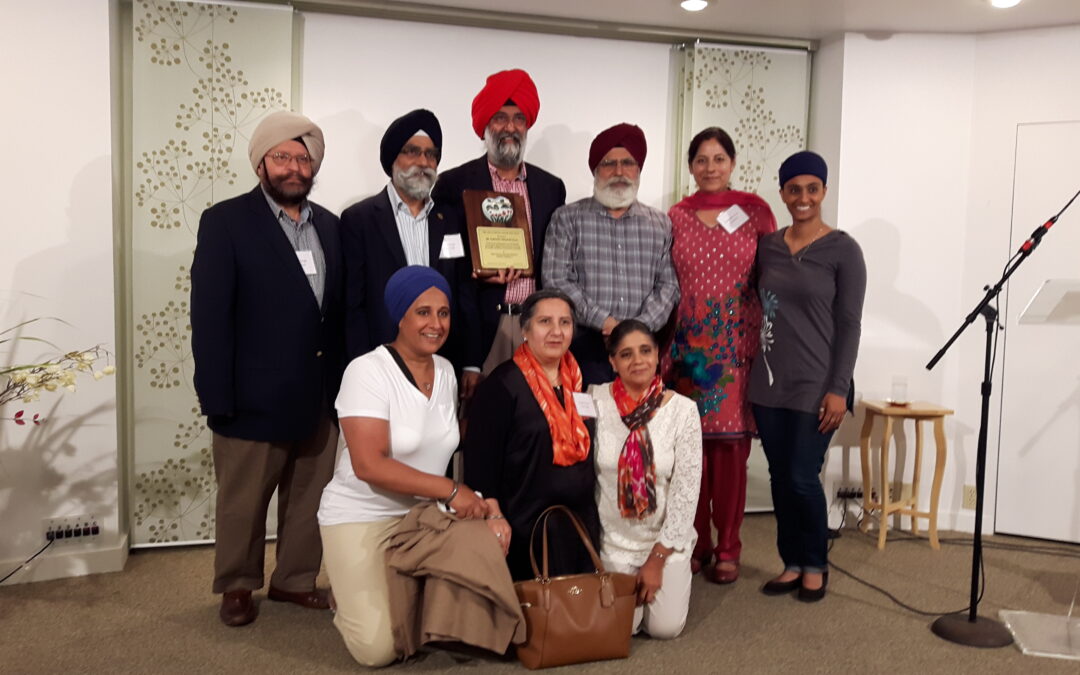
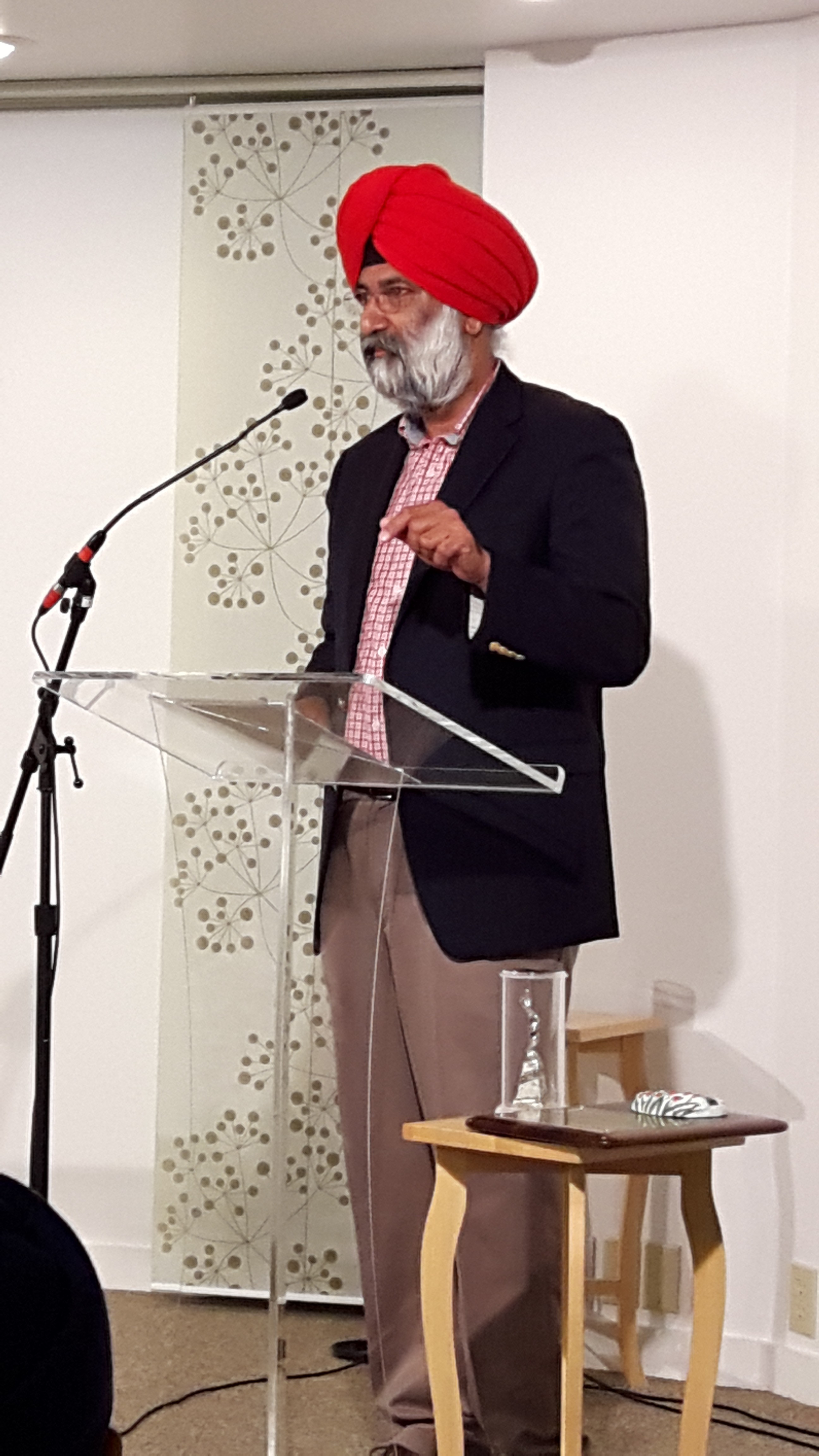 Unity, dialogue, communion – these are words that describe the heart of the mission of the Focolare, and these three words sum up the commitment of Dr Tarunjit Singh Butalia, a scientist at Ohio State University in Columbus, USA. On September 18, 2016 he accepted the 2016 Luminosa Award in Hyde Park, NY. “Your decade-long tireless effort in building bridges on various levels” said Focolare president, Maria Voce, “deserves our admiration and deep appreciation. We feel solidarity and fraternal ties with you and with the Sikh community in the promoting, together with others, peace and care of our common home.” Urged by a strong belief that religions have a crucial role to play in the great work of interreligious dialogue, in 2011 he accepted the invitation of Pope Benedict XVI to participate in the World Day of Prayer for Peace in Assisi. In his acceptance speech the scientist recalled the friendly invitations to interreligious meals and picnics that marked the beginnings of his contacts with the Focolare Movement. A friendship, he explained, that over time developed into trust. He stressed the particular role that religion has always played in American society, precisely because it is a nation of immigrants. While former waves of immigrants seamlessly blended into the people after a few generations, many immigrants from the last 50 years – like Muslims, Buddhists, Sikhs, Hindus, Jains and Baha’i – want to maintain their religious identity. Butalia said “they have made the United States one of the most cosmopolitan countries in the world.” He also observed the importance of acknowledging pluralism as a value “where each part maintains its identity and yet remains part of the harmonious whole.” “We have to focus on building relationships,’ he said; “we need to be able to talk about our differences.”
Unity, dialogue, communion – these are words that describe the heart of the mission of the Focolare, and these three words sum up the commitment of Dr Tarunjit Singh Butalia, a scientist at Ohio State University in Columbus, USA. On September 18, 2016 he accepted the 2016 Luminosa Award in Hyde Park, NY. “Your decade-long tireless effort in building bridges on various levels” said Focolare president, Maria Voce, “deserves our admiration and deep appreciation. We feel solidarity and fraternal ties with you and with the Sikh community in the promoting, together with others, peace and care of our common home.” Urged by a strong belief that religions have a crucial role to play in the great work of interreligious dialogue, in 2011 he accepted the invitation of Pope Benedict XVI to participate in the World Day of Prayer for Peace in Assisi. In his acceptance speech the scientist recalled the friendly invitations to interreligious meals and picnics that marked the beginnings of his contacts with the Focolare Movement. A friendship, he explained, that over time developed into trust. He stressed the particular role that religion has always played in American society, precisely because it is a nation of immigrants. While former waves of immigrants seamlessly blended into the people after a few generations, many immigrants from the last 50 years – like Muslims, Buddhists, Sikhs, Hindus, Jains and Baha’i – want to maintain their religious identity. Butalia said “they have made the United States one of the most cosmopolitan countries in the world.” He also observed the importance of acknowledging pluralism as a value “where each part maintains its identity and yet remains part of the harmonious whole.” “We have to focus on building relationships,’ he said; “we need to be able to talk about our differences.”  Dr Butalia then proposed to take a step further than the Golden Rule (Do to others as you would want them to do to you,” Mt 7:12). He called his version the “Platinum Rule”: “Do to others as they would want you to do to them,” moving beyond the assumption that the other people would like to be treated the way that you would like to be treated yourself.” He then invited the 130 participants to “listen more than we speak” and to never compare the “best of our religion with the worst of the others.” Referring to Islamophobia, Butalia remembered that all religions are interdependent on each other and that we have to stand up against discrimination against any faith. Closing, he quoted a disciple of the Sikh founder Guru Nanak, “No one is my enemy, and no one is a stranger. I get along with all.”
Dr Butalia then proposed to take a step further than the Golden Rule (Do to others as you would want them to do to you,” Mt 7:12). He called his version the “Platinum Rule”: “Do to others as they would want you to do to them,” moving beyond the assumption that the other people would like to be treated the way that you would like to be treated yourself.” He then invited the 130 participants to “listen more than we speak” and to never compare the “best of our religion with the worst of the others.” Referring to Islamophobia, Butalia remembered that all religions are interdependent on each other and that we have to stand up against discrimination against any faith. Closing, he quoted a disciple of the Sikh founder Guru Nanak, “No one is my enemy, and no one is a stranger. I get along with all.”
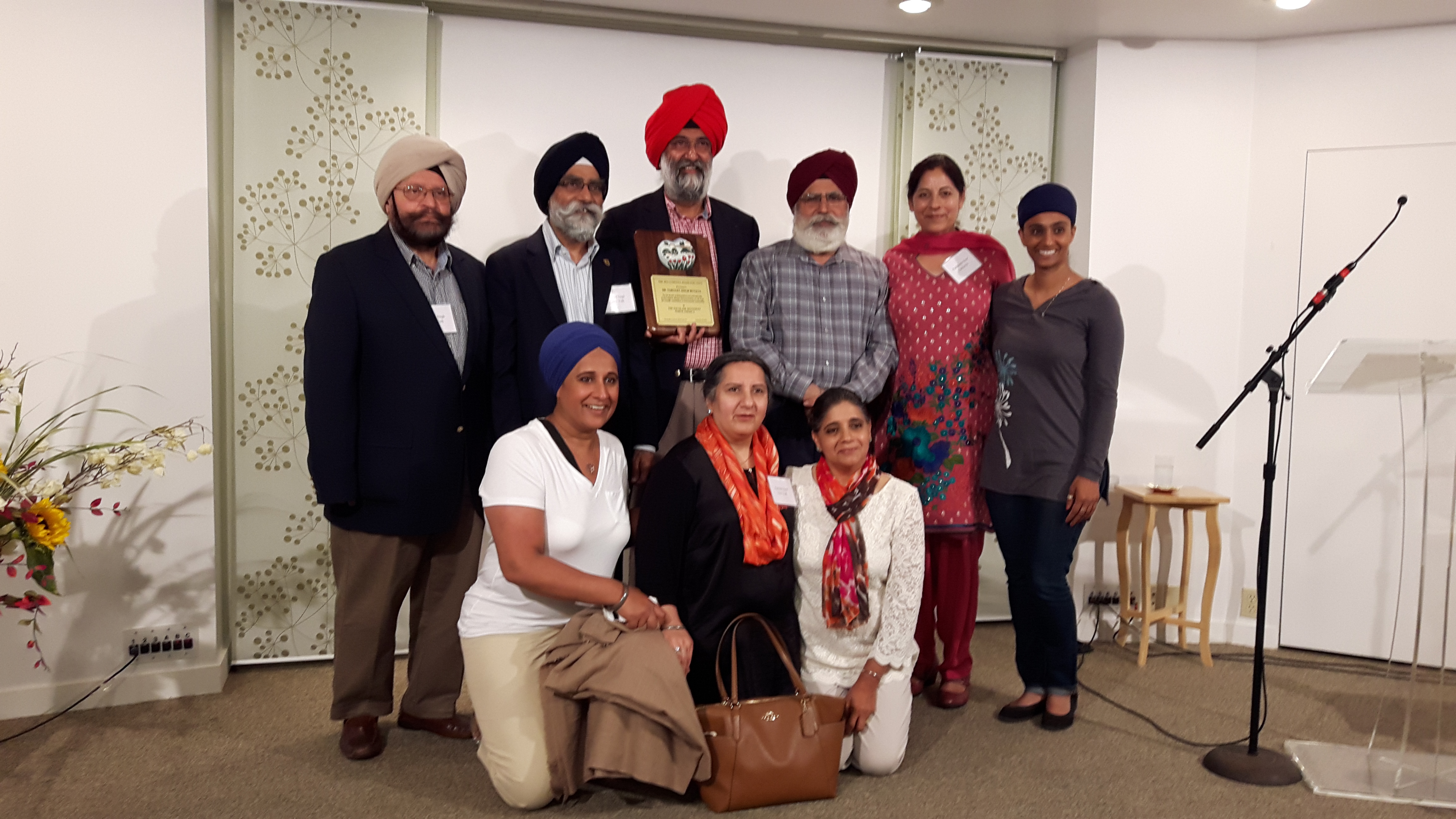
Dr Tarunjit Butalia with the Sikh delegation
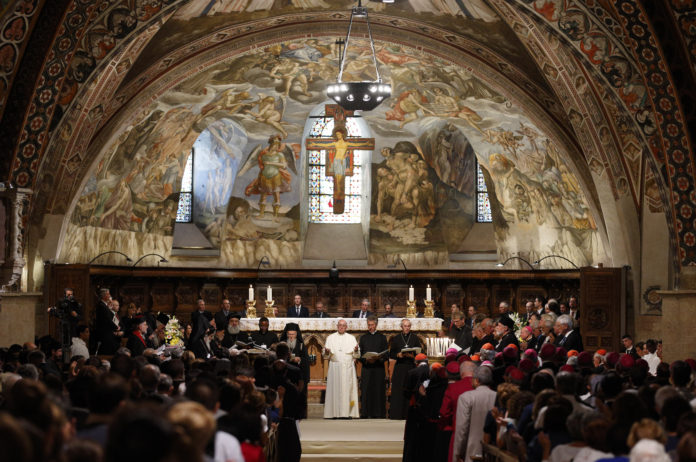
 Organized by the Umbria Diocese with the Franciscan family and the St. Egidio Community, the event gathered the religious leaders of the world, and was also attended by cultured men and women and representatives of institutions. Also the Focolare Movement was present in both the preparatory and participation phases, especially the communities in Umbria and in the persons of Rita Moussalem and Roberto Catalano, heads of the Focolare’s interreligious dialogue. With his presence on 20 September, Pope Francis continued the work of John Paul II who had felt the need in 1986 to institute a day of prayer for peace, and had foreseen the role religions could play to avoid conflicts and also contribute to resolving them. In 2011, Benedict XVI had presented peace not only as a commitment of men of faith, but also as a cultural project. But the world is no longer that of the 1980s, the bipolar world of the Cold war. The world is now globalized and multipolar, where the wars have multiplied without ever being wars of religion. Pope Francis greeted each of the leaders personally, starting from a group of refugees who represented the challenges of the world today. It was not only a formal act. There were deep moments of intense bonding that were able to establish important ties for the future. A second moment was the luncheon at the Holy Convent, to which the Pope had invited all to be by his side. Having a meal together under the same roof was in itself an act of peace, after which, a common moment of prayer followed, but not together. Each religion had a facility where members could go to pray for world peace, according to their own religious tradition. Each did so distinctly; this fact aimed to cancel the doubt that these moments were an attempt to amalgamate all religions together. The Christians prayed together to demonstrate that unity among the Churches is fundamental in giving important contribution to peace, as followers of Christ.
Organized by the Umbria Diocese with the Franciscan family and the St. Egidio Community, the event gathered the religious leaders of the world, and was also attended by cultured men and women and representatives of institutions. Also the Focolare Movement was present in both the preparatory and participation phases, especially the communities in Umbria and in the persons of Rita Moussalem and Roberto Catalano, heads of the Focolare’s interreligious dialogue. With his presence on 20 September, Pope Francis continued the work of John Paul II who had felt the need in 1986 to institute a day of prayer for peace, and had foreseen the role religions could play to avoid conflicts and also contribute to resolving them. In 2011, Benedict XVI had presented peace not only as a commitment of men of faith, but also as a cultural project. But the world is no longer that of the 1980s, the bipolar world of the Cold war. The world is now globalized and multipolar, where the wars have multiplied without ever being wars of religion. Pope Francis greeted each of the leaders personally, starting from a group of refugees who represented the challenges of the world today. It was not only a formal act. There were deep moments of intense bonding that were able to establish important ties for the future. A second moment was the luncheon at the Holy Convent, to which the Pope had invited all to be by his side. Having a meal together under the same roof was in itself an act of peace, after which, a common moment of prayer followed, but not together. Each religion had a facility where members could go to pray for world peace, according to their own religious tradition. Each did so distinctly; this fact aimed to cancel the doubt that these moments were an attempt to amalgamate all religions together. The Christians prayed together to demonstrate that unity among the Churches is fundamental in giving important contribution to peace, as followers of Christ.  The concluding ceremony took place in the square in front of the Basilica of St. Francis. The leaders of each religion sat in a semicircle around Pope Francis, as a sign that nobody claimed superiority, notwithstanding the esteem and recognition of the Pope of Rome. His name, his example of a measured life, his words and gestures were constantly cited in the course of the 29 panels or round tables that were held during the prior two days in every corner of Assisi. The conclusion was marked by profound and vital considerations by the Christian, Buddhist and Muslim leaders, and also by moving testimonials: that of a young Syrian mother who arrived in Italy through the humanitarian corridors and that of an elderly Jewish Rabbi, who survived the Nazi concentration camps. The evening was heightened by the speech of Pope Francis who traced a peace roadmap. In fact, «Only peace is holy, not war!» The Pope expressed the meaning of peace by speaking of forgiveness, acceptance, collaboration and education as the fundamental elements to make it possible. «Our future is to live together», he affirmed. It is an idea that universalises the interpretation of the great Bauman who, in the opening ceremony, had underlined how humanity is called today to live the dimension of “we,” and forget the “they.” Once again the framework of Assisi was a decisive element. In fact, peace here is present even in the air we breathe. During these days the Franciscan family offered an example of humble, intelligent and respectful hospitality, constantly at the service of the leaders of the different faiths. It was an evident demonstration of how the humbleness of Francis of Assisi spoke out and asked his followers to make this a fundamental condition for dialogue and peace. It was a sign that peace is built by all of us together, and that each one brings a unique and indispensable gift for the processes of peace. by Roberto Catalano Source: New City
The concluding ceremony took place in the square in front of the Basilica of St. Francis. The leaders of each religion sat in a semicircle around Pope Francis, as a sign that nobody claimed superiority, notwithstanding the esteem and recognition of the Pope of Rome. His name, his example of a measured life, his words and gestures were constantly cited in the course of the 29 panels or round tables that were held during the prior two days in every corner of Assisi. The conclusion was marked by profound and vital considerations by the Christian, Buddhist and Muslim leaders, and also by moving testimonials: that of a young Syrian mother who arrived in Italy through the humanitarian corridors and that of an elderly Jewish Rabbi, who survived the Nazi concentration camps. The evening was heightened by the speech of Pope Francis who traced a peace roadmap. In fact, «Only peace is holy, not war!» The Pope expressed the meaning of peace by speaking of forgiveness, acceptance, collaboration and education as the fundamental elements to make it possible. «Our future is to live together», he affirmed. It is an idea that universalises the interpretation of the great Bauman who, in the opening ceremony, had underlined how humanity is called today to live the dimension of “we,” and forget the “they.” Once again the framework of Assisi was a decisive element. In fact, peace here is present even in the air we breathe. During these days the Franciscan family offered an example of humble, intelligent and respectful hospitality, constantly at the service of the leaders of the different faiths. It was an evident demonstration of how the humbleness of Francis of Assisi spoke out and asked his followers to make this a fundamental condition for dialogue and peace. It was a sign that peace is built by all of us together, and that each one brings a unique and indispensable gift for the processes of peace. by Roberto Catalano Source: New City

 “EDUCATION TOWARDS A HUMANISM BASED ON THE UNITY OF THE HUMAN FAMILY” Paris, 19 December 1996: UNESCO awarded the prestigious Prize for Peace Education to Chiara Lubich, Founder of the Focolare Movement, in recognition of her lifelong efforts in the building of Peace, and education of thousands of people of every creed and latitude, towards this goal. The theme of peace education is more than ever actual today. Promoted by the UNESCO and the New Humanity Movement, the event will be celebrated at the UNESCO Headquarters (Paris, France) on 15 November, from 10.00 am to 6.00 pm. A representative from UNESCO will open the session, to be followed by the speeches of Bishop Francesco Follo, Permanent Observer of the Holy See to UNESCO, and Maria Voce and Jesús Morán, President and Co-President of the Focolare Movement, respectively. Other two focal points will follow: five ideas for peace education today, and dialogue in a united and plural world. Invitation: Unesco Event Registration “Reinventing Peace” event Read Chiara Lubich’s speech in 1996 Watch video (Italian) https://vimeo.com/77226264
“EDUCATION TOWARDS A HUMANISM BASED ON THE UNITY OF THE HUMAN FAMILY” Paris, 19 December 1996: UNESCO awarded the prestigious Prize for Peace Education to Chiara Lubich, Founder of the Focolare Movement, in recognition of her lifelong efforts in the building of Peace, and education of thousands of people of every creed and latitude, towards this goal. The theme of peace education is more than ever actual today. Promoted by the UNESCO and the New Humanity Movement, the event will be celebrated at the UNESCO Headquarters (Paris, France) on 15 November, from 10.00 am to 6.00 pm. A representative from UNESCO will open the session, to be followed by the speeches of Bishop Francesco Follo, Permanent Observer of the Holy See to UNESCO, and Maria Voce and Jesús Morán, President and Co-President of the Focolare Movement, respectively. Other two focal points will follow: five ideas for peace education today, and dialogue in a united and plural world. Invitation: Unesco Event Registration “Reinventing Peace” event Read Chiara Lubich’s speech in 1996 Watch video (Italian) https://vimeo.com/77226264
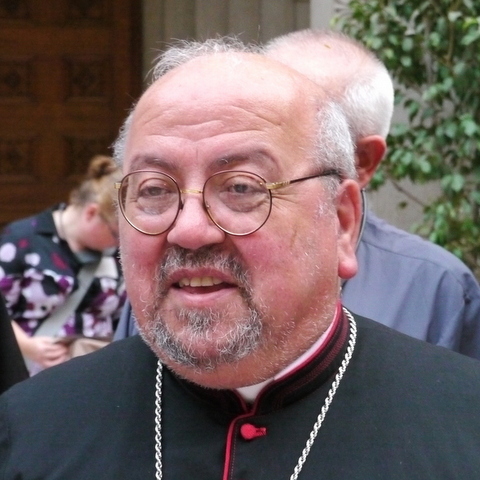
 It’s been six years since the beginning of the war in your country. What do you think have been the worst effects on society? Six years of war have shaken the very bulwark of Syrian society: the family, the basic cell that has absorbed the blows and the disgrace of this unending violence. The family was the safeguard of the country and of the Church up until 2014. But the insecurity, intolerance, violence and chaotic destruction have now completely uprooted more than two million families. Without houses and scattered all over the world, how could they have gone on under the weight of such a heavy Calvary? It was common at the beginning of the war – March 15, 2011 – to see the family gathered around a mother. The men go to war and often die. The saying now is: ‘An orphan without a father is not an orphan’. The family is left gathered around its mother who ensures the unity and the survival of the hearth. In the midst of this long and burdensome suffering these heroic mothers live in poverty and in tears. They have honoured their calling, living in tents and dying drowned. Is there any greater suffering? The destruction of the basic cell of society, and the youth? Can we count on them to look towards the future? The general mobilization that was decreed in October 2015 invited all men under the age of 45 to enter military service. It was a decision that also distressed other family members who couldn’t leave and had to stay where they were, waiting for a conclusion to this endless war. This age group that vanished had once comprised the backbone of economic activity that was still being carried out. Some reached the barracks and others chose to flee on the trail of illegal immigrants that is often irreversible. This destabilized the job market and the modest family life that found itself even more deprived of resources. What future is there for a community without young people? How has the war affected the Church? These things have weakened the Church. Families often decide to get up and go to their son who has left the country. Hence, you have the exodus of families resulting in the dizzying drop in the number of the faithful in parishes. There is the demographic imbalance: in the absence of young men, our young women who find themselves alone often marry Muslim polygamists. With fewer marriages, there are fewer baptisms. For the first time the Church finds itself facing another crucial problem as well: one in three priests in Damascus have decided to move to another more peaceful country. What can be done to keep priests in Damascus? What will come of the Church without priests? What do you think is the challenge and the hope of the Christians living in Syria today? The dead cities in the north of Syria are an unsettling photograph of what we could become. How are we to avoid becoming the guardians of brick and stone? It remains to the Christians of the East to reconsider their calling and to live along the lines of the small primitive Church that lived without protection or guarantee. Will we be capable of responding to this apostolic challenge? The Gospel encourages: ‘Fear not, little flock” (Lk 12:32).
It’s been six years since the beginning of the war in your country. What do you think have been the worst effects on society? Six years of war have shaken the very bulwark of Syrian society: the family, the basic cell that has absorbed the blows and the disgrace of this unending violence. The family was the safeguard of the country and of the Church up until 2014. But the insecurity, intolerance, violence and chaotic destruction have now completely uprooted more than two million families. Without houses and scattered all over the world, how could they have gone on under the weight of such a heavy Calvary? It was common at the beginning of the war – March 15, 2011 – to see the family gathered around a mother. The men go to war and often die. The saying now is: ‘An orphan without a father is not an orphan’. The family is left gathered around its mother who ensures the unity and the survival of the hearth. In the midst of this long and burdensome suffering these heroic mothers live in poverty and in tears. They have honoured their calling, living in tents and dying drowned. Is there any greater suffering? The destruction of the basic cell of society, and the youth? Can we count on them to look towards the future? The general mobilization that was decreed in October 2015 invited all men under the age of 45 to enter military service. It was a decision that also distressed other family members who couldn’t leave and had to stay where they were, waiting for a conclusion to this endless war. This age group that vanished had once comprised the backbone of economic activity that was still being carried out. Some reached the barracks and others chose to flee on the trail of illegal immigrants that is often irreversible. This destabilized the job market and the modest family life that found itself even more deprived of resources. What future is there for a community without young people? How has the war affected the Church? These things have weakened the Church. Families often decide to get up and go to their son who has left the country. Hence, you have the exodus of families resulting in the dizzying drop in the number of the faithful in parishes. There is the demographic imbalance: in the absence of young men, our young women who find themselves alone often marry Muslim polygamists. With fewer marriages, there are fewer baptisms. For the first time the Church finds itself facing another crucial problem as well: one in three priests in Damascus have decided to move to another more peaceful country. What can be done to keep priests in Damascus? What will come of the Church without priests? What do you think is the challenge and the hope of the Christians living in Syria today? The dead cities in the north of Syria are an unsettling photograph of what we could become. How are we to avoid becoming the guardians of brick and stone? It remains to the Christians of the East to reconsider their calling and to live along the lines of the small primitive Church that lived without protection or guarantee. Will we be capable of responding to this apostolic challenge? The Gospel encourages: ‘Fear not, little flock” (Lk 12:32).
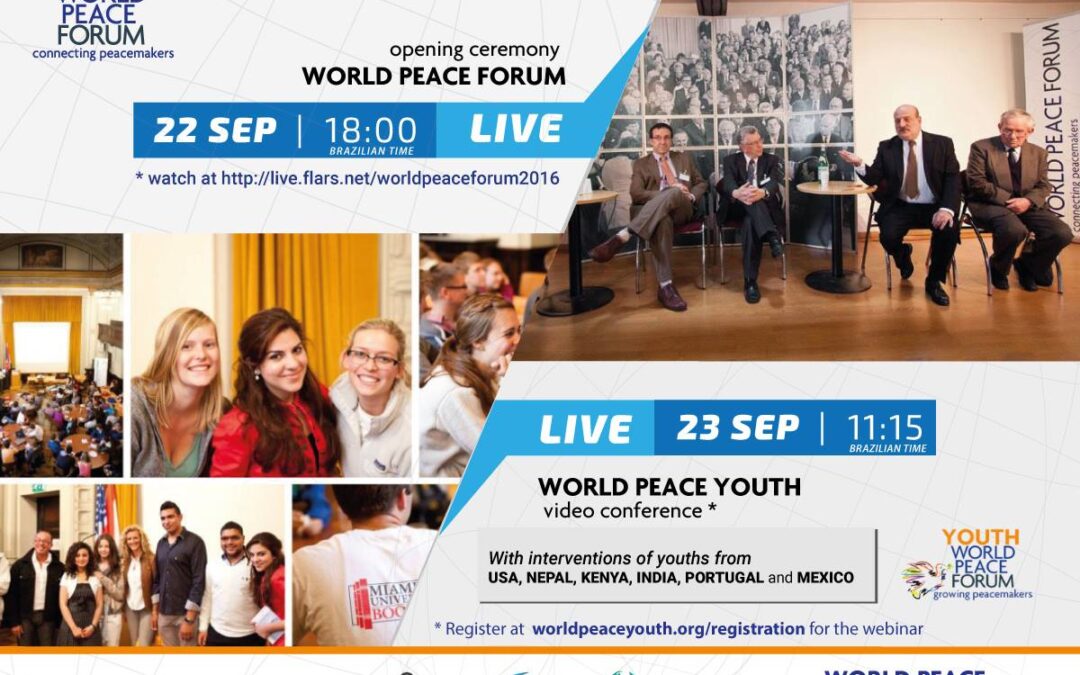
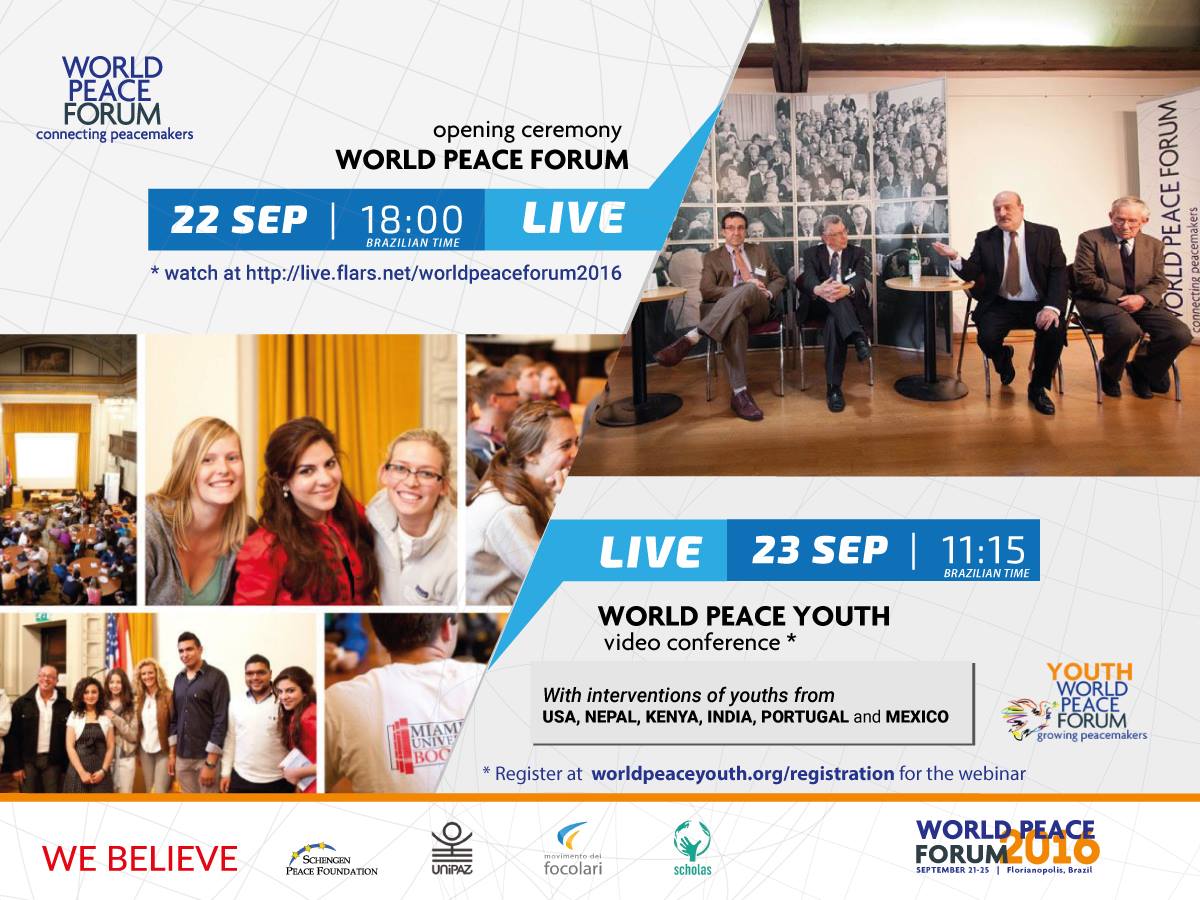 “The World Forum for Peace” will be held in Brazil, in the city of Florianópolis, during 22-25 September.
“The World Forum for Peace” will be held in Brazil, in the city of Florianópolis, during 22-25 September.
The opening ceremony of the 10th World Peace Forum and 2nd Youth World Peace Forum will be transmitted life via streaming on Thursday, 22 September, from 6 pm – 8.30pm (Brazil time)
Live transmission: http://live.flars.net/worldpeaceforum2016 On Friday, 23 September, at 11.15 am (Brazil time), there will be a Youth Video Conference. To register for the live webinar: worldpeaceyouth.org/registration Official Website for World Peace Forum 2016
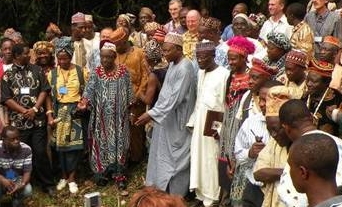
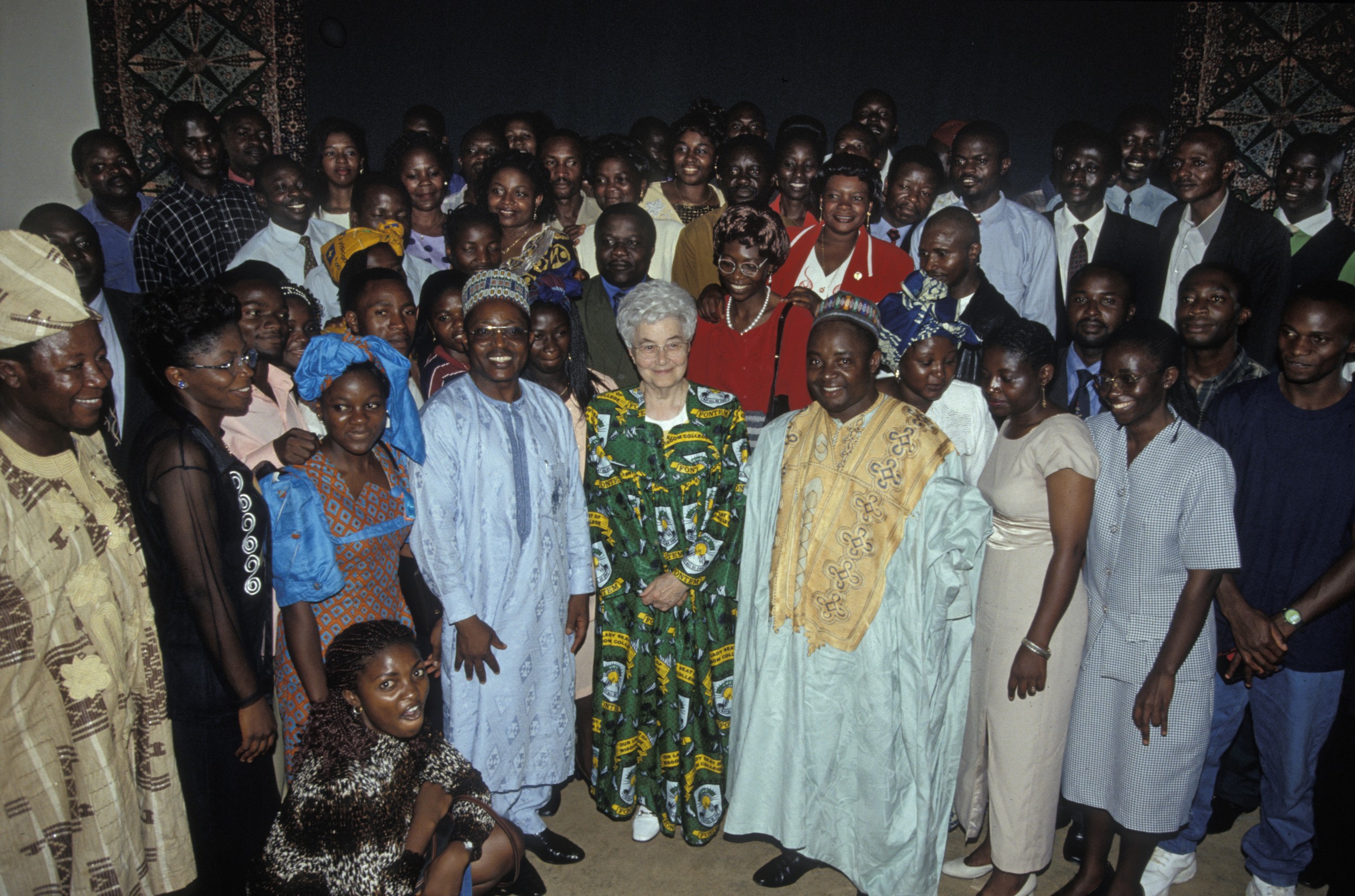 A delegation of 40 people from Cameroon are on their way to Rome. Among them are 9 traditional leaders (Fon), the native Kings of the Bangwa people of Lebialem, South-West Cameroon (Fon-Fontem, Fon-Nwametaw, Fon-Nwangong, Fon- Esoh Attah, Fon-Akum, Fon-Lewoh, Fon-Nkar, Fon-Bamenda and Fon-Douala),who are accompanied by Mafuas (Queens), two Mayors and other distinguished persons. They travel to Italy to celebrate the Jubilee of Mercy with Pope Francis and to thank God for the 50 years that has passed since the Bangwa people and the Focolare Movement met for the first time in Fontem. Their “pilgrimage” starts at the Vatican. They look foward to meet Pope Francis during the General Audience on Wednesday, September 21, when the Fon-Kings will greet the Pope on behalf of the delegation and their peoples, offer gifts typical of their culture and thank him for all that the Church has done for them. During their stay in Italy, they will be guests of the Focolare Movement and they will visit places where Chiara Lubich was born, lived and is buried: Trent, Loppiano (Florence) and Rocca di Papa (Rome). In fact, it was Chiara and the Focolare Movement, who answered the plea of Bangwa people, that came through Msgr Peters, bishop of Buea in the early 60’s, when the endemic sleeping sickness and other tropical diseases provoked a 90% rate of infantile mortality, threatening the extinction of the whole population. Today, these diseases have almost disappeared and the hospital, with its outpatient clinics, laboratory, operating theatre, male and female internal medicine department, surgery, maternity and pediatrics departments and the new department for infectious diseases, excels in the healthcare for the whole region. In the early70’s, a power plant, a carpentry shop, a nursery school and college were also built. The college,which takes more than 500 students, is one of the most popular pre-university insitutions in Cameroon.
A delegation of 40 people from Cameroon are on their way to Rome. Among them are 9 traditional leaders (Fon), the native Kings of the Bangwa people of Lebialem, South-West Cameroon (Fon-Fontem, Fon-Nwametaw, Fon-Nwangong, Fon- Esoh Attah, Fon-Akum, Fon-Lewoh, Fon-Nkar, Fon-Bamenda and Fon-Douala),who are accompanied by Mafuas (Queens), two Mayors and other distinguished persons. They travel to Italy to celebrate the Jubilee of Mercy with Pope Francis and to thank God for the 50 years that has passed since the Bangwa people and the Focolare Movement met for the first time in Fontem. Their “pilgrimage” starts at the Vatican. They look foward to meet Pope Francis during the General Audience on Wednesday, September 21, when the Fon-Kings will greet the Pope on behalf of the delegation and their peoples, offer gifts typical of their culture and thank him for all that the Church has done for them. During their stay in Italy, they will be guests of the Focolare Movement and they will visit places where Chiara Lubich was born, lived and is buried: Trent, Loppiano (Florence) and Rocca di Papa (Rome). In fact, it was Chiara and the Focolare Movement, who answered the plea of Bangwa people, that came through Msgr Peters, bishop of Buea in the early 60’s, when the endemic sleeping sickness and other tropical diseases provoked a 90% rate of infantile mortality, threatening the extinction of the whole population. Today, these diseases have almost disappeared and the hospital, with its outpatient clinics, laboratory, operating theatre, male and female internal medicine department, surgery, maternity and pediatrics departments and the new department for infectious diseases, excels in the healthcare for the whole region. In the early70’s, a power plant, a carpentry shop, a nursery school and college were also built. The college,which takes more than 500 students, is one of the most popular pre-university insitutions in Cameroon.  These 50 years built on facts and involving the whole region of Lebialem, led tens of thousands of people to accept the Christian message, in their personal life and in the life of society. They were supported by the work of the Mill Hill missionaries, the White Fathers and religious men and women of other congregations, who contributed towards the setting up of parishes, of the recent diocese of Manfi, of other schools and of public and administrative State structures. The baggage of the delegation led by the nine Fons contains this story of their people, a story which makes them feel the need to thank God and “Mafua Ndem Chiara Lubich” (queen sent by God), as the Bangwa people call her.
These 50 years built on facts and involving the whole region of Lebialem, led tens of thousands of people to accept the Christian message, in their personal life and in the life of society. They were supported by the work of the Mill Hill missionaries, the White Fathers and religious men and women of other congregations, who contributed towards the setting up of parishes, of the recent diocese of Manfi, of other schools and of public and administrative State structures. The baggage of the delegation led by the nine Fons contains this story of their people, a story which makes them feel the need to thank God and “Mafua Ndem Chiara Lubich” (queen sent by God), as the Bangwa people call her.
See also: http://focolare-fontem.org/
Video: General Hospital, Fontem